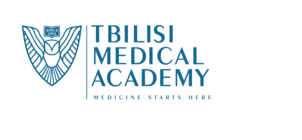Activities
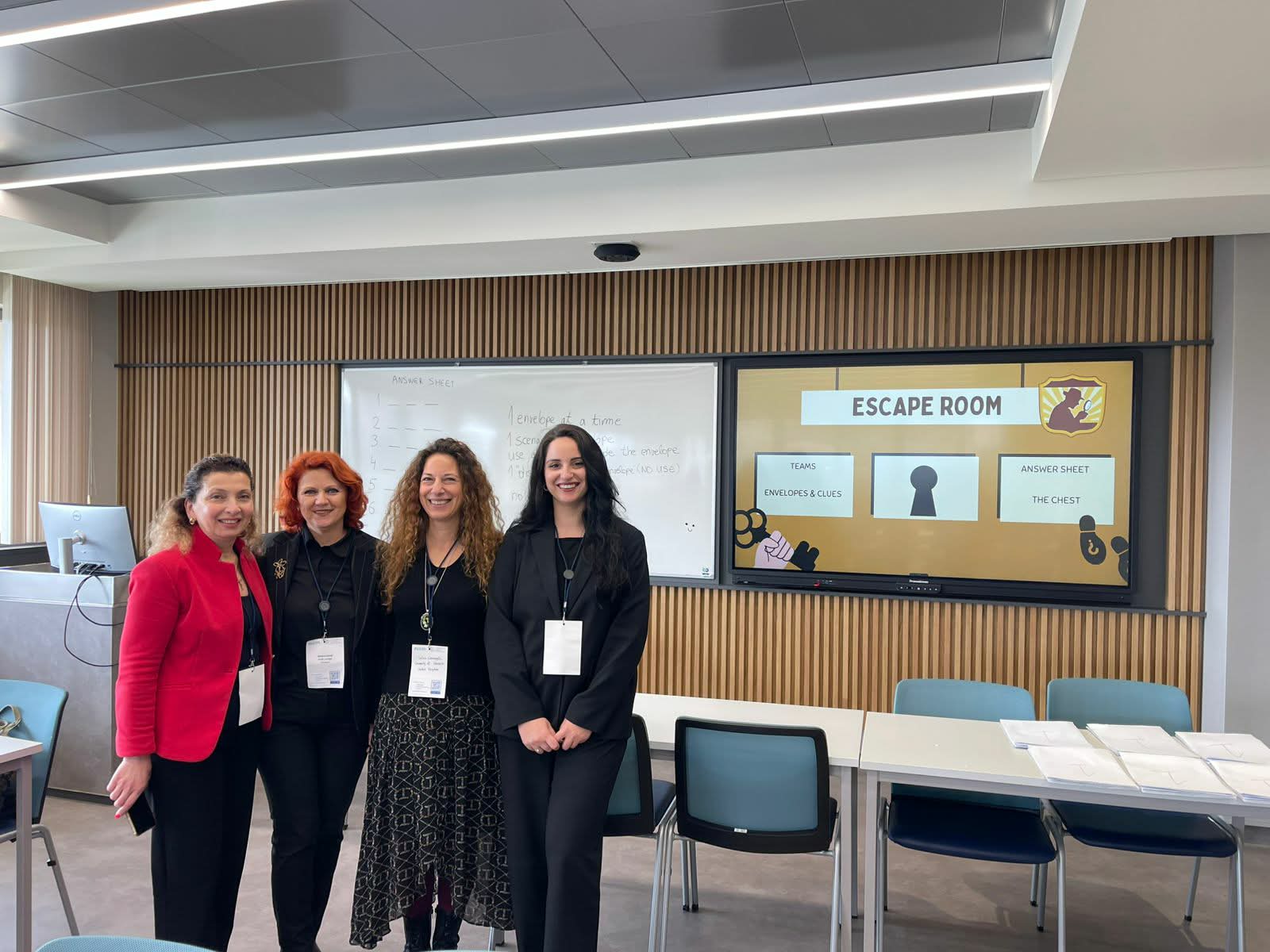
EUA Annual Forum
EUA Annual Forum

The annual forum of the European University Association (EUA) was hosted this year by Lisbon, Portugal. The main theme of the forum was to enhance the quality of teaching and learning in European universities through staff development.
Within the framework of the meeting, Tbilisi Medical Academy was represented by Associate Professor Maka Zarnadze, Head of the Faculty Development Department, and Ana Mamiseishvili, Coordinator of the Rector’s Current Affairs. Together with European partner universities, the Academy’s representatives presented to the forum participants the results of a one-year work of the European University Association’s thematic working group. In particular, they facilitated a workshop dedicated to transnational cooperation in the field of staff development.
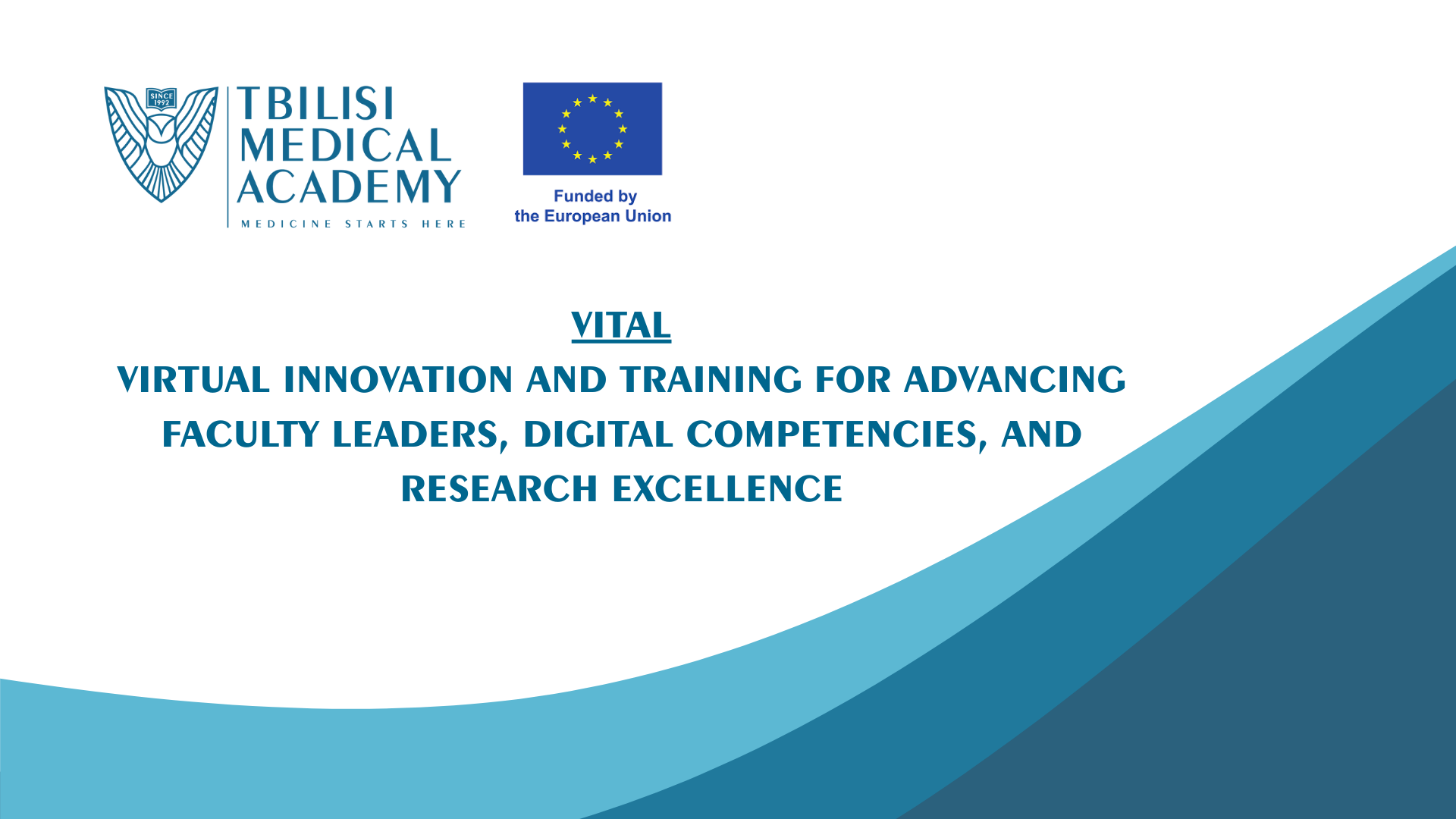
Project VITAL
Project VITAL

VITAL – Virtual Innovation and Training for Advancing Faculty Leaders, Digital Competencies, and Research Excellence is an international strategic capacity-building initiative funded by a grant from the Erasmus+ Virtual Exchange programme.
Within the project, TMA participates as a partner organization, and its implementation and coordination on behalf of the Academy are facilitated by the Faculty Development Department and the Research and PhD Department, ensuring strong institutional engagement.
The project is coordinated by the University of Santiago de Compostela (USC), Spain. VITAL is implemented by an international consortium bringing together partner universities from Spain (University of Santiago de Compostela), Italy (INFOR Elea Smart Business Academy), Ukraine (Institute of Food Biotechnology and Genomics, National Academy of Sciences of Ukraine - IFBG, Ternopil National Medical University, Ukraine - TNMU), and Georgia (Petre Shotadze Tbilisi Medical Academy - TMA, Business and Technology University - BTU).
The project aims to mentor and empower early-career and junior faculty members at higher education institutions in Georgia and Ukraine in the following areas:
- Academic leadership
- Digital pedagogy
- Research competencies
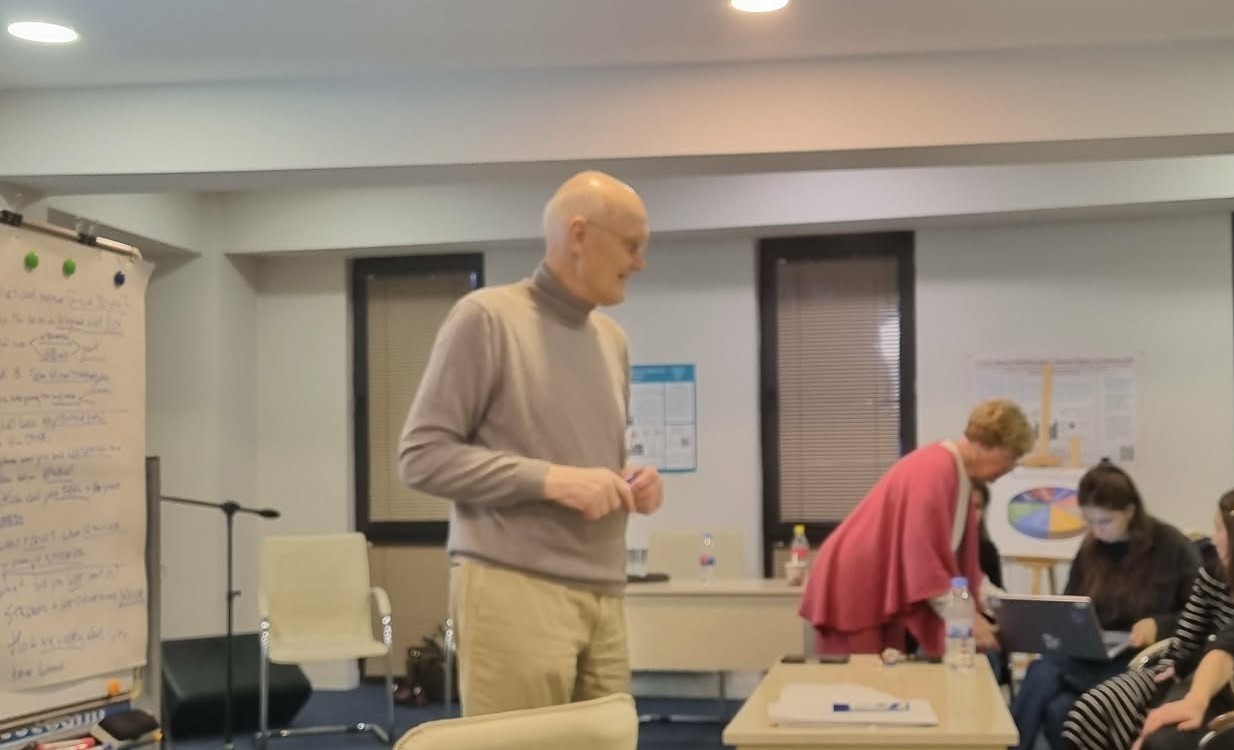
CIMED Leaders Visit Tbilisi Medical Academy
CIMED Leaders Visit Tbilisi Medical Academy

The heads of the Center for Innovation in Medical Education (CIMED), Professor Josette Denekens and Professor Herman van Rossum, visited Tbilisi Medical Academy (TMA).
As part of the visit, working meetings were held with the heads of TMA’s educational programs, the Dean of the School of Medicine, representatives of the Quality Assurance Service, and the Clinical Reasoning Line Implementation Team. During these meetings, the results of educational innovations implemented at the Academy were discussed, feedback from faculty and students was reviewed, and their impact on the quality of the educational process was evaluated.
Together with the Quality Assurance Office, CIMED representatives also discussed mechanisms for the implementation and monitoring of educational innovations.
During the visit, the guests attended a clinical reasoning session, after which the lecturer received constructive feedback aimed at improving teaching methodology and student engagement.
In addition, a workshop was held for academic and visiting lecturers on the topic:
“PSII Curriculum: Patient-Centered, Student-Centered, Inquiry-Based, Integrated Curriculum – The Way to Teach Tomorrow’s Doctors, Doctors Fit for Purpose.”
The workshop highlighted the importance of a student- and patient-centered, integrated curriculum, the development of clinical reasoning skills, and the role of reflection in contemporary medical education.
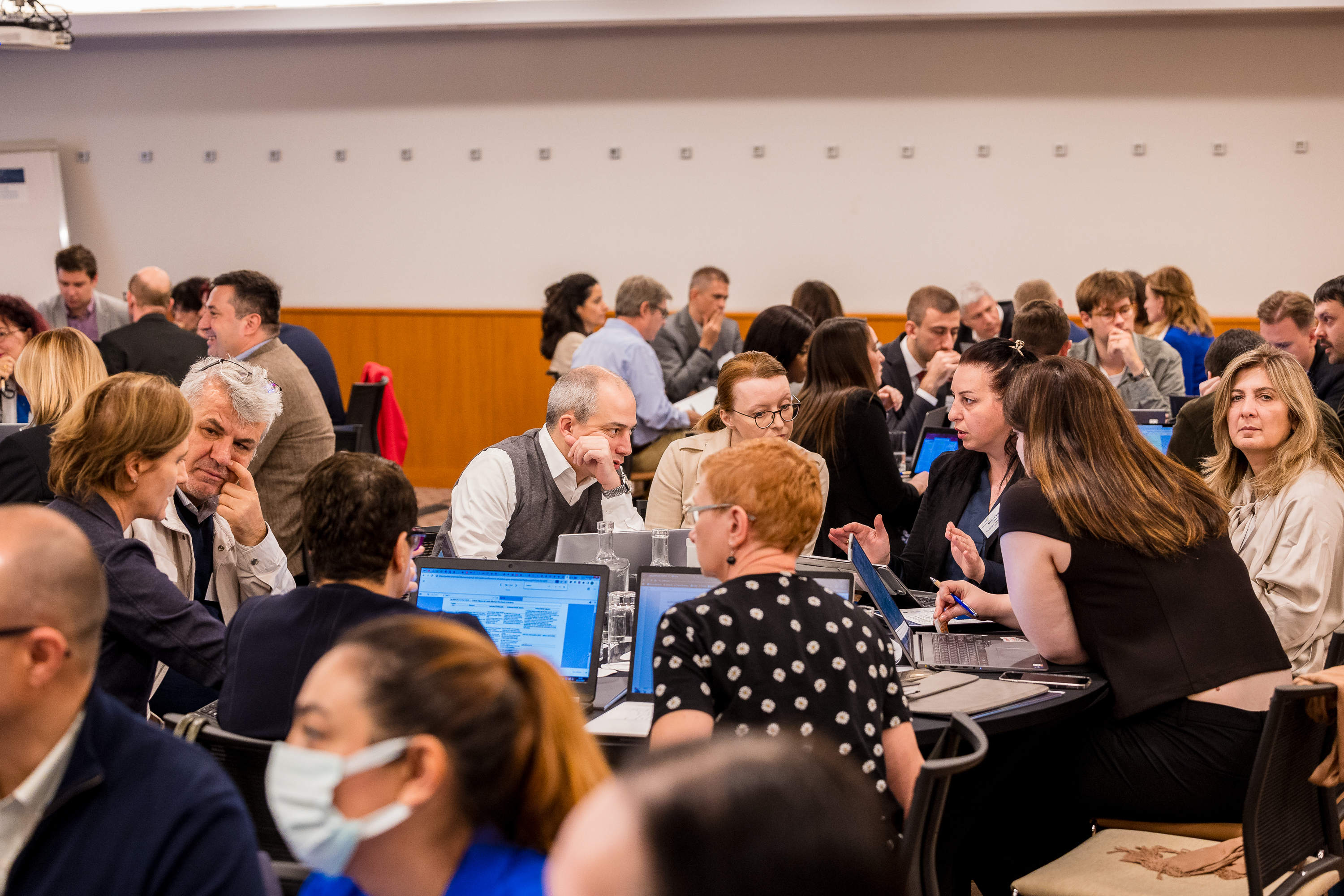
TMA at the PROFFORMANCE+ Project Conference
TMA at the PROFFORMANCE+ Project Conference

The final conference of the PROFFORMANCE+ project was hosted in Budapest. The event, titled “Stakeholder Meeting – Enhancing the Quality of Teaching and Learning,” brought together 90 representatives from 14 countries.
Petre Shotadze Tbilisi Medical Academy (TMA) was represented at the event by Bidzina Chachkhiani, Deputy Head of the Quality Assurance Office and the institutional ambassador (PIA) of PROFFORMANCE+.
The main focus of the conference was the practical application of the PROFFORMANCE+ assessment tool, short training courses, and the database designed to support teaching enhancement.
The event was held with the support of Erasmus+ and the Tempus Public Foundation.
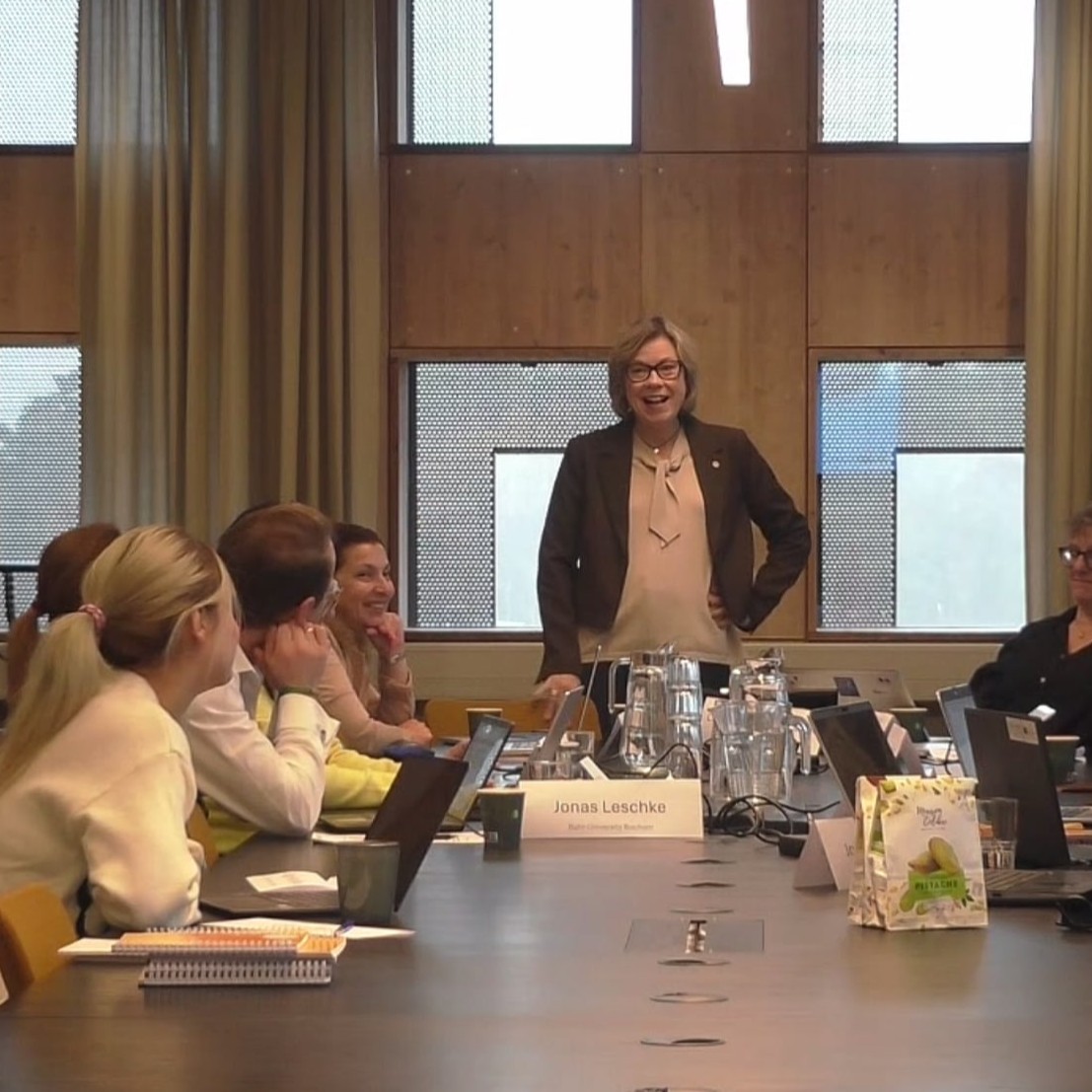
European University Association Meeting
European University Association Meeting

The next meeting of the European University Association (EUA) Thematic Working Group was hosted by Linköping University (Sweden). On behalf of the Faculty Development Department of Tbilisi Medical Academy (TMA), the meeting was attended by the Head of the Department, Associate Professor Dr. Maka Zarnadze, and the Medical Education and Research Specialist Dr. Dea Goderdzishvili.
The meeting aimed to develop and finalize a framework for staff development and to strengthen transnational cooperation. Another key objective was to prepare a workshop for the European University Association Learning and Teaching Forum, scheduled for February 2026.
Since spring 2025, the Faculty Development Department of TMA has been actively participating in the activities of the EUA Thematic Working Group, which focuses on promoting staff development and enhancing transnational collaboration.
The group brings together representatives of leading European universities: Linkoping University (Sweden), Ruhr University Bochum (Germany), Université Côte d’Azur (France), Universidad de Huelva (Spain), University of Warwick (UK), AAB College (Kosovo), “Aleksandër Moisiu” University – UAMD (Albania), National Polytechnic University of Armenia, (Armenia), and other countries. TMA was included in the working group based on a successful application and is actively engaged in the ongoing processes aimed at sharing best practices and institutional models in staff development.
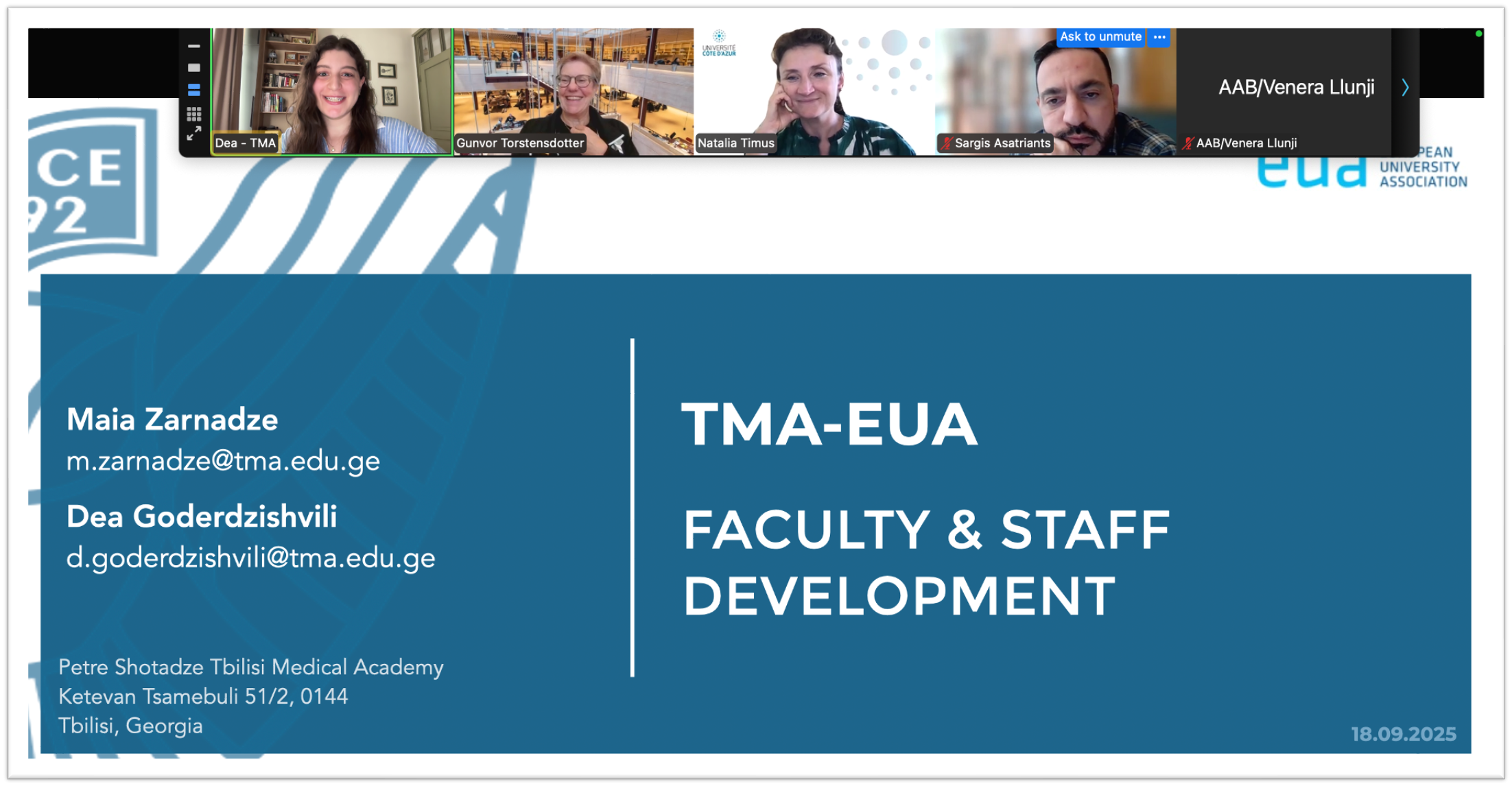
TMA Participates in EUA Thematic Working Group Meeting
TMA Participates in EUA Thematic Working Group Meeting

Since spring 2025, the Faculty Development Department of Tbilisi Medical Academy (TMA) has been actively participating in the activities of the European University Association (EUA) thematic working group, which focuses on facilitating staff development and strengthening transnational cooperation.
This group brings together representatives from leading European universities in countries such as France, Sweden, the United Kingdom, Austria, Kosovo, and others. TMA joined the group following a successful application and has been actively involved in the working process, which aims to share best practices and institutional models for staff development.
The second meeting of the thematic working group, held online in September 2025, focused on discussing institutional experiences in staff development at universities and enhancing international collaboration. The meeting was attended by representatives of various European universities who shared successful practices and approaches in the professional development of academic and administrative staff.
Representing the Faculty Development Department of TMA, the Head of the Department, Associate Professor Maka Zarnadze, and Medical Education and Research Specialist Dea Goderdzishvili participated in the meeting.
During the session, on behalf of TMA Dea Goderdzishvili delivered a presentation highlighting the Academy’s goals, ongoing initiatives, best practices, and current challenges—including needs-based approaches to improving staff professional competencies.
The Faculty Development Department also shared its future plans aimed at enhancing the quality of teaching and learning and expanding international cooperation.
Participation in the EUA thematic working group provides TMA with a valuable opportunity to gain insights into staff development strategies across European universities, share its own practices, and contribute to shaping EUA policy. These efforts are aligned with the goals of the Bologna Process to improve the quality of teaching and learning through effective staff development.
The outcomes of the thematic working group will be presented at the EUA’s annual European Forum.
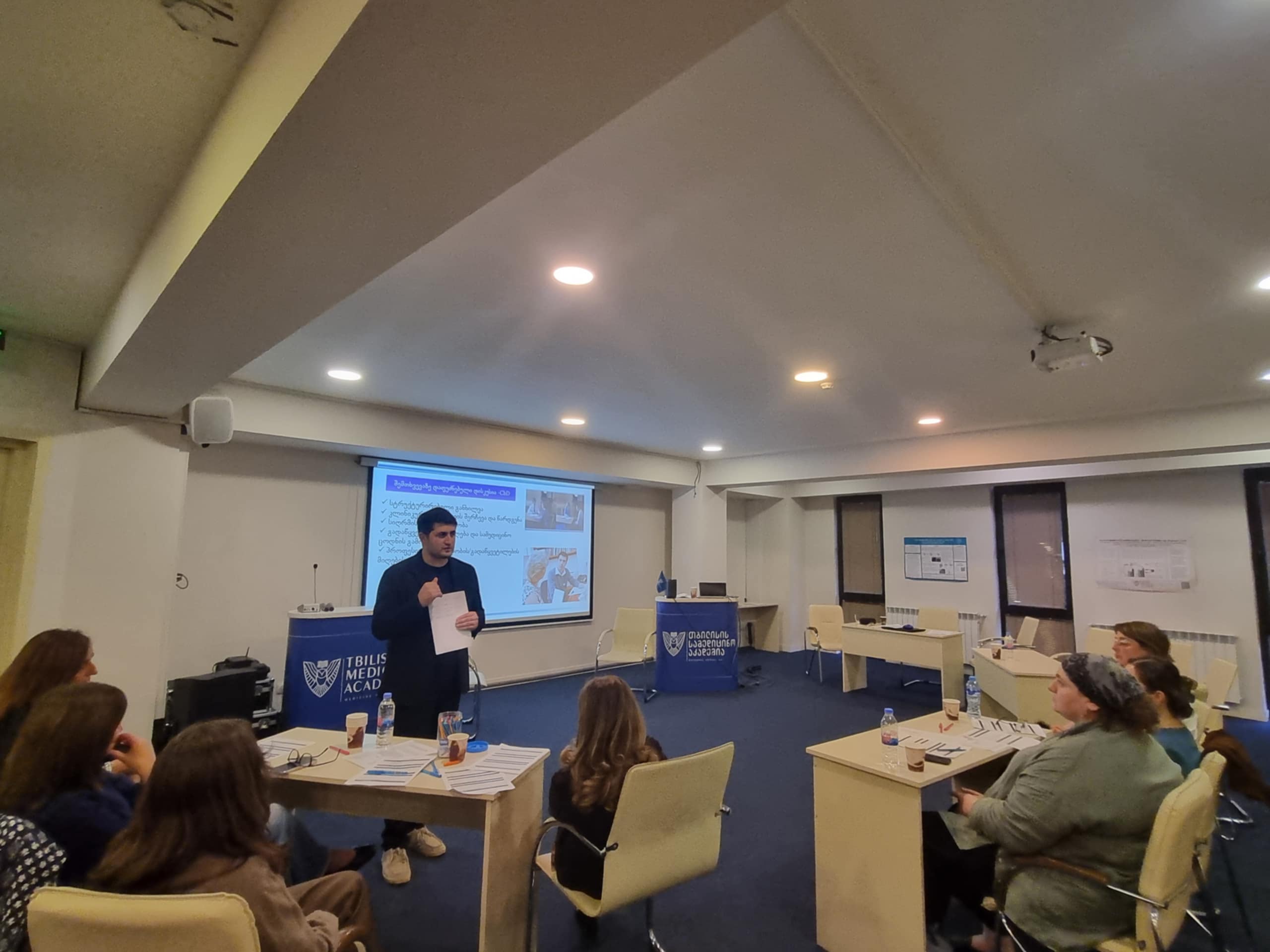
Workshop - “Workplace Based Assessment (WPBA – Mini-CEX and CbD)”
Workshop - “Workplace Based Assessment (WPBA – Mini-CEX and CbD)”

A workshop on the topic: “Workplace Assessment (WPBA – Mini-CEX and CbD)” was organized by the Faculty Development Department and the Programs Department of the Tbilisi Medical Academy.
The goal of the workshop was to familiarize and master the modern workplace assessment methods WPBA – Mini-CEX and CbD for lecturers conducting clinical training courses.
The co-head of the program, Kakha Bregvadze, introduced the participants to the concept of workplace-based assessment, its importance in the clinical training process, international experience and the plan for introducing these methods at the academy.
A special part of the workshop was devoted to the Mini-CEX simulation scenario, within the framework of which the participants had the opportunity to observe the student-patient communication, as well as the process of collecting anamnesis, and then provide constructive feedback to the students.
In the discussion format, participants also discussed the principles of empathy mapping and providing effective feedback.
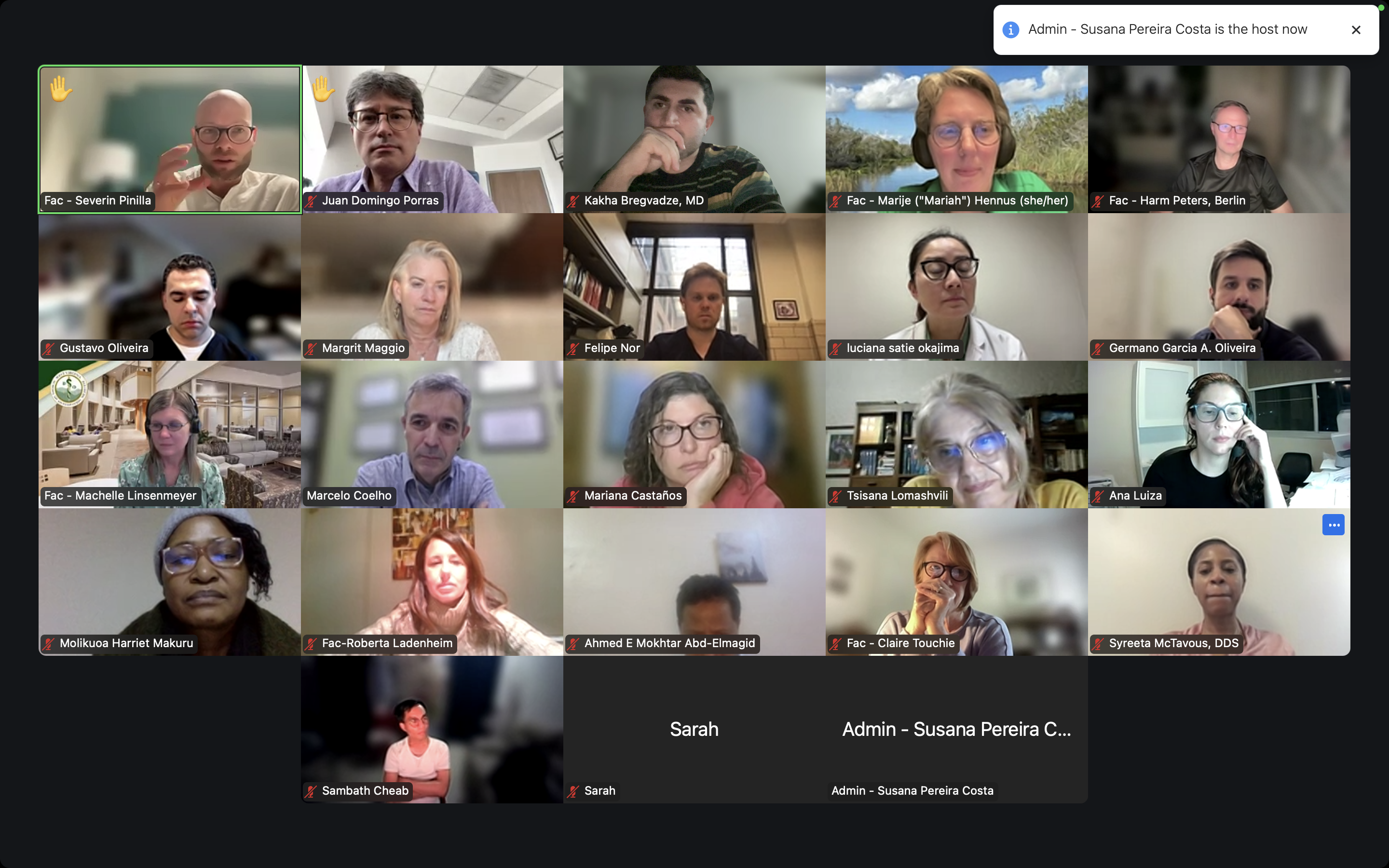
International Course “Entrustable Professional Activities”
International Course “Entrustable Professional Activities”

The heads of the one-step educational programs of Tbilisi Medical Academy (TMA), Tsisana Lomashvili and Kakha Bregvadze, successfully completed the international online course on Entrustable Professional Activities - EPAs: “Ins and Outs of Entrustable Professional Activities”. The course was organized by the Association of Medical Schools in Europe (AMSE) and was taught by such authoritative figures in medical education as Ole ten Cate, Harm Peters and others. It is worth noting that before participating in the course, it was necessary to pass an application competition, as a result of which a total of 20 participants from around the world were selected.
Entrustable Professional Activities (EPAs) are a set of professional activities that can be independently entrusted to a student (undergraduate) or resident (postgraduate) after he/she demonstrates the appropriate competencies during the implementation of these activities. EPA is currently being actively implemented in many countries around the world.
The EPA course was very intensive. The heads of the TMA Medicine program participated in small group activities and discussions.
Based on the experience gained within the EPA course, the implementation of EPA in TMA’s Medical program was planned, which is currently underway.

Presentation of a lecture-free program
Presentation of a lecture-free program

A workshop was organized by the Faculty Development Department of Tbilisi Medical Academy (TMA) for academic and visiting lecturers.
The goal of the workshop was to present the concept of a lecture-free program and introduce active learning methods.
The head of the Programs Department and representatives of the Faculty Development Department introduced the lecture-free program concept. This is an innovative approach based on evidence and aims to shift the focus to active learning during seminars. This approach helps students apply theoretical material in practice, furthermore, it helps them analyze how to learn. This, in turn, is the basis for lifelong learning.
The workshop participants also engaged in the simulation of various active learning methods, including: Snowball method and Jigsaw method. Such a simulated environment allowed the participants to experience different active learning approaches on their own while at the same time having a healthy, evidence-based discussion about the concept of a lecture-free program, it’s positive aspects, challenges, and future activities.

AMEE 2025
AMEE 2025

Tbilisi Medical Academy (TMA) participated in the annual AMEE 2025 conference, the 3 day conference which was organized by the Association for Medical Education in Health Profession (AMEE) was held in Barcelona (Spain). The heads of TMA’s educational program, Tsisana Lomashvili and Kakha Bregvadze, the head of the Scientific Research Department, Gela Beselia, the head of the Faculty Development Department, Maka Zarnadze, and the coordinator of the rector's current affairs, Ana Mamiseishvili presented in the conference on behalf of TMA. This event brings together medical education representatives from around the world, and this year up to 4,000 delegates were hosted from across the globe.
The conference provided an opportunity to learn about the latest developments and innovative approaches in medical education, listen to experts from around the world, and at the same time share our own experiences.
The Head of the Faculty Development Department also participated in the 8th International Conference on Faculty Development in the Health Professions (ICFDHP). The emphasis of the conference was placed on the leading role of faculty development in improving teaching quality, exploring possible approaches to faculty development, and highlighting the importance of research in identifying challenges and finding solutions in the field of faculty development.

Training of Trainers
Training of Trainers

Prof. Maka Zarnadze, Associate Professor of the Department Microbiology and Head of Faculty Development Department at Tbilisi Medical Academy, participated in the Tiny earth Instructor Training – Trainers of Trainers Program that took place in Madison, Wisconsin (USA). This advanced training program is of great importance as it focuses on developing pedagogical excellence, leadership capacity, and the ability to train future teachers.
The training program's focus on microbiology and the polarization of science is particularly important. Participants in this meeting presented different, complex scientific issues to a wide audience in an understandable and interesting way. This is central to fostering scientific literacy, public perception of research, and encouraging future generations to engage in scientific research.
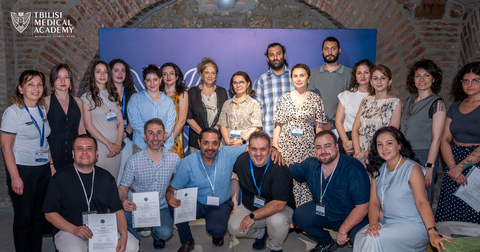
VOSCE Training Course at TMA
VOSCE Training Course at TMA

“Digitalized tool for Objective Structured Examination of Clinical Reasoning Skills of Medical Students” - a four-day training course - VOSCE (virtual OSCE) was held at TMA.
The course was intended for anyone with a medical background, regardless of their experience. It was essential for those involved in teaching and assessing students.
The training was attended by 20 participants from various universities of Georgia (Petre Shotadze Tbilisi Medical Academy, Agricultural University of Georgia, Akaki Tsereteli State University, Georgian American University, Georgian National University SEU). In addition, representatives from Yerevan State Medical University after Mkhitar Heratsi and Bukhara State Medical Institute participated in the training.
In addition to familiarizing themselves with the theoretical material, the participants of the training had the opportunity to participate in a simulated digital exam at the TMA Examination Center, as well as to attend an objectively structured clinical exam at the Academy’s Clinical Skills Center.
The participants of the training were given the opportunity to work in groups on the structure of clinical cases to assess the clinical reasoning of the students.
The training course was prepared by TMA professors (specialists in medical education) based on the experience of the EU-funded project - SAFEMED+ Simulation in Undergraduate MEDical Education for Improvement of Safety and Quality of Patient Care. The goal of the SAFEMED+ project was to improve the quality of medical education, modernize the teaching of clinical skills, and introduce them into the curriculum.
The training program was accredited by the European Accreditation Council of Continuous Medical Education (EACCME®) and was awarded 15.5 credit points. Upon completion of the four-day training, participants were awarded a certificate with the corresponding EACCME credit points.
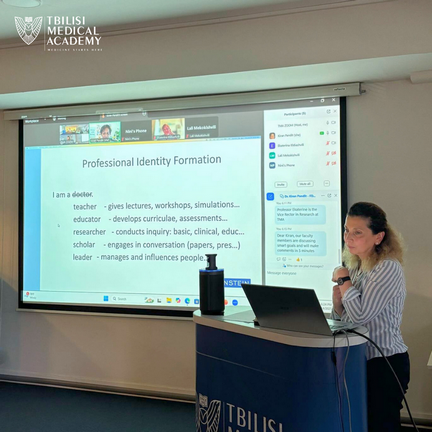
Public Lecture by Dr. Kiran Pandit (USA)
Public Lecture by Dr. Kiran Pandit (USA)

A public lecture by an American colleague, Dr. Kiran Pandit (MD, MPH), was held for the academic staff of Tbilisi Medical Academy (TMA). The meeting took place online, and its main topic was Beyond Student Evaluations of Teaching and Educator Portfolios: A Multisource, Longitudinal System for Evaluating Teaching. The presentation focused on a multisource and long-term approach to evaluating teaching.
During the meeting, Dr. Pandit delivered a presentation in which he emphasized that student evaluations should not be the sole method for assessing academic staff and the teaching process. He shared his experience with alternative methods for evaluating teaching quality and presented concrete, practical examples. Special attention was given to the importance of fostering and developing a teacher’s professional identity within the academic environment.
Dr. Kiran Pandit is the Vice Dean for Faculty Development at Albert Einstein College of Medicine, New York, USA. He has extensive experience in medical education, faculty development, and innovative curriculum design. He also leads institution-wide initiatives related to the assessment and evaluation of health professions education. Dr. Pandit is a frequent participant in international conferences. His collaboration with TMA academic staff began last year during a similar event; the AMEE 2024 conference.
The working meeting with the American colleague was organized by the Faculty Development Department of Tbilisi Medical Academy.
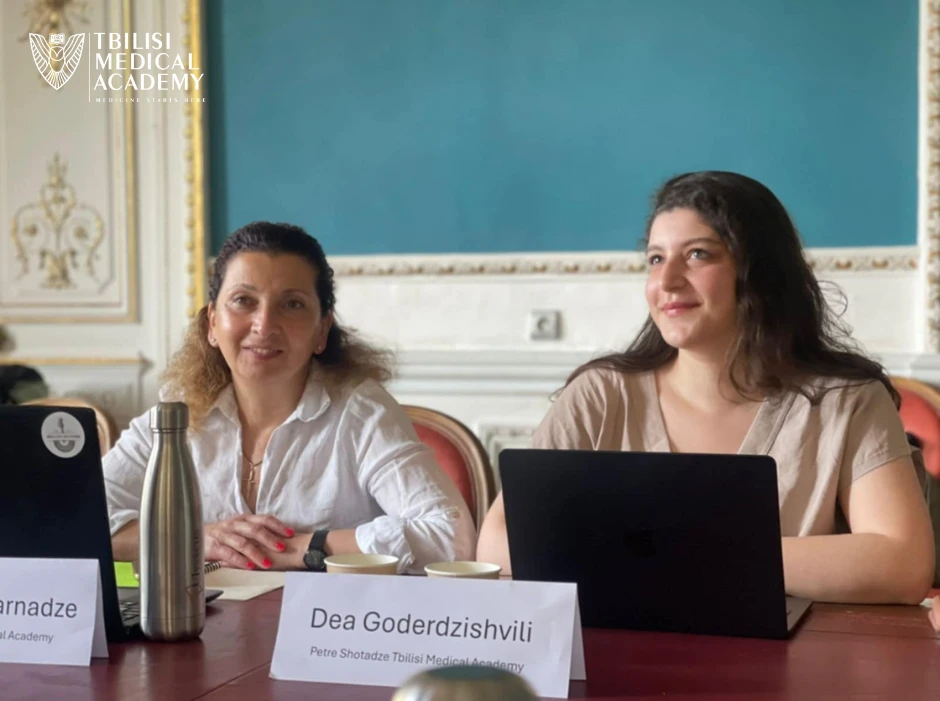
TMA Representatives at the EUA Working Group Meeting
TMA Representatives at the EUA Working Group Meeting

The first working group meeting of the European University Association (EUA) was hosted by the University of Côte d’Azur in Nice, France.
The aim of Learning & Teaching Thematic Peer Group on Staff Development and Transnational Collaboration is to address the challenges and share best practices in supporting staff development in teaching and learning at European universities. Additionally, the group seeks to develop a framework for transnational cooperation focused on staff development.
Tbilisi Medical Academy (TMA) is represented in the EUA thematic working group by the Head of the Faculty Development Department, Associate Professor Maka Zarnadze, and Specialist in Medical Education and Research, Dea Goderdzishvili.
Participation in this thematic working group provides TMA with the opportunity to gain insights into staff development practices at European universities, as well as to share its own experience in this area. Through this collaboration, TMA actively contributes to the development of EUA policy—particularly in enhancing the quality of teaching and learning through staff development, in alignment with the goals of the Bologna Process.
The EUA working group consists of 20 representatives from 10 European universities, including institutions from Sweden, the United Kingdom, France, Austria, Spain, Kosovo, Albania, Armenia, and Ukraine.
The outcomes of the thematic group's work will be presented at the EUA Annual European Forum, which will be held in Lisbon in February of 2026.
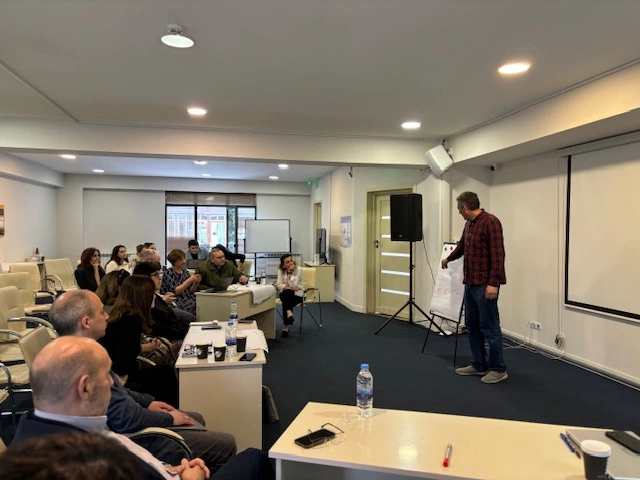
Training for Academic and Invited Staff of TMA
Training for Academic and Invited Staff of TMA

A training week was held at the Academy to promote the development of scientific and research skills of the academic and invited staff of the Tbilisi Medical Academy:
Presentation of TMA PHD programs and the scientific potential of the Academy - The heads of PHD programs, Dr. Ekaterine Kldiashvili and Dr. Gia Kamkamidze, presented the doctoral programs: “Medical Sciences” and “Public Health” to the meeting participants. Dr. Gela Beselia, Head of the Scientific Research and PhD Department, spoke about the scientific potential of the Academy. The speakers answered the questions of the meeting participants.
Training - Principles of Academic Integrity - The participants of the meeting discussed the issues of academic integrity, which are important for the development of the research component of the institution and also for the scientific career of a specific individual, using specific case examples, and represent a serious challenge in the era of artificial intelligence (AI).
Training - Basic Principles of Effective Scientific Communication - The participants of the meeting discussed the basic principles of scientific communication, using specific case examples. The rules for selecting a scientific journal and important issues in preparing a scientific publication.
Workshop - Research in the field of medical education methodology - It was noted at the meeting that research in the field of medical education methodology is important to promote evidence-based teaching and assessment in academia and, accordingly, to ensure high-quality teaching and the formation of graduates as professionals (fit purpose). The meeting was held in the form of group work, where participants selected and formulated a research/scientific question, methodology, and the significance of the results of the topic, and received feedback from colleagues and the Vice-Rector on the direction of the research. A follow-up meeting was also planned, where participants presented the results of the literature review and the research plan around the chosen topic.
The activities were organized by the Scientific Research and PhD Department and Faculty Development.
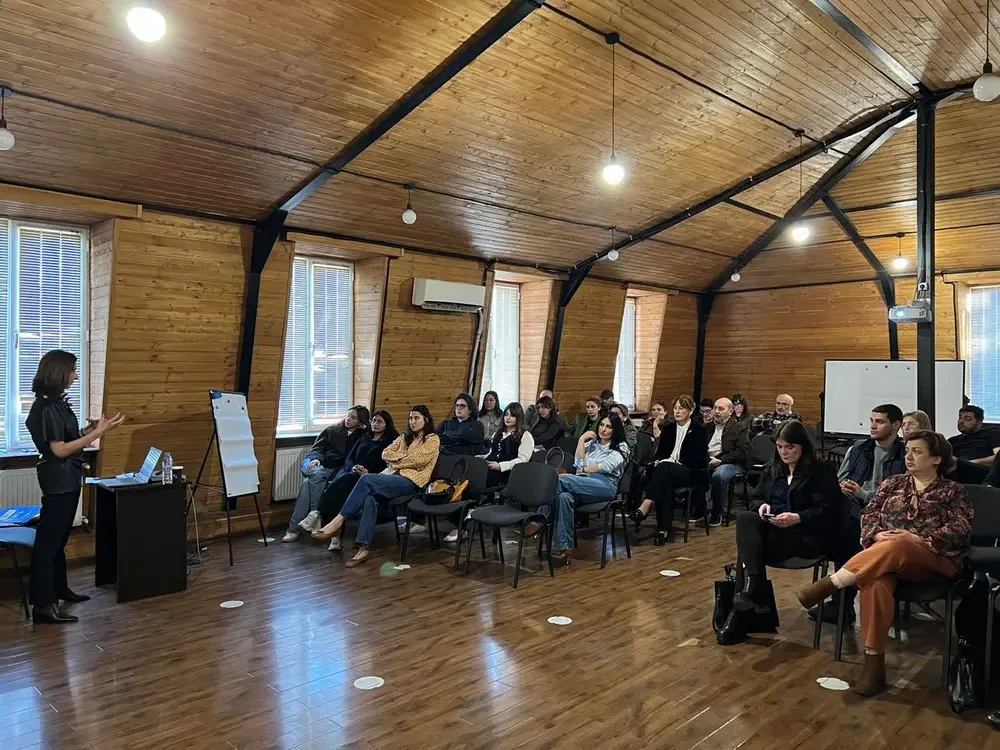
TMA's Individual and Corporate Social Responsibility (ISR/CSR) Activities
TMA's Individual and Corporate Social Responsibility (ISR/CSR) Activities

The Academy’s Institutional Culture Development Department along with the Faculty Development Department organized a workshop on the topic of Individual and Corporate Social Responsibility.
The workshop aimed to introduce the ISR/CSR activities that TMA's Institutional Culture Development Department implements.
The workshop was attended by academic and invited lecturers, students, graduates, and administration representatives.
Within the framework of the workshop, Dr. Maka Maglakelidze, Head of the Institutional Culture Development Department, introduced the role of the Academy in society beyond education and research to the participants. She spoke about the past and ongoing social projects being implemented by TMA, which became a source of inspiration for them to plan future ideas for projects.
The participants, united in groups, jointly developed creative ideas and presented interesting project concepts for social and cultural development.
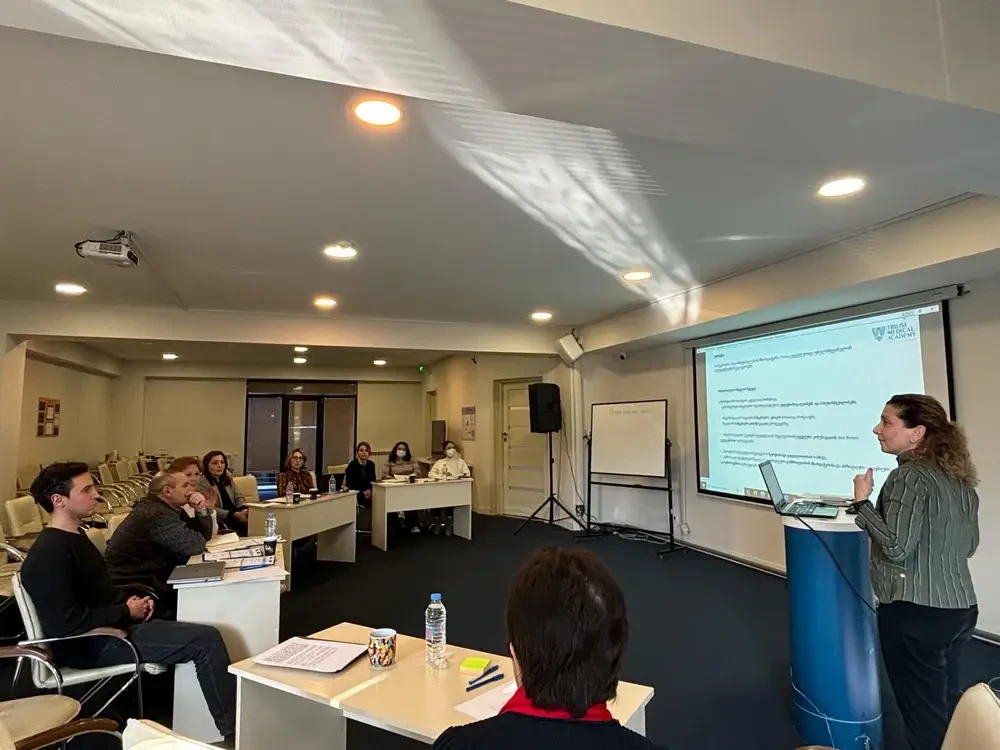
Basic Principles of Effective Supervision
Basic Principles of Effective Supervision

A training course on the Basic Principles of Effective Supervision was organized at TMA by the Faculty Development Department and the Scientific Research and PhD Department of the Academy.
The training program was based on the Training of Trainers organized by The Organization for PhD Education in Biomedicine and Health Sciences in the European System (ORPHEUS), which was attended by TMA staff members.
“Quality in Doctoral Education, Creation of Training Programs for Scientific Supervisors” - this is the name of the training in which the TMA delegates actively participated in, during the period of 29.09 -3.10.2024, in Dubrovnik (Croatia).
The goal of the training was to support scientific supervisors so that they could facilitate the career development of students and researchers.
Within the framework of the meeting, many issues were discussed, among which:
-The rights and obligations of scientific supervisors
-The main challenges of scientific ethics and communication
-The importance of correct communication between a student and a scientific supervisor
-The main principles of effective feedback
-Signs of stress and burnout of a student or researcher, which was discussed through interactive relevant cases.
-The importance and approaches of supporting the mental health of a student/researcher and creating a positive academic environment by the scientific supervisor.
The above-mentioned topics were presented at the training by the Head of the Faculty Development Department, Associate Professor Maka Zarnadze, Medical Education and Research Specialist Dea Goderdzishvili, Associate Professor Manana Loladze, Coordinator of TMA Students' Scientific Research Activities Saba Iordanishvili, Librarian Luba Pogosova, and the Head of Student Consulting Service Mariam Matchavariani.
The training was attended by the heads of TMA doctoral programs, Vice-Rector in Research Ekaterine Kldiashvili, Head of the Scientific Research and PhD Department Gela Beselia, and TMA staff.
The program will be improved based on the feedback received from the participants of the pilot training course, and starting in 2025, training courses will be conducted regularly and mandatory for personnel involved in the implementation of the doctoral programs.
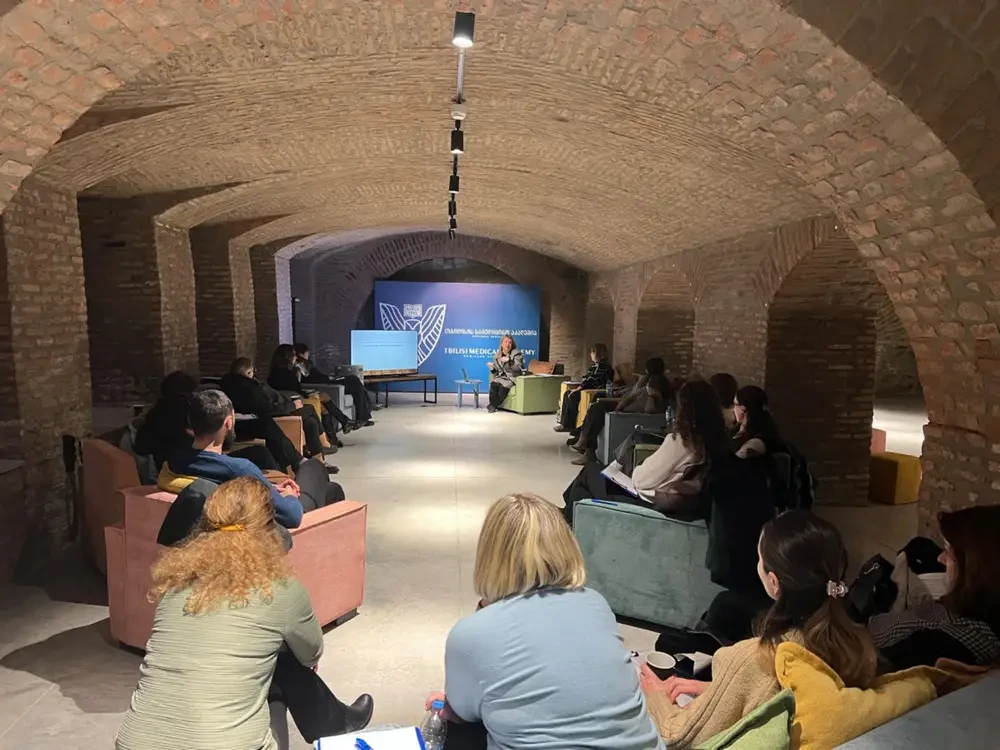
Training Sessions for Academic and Invited Lecturers
Training Sessions for Academic and Invited Lecturers

The Faculty Development Department organized a week-long training program at TMA to promote the professional development of academic and invited lecturers.
The first training session focused on a reflection activity, which is conducted every semester among the portfolio mentors. The purpose of the meeting was to discuss the challenges related to the portfolio system and share experiences. Within the framework of the training, the mentors used a specifically designed self-reflection form and assessed their understanding of the role of the portfolio in TMA’s educational program and evaluated the quality of feedback provided to students. The participants of the meeting also explored various scientific studies published in the field of mentoring. Nanuka Tsiklauri and Mariam Gugushvili presented and discussed with the audience one of the articles “How do mentors perceive and perform their role in a reflection-based mentoring programme for medical students?” (Ghent University, International Journal of Medical Education. 2024. October).
Sharing experiences—The meeting opened with Gela Beselia, a professor at Tbilisi Medical Academy, presenting the topic “Neurobiological Mechanisms of Memory” to an audience of physiology course lecturers. The audience also discussed the importance of such meetings, where the topics will be presented by the expert from the field.
Within the framework of the training week, one of the meetings was dedicated to the maximum use of the capabilities of the Anatomage. The training was attended by the anatomy course lecturers with the goal of introducing the unique possibilities of using the anatomical table and include them in the educational process.
Assessment in medical education, how to create an MCQ test - The training was led by the coordinators of the examination center - Vakho Deisadze and Jimi Bregvadze. They introduced the international recommendations and 10 rules for creating an MCQ test, which was developed at the academy and should be followed by TMA lecturers.
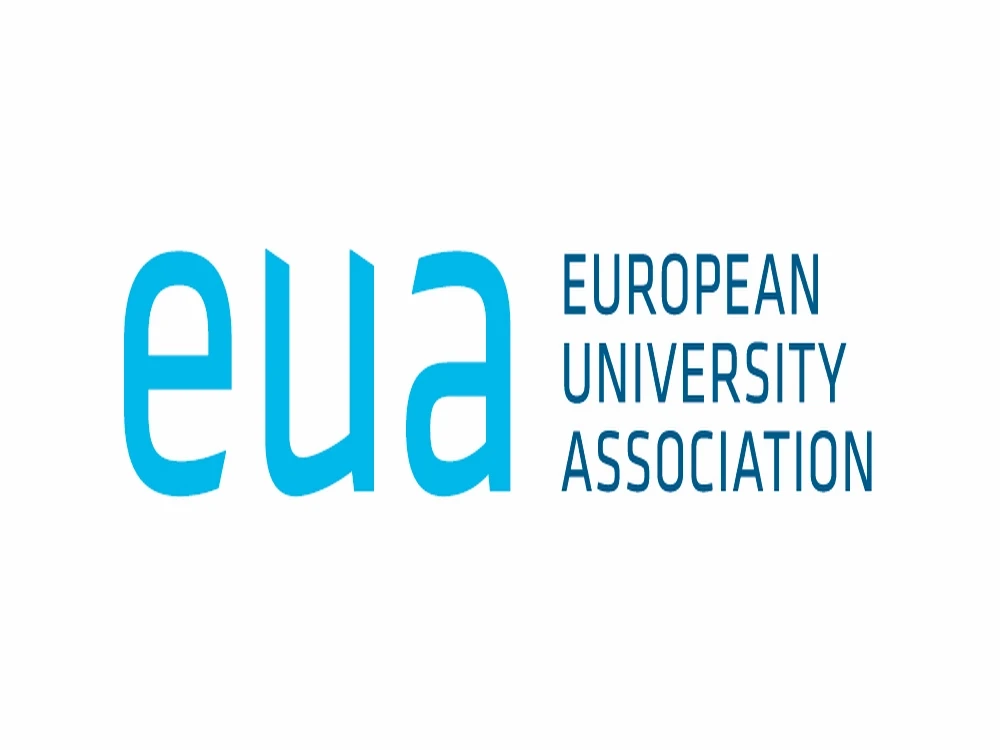
TMA in EUA Thematic Working Group
TMA in EUA Thematic Working Group

After a thorough application process, TMA's application was successfully accepted by the European University Association (EUA), and TMA will participate in the 2025 EUA Learning & Teaching Thematic Peer Group focused on Staff Development and Transnational Collaboration.
This participation provides TMA with an opportunity for peer learning and the exchange of experiences, while also contributing to the Association’s policy work on learning and teaching, such as within the context of the Bologna Process. The work of the group also feeds into the EUA’s annual European Learning & Teaching Forum.
The main objectives of the Thematic Peer Groups (TPGs) are:
• To discuss and explore best practices and lessons learned in organizing and implementing learning and teaching in European universities.
• To contribute to the enhancement of learning and teaching by identifying key considerations related to the selected themes.
The 2025 TPG will focus on staff development across higher education institutions in Europe, examining how staff-student partnerships can enrich teaching, support staff development, and promote a more collaborative and inclusive approach to learning.
Maka Zarnadze, Head of the Faculty Development Department, and Dea Goderdzishvili, Specialist in Medical Education and Research, will represent the Academy in the EUA Thematic Peer Group for one year (2025 March -2026 February).
Last year-2024, TMA successfully participated in the EUA AI Task-and-Finish Group, with the active involvement of the Vice-Rector in Research, Eka Kldiashvili.
The European University Association (EUA) represents more than 850 universities and national rectors’ conferences in 49 European countries. EUA plays a crucial role in the Bologna Process and in influencing EU policies on higher education, research, and innovation. Through continuous interaction with a range of other European and international organizations, EUA ensures that the independent voice of European universities is heard.
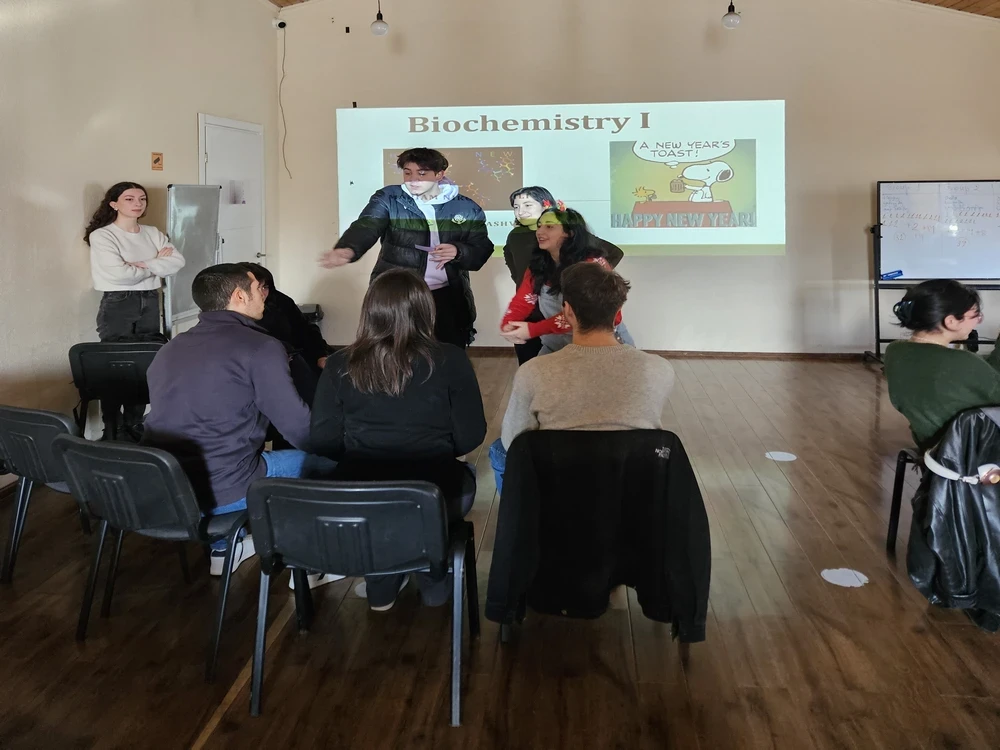
Let's make learning fun!
Let's make learning fun!

Student-centered learning involves the active involvement of students in the learning process, which contributes to the development of self-development skills and increases the student's responsibility for forming their knowledge. Various active learning methods (TBL, Flipped Classroom, CBCR, Portfolio, etc.) are integrated into the educational program of TMA, however, motivated TMA lecturers also organize various extracurricular activities, which include multiple examples of active learning.
At the initiative of Dr. Mariam Nikolashvili, an invited lecturer at the Department of Biochemistry, a New Year's Fun competition for Biochemistry 1 was held.
25 first-semester students participated in the activity and were divided into small (3-4 students) groups. They were required to identify clinical correlations related to biochemistry and answer blitz questions in a limited period.
The competition was held in a fun, interesting, non-stressful environment, with the active involvement of students.
The winning teams were awarded symbolic prizes.
Such activities are important because they enhance motivation for learning, develop critical thinking and communication skills, promote in-depth understanding, and encourage students to take greater responsibility for constructing their own knowledge.
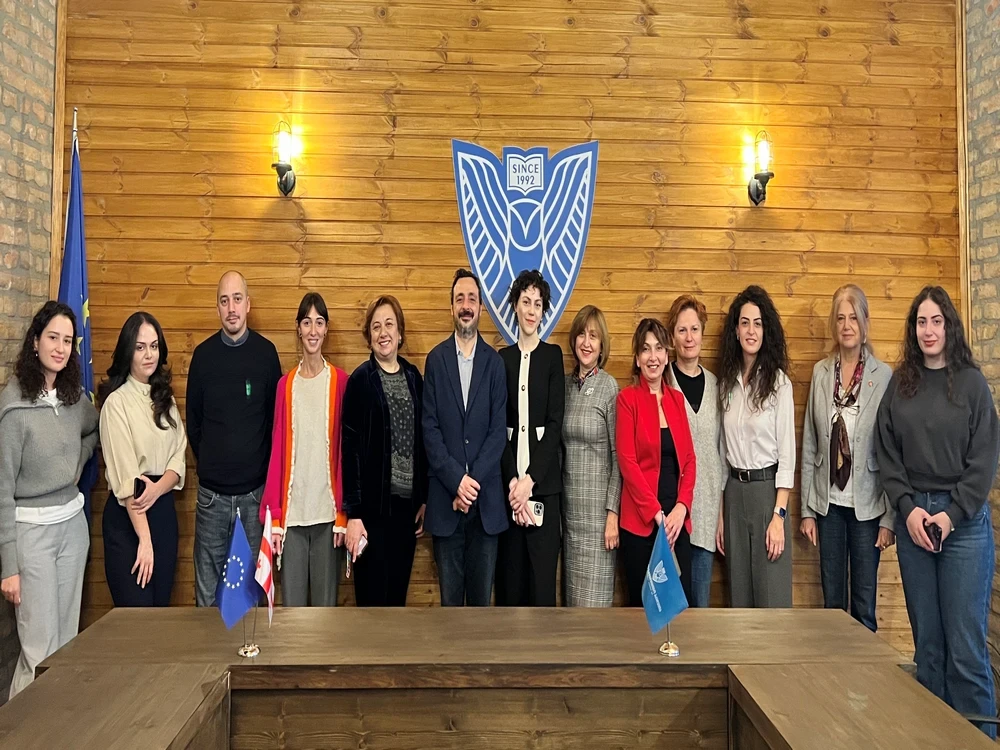
Prof. Giulio Petronio at TMA
Prof. Giulio Petronio at TMA

TMA hosted Clinical Microbiology Professor Giulio Petronio. The visit was part of the Erasmus+ cooperation between the University of Molise (UNIMOL, Italy) and TMA. Professor Petronio held meetings with the administration, including the Dean of the Faculty of Medicine, the Vice-Rectors in Research and International Affairs, and representatives from the International Department, Faculty Development Department, and Quality Assurance Department. Discussions focused on the potential for further collaboration and the continuation of the Erasmus+ project.
The invited speaker gave lectures not only to students but also to academic and invited staff. The topic of the lecture was "Re-emerging Vector-borne Diseases: From Epidemiology to Resistance." The lecture aimed to provide an overview of re-emerging vector-borne diseases, with a focus on their epidemiology, the factors contributing to their resurgence, and the challenges posed by antimicrobial resistance.
During the lecture, the professor discussed the following topics:
- Introduction to vector-borne diseases, major vectors, and examples of re-emerging diseases (such as Dengue, Malaria, Zika, and Chikungunya);
- Epidemiology and factors contributing to the re-emergence of diseases, including climate change, urbanization, and global travel;
- Disease transmission dynamics and the complex interactions between hosts, vectors, and pathogens;
- Antimicrobial and insecticide resistance, and strategies for mitigating these issues.
Each lecture concluded with an interactive Q&A session, encouraging discussion and engagement with the students.
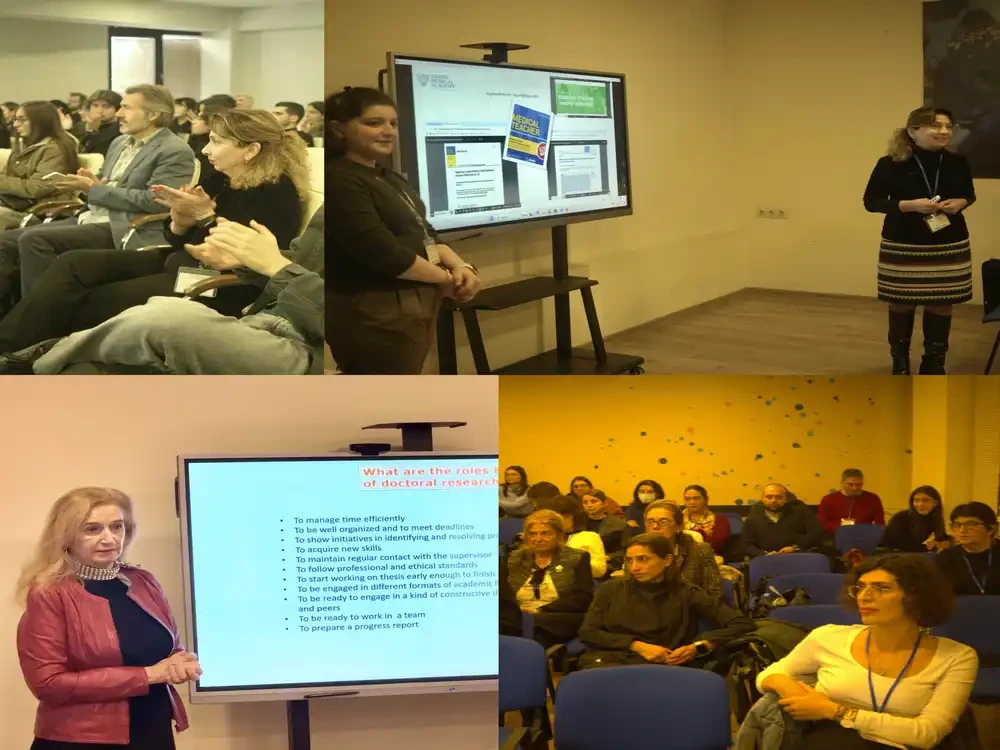
Activities within the framework of MEDIC 2024
Activities within the framework of MEDIC 2024

Within the framework of the International Scientific Conference - "Medicine: Innovations and Challenges 2024 (MEDIC 2024)", to professionalize the academic and invited staff of the TMA, workshops aimed at promoting the development of research skills of staff and students were held with the initiative and support of the Faculty Development and Scientific Research and Doctoral Departments:
November 26 - "Teacher’s self-reflection as a tool for faculty development"
The meeting participants were introduced to the importance of self-reflection as a component of teacher professional development and the existing international recommendations in this direction. In addition, the participants individually filled out the teacher self-reflection form developed by the Academy based on international recommendations. The document provides the teacher with the opportunity to evaluate his/her activities about predetermined standards/documents.
Within the meeting's framework, the participants interactively discussed how much this form of self-reflection will help the teacher identify their strengths and areas for improvement.
November 27: “Holistic approach to doctoral supervision: expectations, roles, and responsibilities
The meeting was led by Professor Melita Kovačević - Professor at the University of Zagreb, Former EUA CDE SC Chair, PRIDE Association, Board Vice Chair.
The moderator introduced the expectations for the heads of doctoral and master's programs, their rights/responsibilities, and international recommendations to the participants of the meeting. The participants of the event interactively discussed the possibilities of introducing international principles and experience in the academy.
November 28: How to convert abstract to research paper
The Vice-Rector for Research - Ekaterine Kldiashvili, introduced the participants of the meeting to the requirements for a scientific paper, the stages of completing a scientific paper, and the requirements of international journals for a scientific paper.
The participants of the meeting interactively discussed the challenges they face when submitting a paper to scientific journals, and the possibilities of overcoming these challenges.
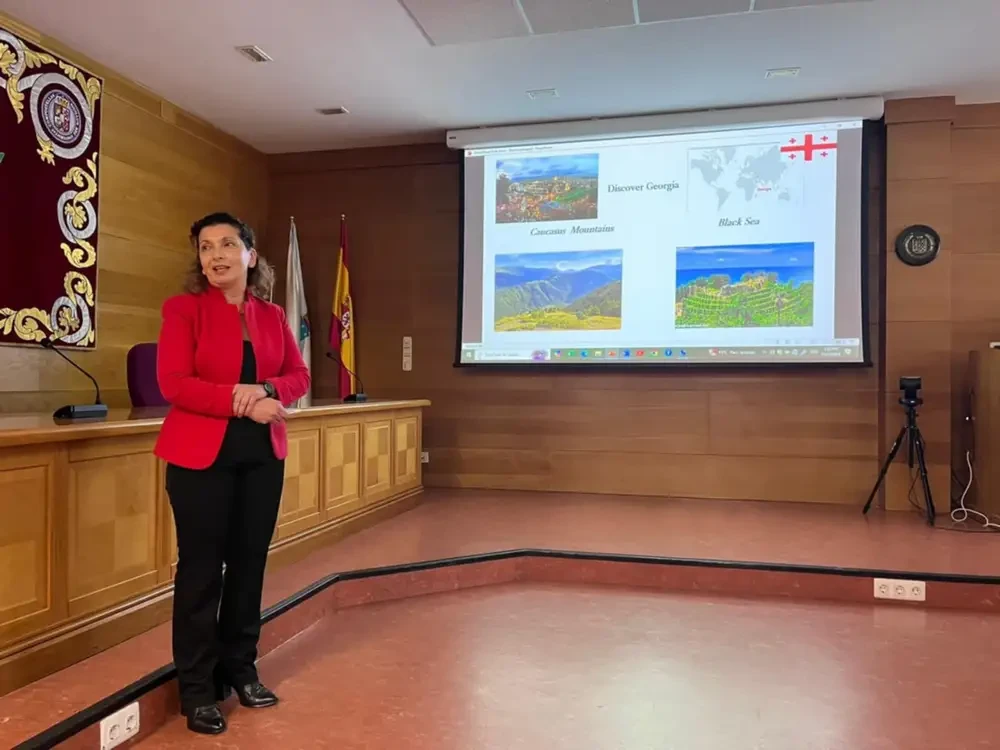
Visit at Santiago de Compostela University
Visit at Santiago de Compostela University

Associate Professor of the Academy's Department of Microbiology, Head of the Faculty Development Department of TMA -Maka Zarnadze, was in the Department of Microbiology of the University of Santiago de Compostela (Spain) within the framework of the staff development program - Erasmus Staff Mobility. As part of the mobility (November 11-17), she participated in the Antibiotic Resistance Awareness Week and gave a presentation - Hints of Antibiotic Resistance – Bacteriophages.
During the mobility, she had the opportunity to share the experience of her Spanish colleagues in teaching microbiology at the University of Santiago de Compostela and the research opportunities of the host university.
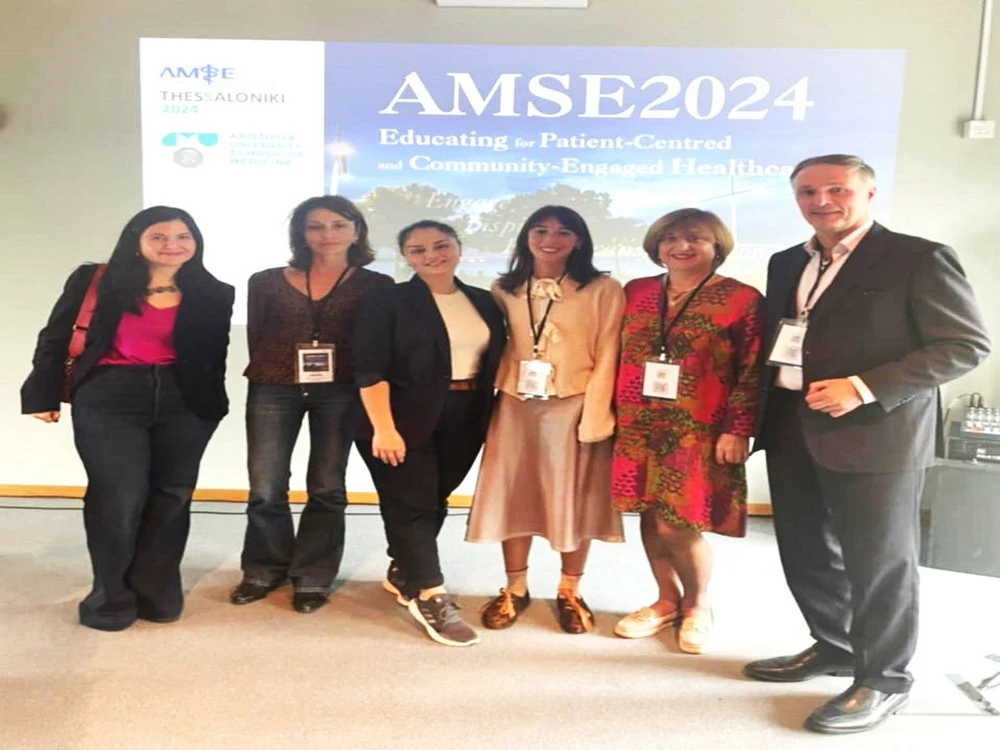
AMSE - 2024
AMSE - 2024

The annual conference of the Association of Medical Schools of Europe (AMSE) was hosted by Thessaloniki (Greece) this year. The TMA delegation, which included the Dean of the School of Medicine Lali Mekokishvili, Deputy Dean for Educational Process Management Marika Tkhelidze, Head of Institutional Culture Development Department Maka Maglakelidze, Horizon Europe Grant Office Coordinator Magda Tvildiani and Rector's Current Affairs Coordinator Ana Mamiseishvili, presented two posters. - Presentation: "Application of photography and storytelling in developing medical students' attitudes towards practice in remote and rural areas" and "International Students Experiences: Enhancing Critical Analysis and Decision-Making Skills with Virtual Patient Simulation".
In addition, they participated in a number of activities planned within the conference's framework, including lectures, panel discussions, and workshops.
The two-day conference aimed to share knowledge and patient-centered examples, as well as to strengthen community involvement in developing the health care system.
The AMSE Annual Conference is an important platform for medical schools to share experiences and best practice and strengthen connections with for healthcare professionals.
Event participants had the opportunity to interact with experts and industry professionals from across Europe, as well as learn about the latest in medical education, research and patient care.
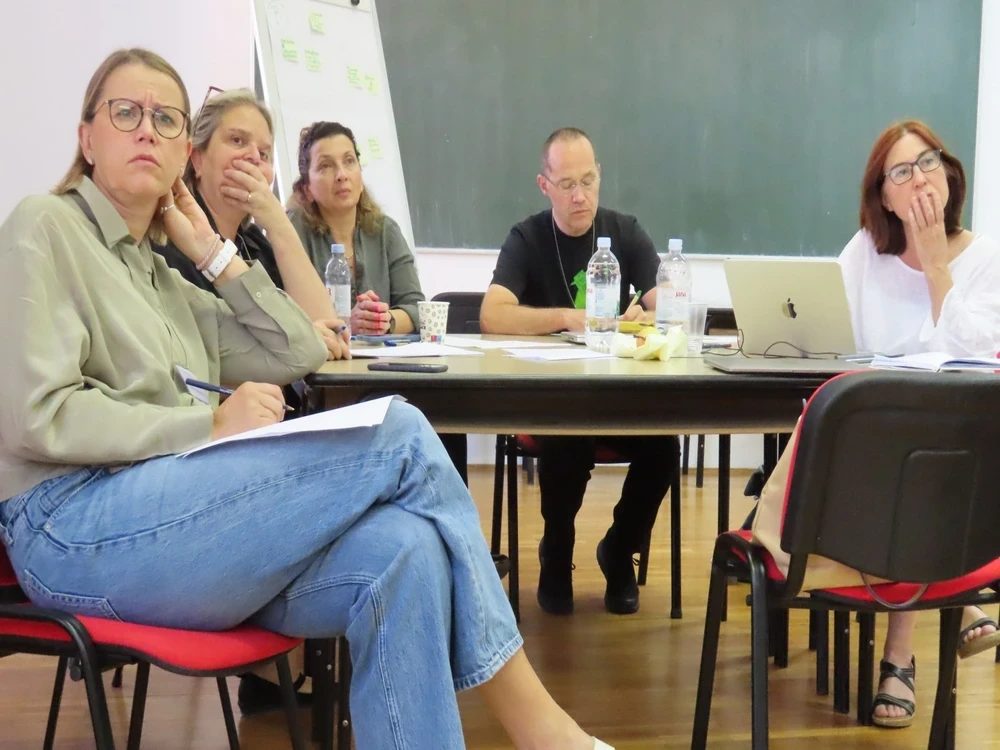
TMA representatives in Dubrovnik
TMA representatives in Dubrovnik

"Quality in Doctoral Education" - the training of trainers of this name was hosted by Dubrovnik (Croatia). The event was organized by the Organization for PhD Education in Biomedicine and Health Sciences in the European System (ORPHEUS), in which the Head of the Faculty Development Department of TMA, associate professor of the Department of Microbiology Maka Zarnadze, and the member of the grant committee of TMA, associate professor of the Department of Microbiology Manana Loladze participated.
Training of trainers aimed to create training programs for scientific supervisors to ensure the quality of doctoral programs.
During the workshops, the participants shared their experiences, worked together on the training program for scientific supervisors, and received feedback from the training facilitators. After the trainings, they independently developed their universities' training programs for scientific supervisors.
Karolinska University Professor, Dean of Doctoral Programs - Robert Harris, Vice President of Orpheus - Janet Cartoon, Executive Committee Representative of Orpheus Professor Joanna Almeida Palha and President of Orpheus Professor John Creemers facilitated the training.
15 representatives from 11 different European universities participated in the meeting.
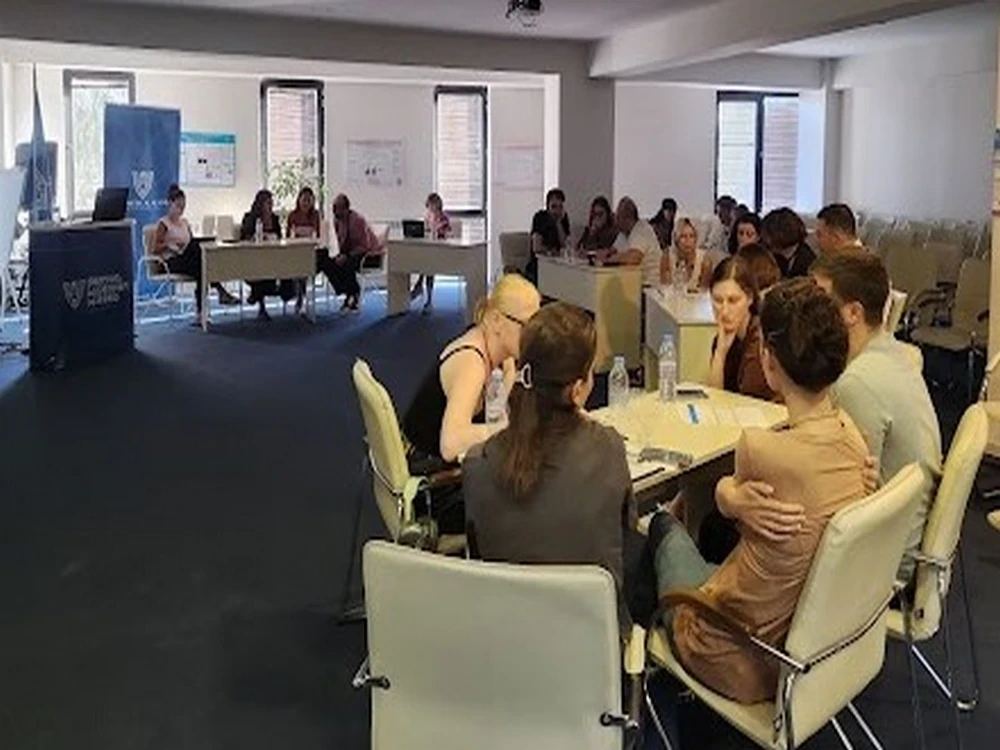
Trainings for New Lecturers
Trainings for New Lecturers

Orientation meetings for new lecturers were held at TMA, the purpose of the meetings was to facilitate the integration of lecturers into the new workspace.
Within the framework of the meeting, Ekaterine Kldiashvili, TMA's Vice-Rector in Research, introduced the main strategic directions of the Academy, and the Dean School of Medicine Lali Mekokishvili introduced organizational issues and communication opportunities with the administration to the new lecturers. Maka Maglakelidze, the head of the Institutional Culture Development Department, gave the participants the opportunity to analyze the mission of the Academy through a workshop.
The participants of the meeting also got acquainted with the educational program of TMA, library resources, and the electronic system of educational process management. They were also given the opportunity to visit the educational infrastructure of TMA, namely the Clinical Skills Center and the Library.
Head of Quality Assurance Departament Nino Sikharulidze spoke to the participants of the meeting about the culture of quality established in the academy and the involvement of lecturers in quality assurance. The head of the examination center, Vakhtang Deisadze, introduced the participants to the basic principles of the functioning of the examination center and the process of standardization of examinations.
Within the framework of the meeting, the participants had the opportunity to familiarize themselves with the framework of competencies of a lecturer involved in medical education, which was developed by the Faculty Development Department of the Academy based on the guidelines provided by the International Association of European Medical Education - AMEE and Ronald Harden's manual - Eight Roles of the Medical Teacher.
At the end of the meeting, the dean of the School of Medicine, Lali Mekokishvili, and the head of the program, Tsisana Lomashvili, answered the questions of interest to the new lecturers.
After the meeting, the lecturers write a self-analysis, where they reflect on the value of the received information and the possibility of practical application in the teaching process. Based on the feedback received from the lecturers, the Faculty Development Department plans further activities for the lecturers.
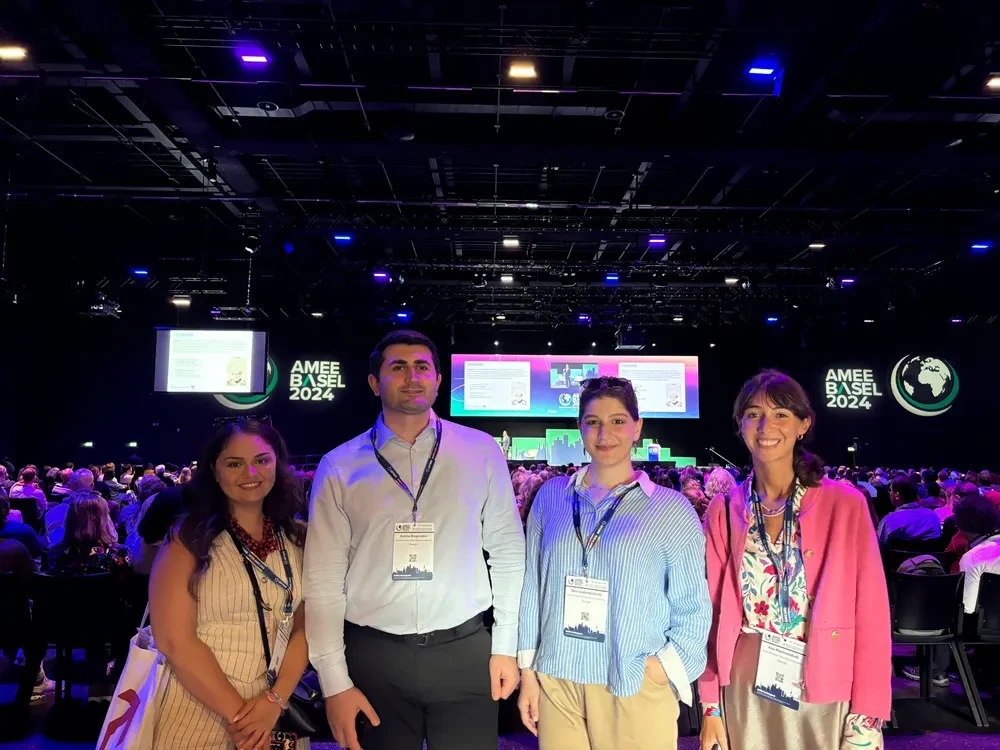
AMEE - 2024
AMEE - 2024

TMA representatives participated in one of the most significant events of the year, which was dedicated to medical education. This year, The International Association for Health Professions Education, AMEE 2024 conference (24.08 -28.08 ) was hosted in Basel, Switzerland, where the Academy presented three notable presentations:
- Exploring Perspectives on Death and Dying Among Final-Year Undergraduate Medical Students at Tbilisi Medical Academy, Georgia - Kakha Bregvadze, Coordinator of the Center of Innovations in Medical Education;
- Explore to Real and Virtual patients as professional perception and motivation for preclinical medical students - - Magda Tvildiani, Horizon Europe Grant Office Coordinator, and Dea Goderdzishvili, Medical Education and Research Specialist;
- Introducing GOTs (growth-oriented tests) – relative freedom with responsibility – Bidzina Chachkhiani, Deputy Head of the Quality Assurance Department, and Vakho Deisadze, Head of the Examination Centre.
In addition to these presentations, Academy representatives participated in workshops, attended plenary sessions, and visited exhibitions.
The conference, held under the theme "Connect, Grow, and Inspire," was attended by thousands of representatives from universities across more than 100 countries. It provided an excellent opportunity to explore the latest trends in international cooperation, professional development, and health education.
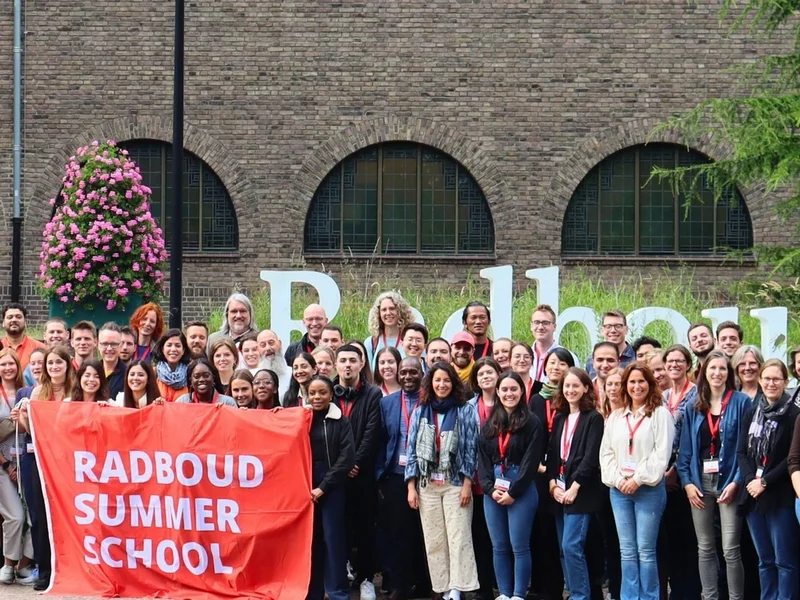
TMA Delegation to Radboud University
TMA Delegation to Radboud University

TMA consistently supports the professional development of academic and invited staff, focusing on enhancing learning-teaching, evaluation methods, and scientific research skills. For this purpose, TMA representatives Mariam Nikolashvili, Natia Garuchava, Mariam Gogadze, Ina Leshkasheli, and Tinatin Akhvlediani participated in short-term summer exchange programs hosted by Radboud University in Nijmegen, Netherlands.
As part of the Erasmus+ Staff Mobility program, the Academy representatives attended several training courses organized by Radboud University: SEM (Structural Equation Modeling); Excellence Beyond Borders: Breaking Down Barriers in Gifted Education; INSIGHTS: Integrating Sex and Gender in Health Sciences.
Participants in the exchange program were selected through an open competition conducted by the TMA selection commission and the International Department of Radboud University.
The program participants will share their experiences from the Netherlands with their colleagues at the Academy this fall.
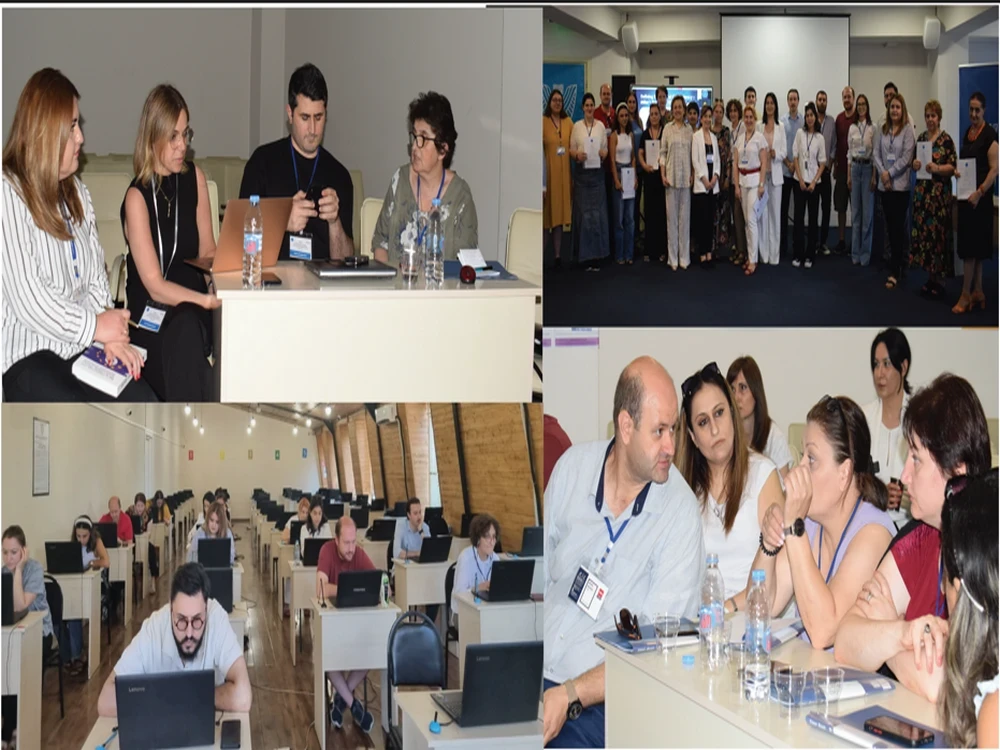
Training - "VOSCE (Virtual OSCE)"
Training - "VOSCE (Virtual OSCE)"

From 22.07 to 25.07.2024, TMA’s Faculty Development Department organized the training - "VOSCE (Virtual OSCE) - Digital Tool for Objective Structured Examination of Clinical Reasoning Skills of Medical Students."
The training was accredited by the European Accreditation Council for Continuing Medical Education (EACCME®) and awarded 17 CME credits.
During the 4-day training, TMA hosted 41 representatives (25 in person, 16 online) from 11 different universities, including Ilia State University, Tbilisi State University, Tbilisi State Medical University, University of Georgia, Alte University, Grigol Robakidze University, Georgian-American University, David Tvildiani University, Yerevan Traditional Medicine, Yerevan State University, and Kerala University (India).
The goal of the training/course was to introduce an objectively structured digital tool (Virtual OSCE/VOSCE) to assess the clinical reasoning ability of medical school/faculty students.
Within the framework of the 4-day training, the participants, along with familiarizing themselves with the theoretical material, had the opportunity to prepare tasks for the objectively structured clinical exam (OSCE) as a group and attend the relevant exams at TMA (VOSCE and OSCE). The training participants also had the opportunity to adapt to the role of a student and test themselves within the framework of the VOSCE.
The training course was prepared by TMA professors Ia Avaliani, Cisana Lomashvili, Akaki Sefashvili, Khatia Khatiashvili, Tatia Shotadze, and Berika Kiknadze.
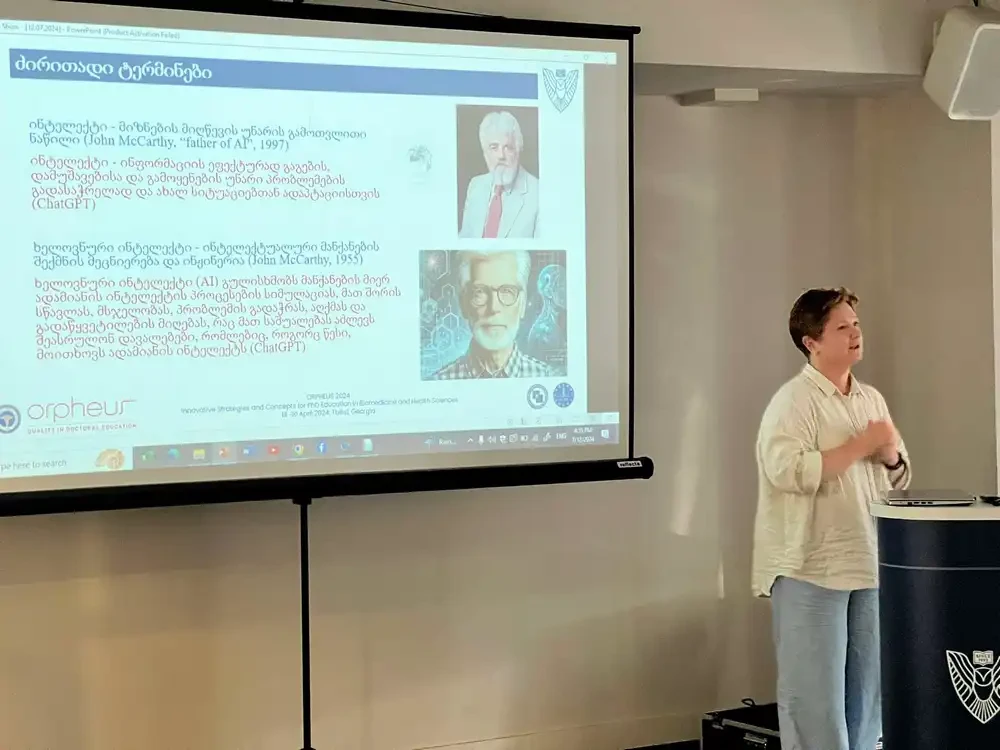
Artificial Intelligence in Higher Education
Artificial Intelligence in Higher Education

The Faculty Development and Research and the Doctoral Department of TMA organized a working meeting of the Journal Club. The Journal Club is one of the activities promoting the professional development of staff, where experts in the field discuss contemporary literature related to medical education methodology.
The current Journal Club meeting topic was "Artificial Intelligence in Higher Education: Opportunities and Challenges." Magda Tvildian, coordinator of the HORIZON EUROPE grant office, presented an article published in the journal “Medical Teacher” in 2023 titled "Ethical Use of Artificial Intelligence in Health Professions Education."
Eka Kldiashvili, head of the Research and Doctoral Department and a member of the group working on artificial intelligence at European universities, delivered a presentation reviewing artificial intelligence as an opportunity for the transformation of higher education. Meanwhile, Saba Iordanishvili, coordinator of students' scientific and research activities, and Saif Rustum, coordinator of international students, discussed how they utilize the capabilities of artificial intelligence in their daily practices.
At the end of the event, participants emphasized the need to continue dialogue with students and lecturers about artificial intelligence. They also highlighted the importance of lecturers' involvement in the club focused on this topic at TMA.
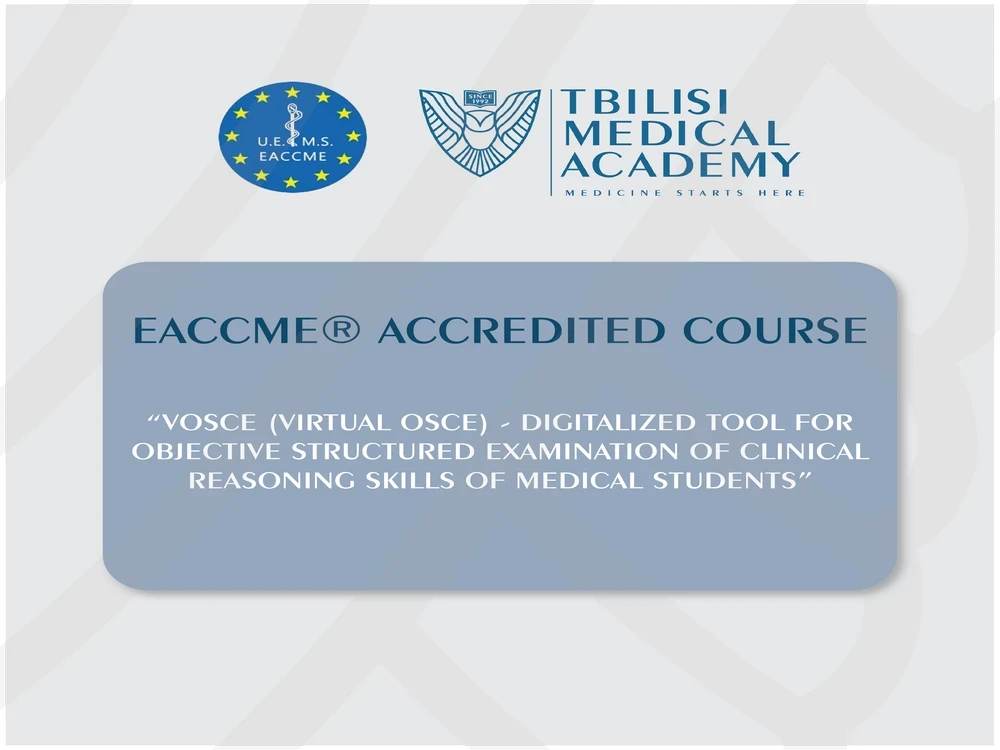
Enroll in an EACCME® Accredited Course
Enroll in an EACCME® Accredited Course

Enroll in an EACCME® Accredited Course
From 22.07-25.07.2024, Petre Shotadze Tbilisi Medical Academy (Georgia) will hold a 4-day training course “VOSCE (Virtual OSCE) - digitalized tool for Objective Structured Examination of Clinical Reasoning Skills of Medical Students”.
The training course has been accredited by the European Accreditation Council for Continuing Medical Education (EACCME®) with 17 European CME credits (ECMEC®s).
Who it’s for:
All medical specialists enrolled in undergraduate Medical Education (It is aimed at those who are new in medical education, it is also of value to more experienced educators who would like to deepen their understanding of educational principles of OSCE and VOSCE).
The Aim:
Introduction of objective structured digitalized tool for assessment of clinical reasoning skills of medical students.
Along with learning the theoretical material within the training, you will have the opportunity to prepare assignments for an objectively structured clinical exam as a group and also attend the relevant exams in the academy (VOSCE and OSCE).
The training course was prepared by professors (Specialists in Medical Education) of Petre Shotadze Tbilisi Medical Academy (TMA) according to the experience gained during the SAFEMED + project – Simulation in Undergraduate Medical Education for improvement of Safety and Quality of Patient Care, which was selected for funding by the European Union and highly regarded Erasmus + programmed in 2020. The aim of this project was – to improve the quality of medical education, modernization, and implementation of clinical skills in the curriculum.
After completing the training, you will receive a certificate with corresponding credit points.
Language of instruction: English.
Link for Registration -
https://docs.google.com/forms/d/e/1FAIpQLScSR10_Cmar_ELoXo-SgURYoxX_1fL-qD111heWq-Mhqqp1TA/viewform
Please see the detailed program of training on our web page https://tma.edu.ge/vosce
Attendance for participants from TMA partner universities is free.
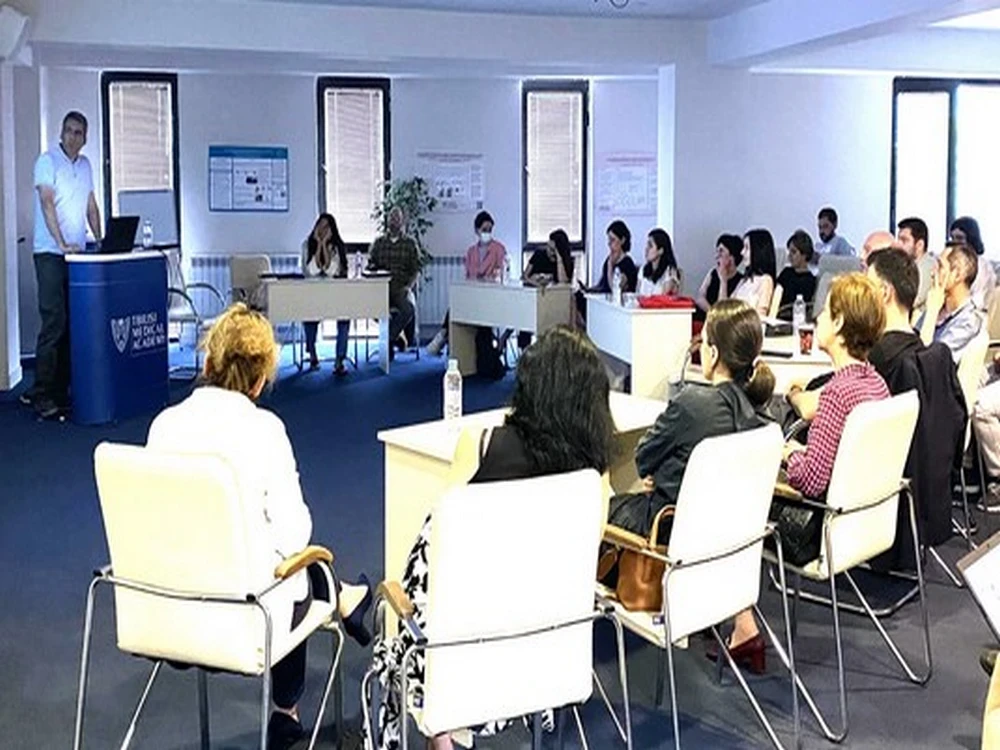
Training for Lecturers
Training for Lecturers

TMA constantly provides training for academic and invited lecturers in the methodology of Medical Education. This time, the training was held on the topic: "Feedback in medical education". Within the framework of the training, the participants got acquainted with the principles of effective feedback and relevant international recommendations. Also, the role and place of feedback in the educational program of TMA was discussed. Within the framework of the training, the participants were divided into groups and discussed the task (an example of feedback) provided by the trainer. The training was led by Natalia Kotchlashvili.
The next day of the training was devoted to the topic "Assessment in medical education, how to create a standard MCQ". The participants of the training had the opportunity to get acquainted with the international practice of creating MCQ tests and the recommendations guided by the Academy. During the meeting, the participants discussed several samples of good and bad tests. The training was led by the heads of the TMA examination center - Vakho Deisadze and Jimi Bregvadze.
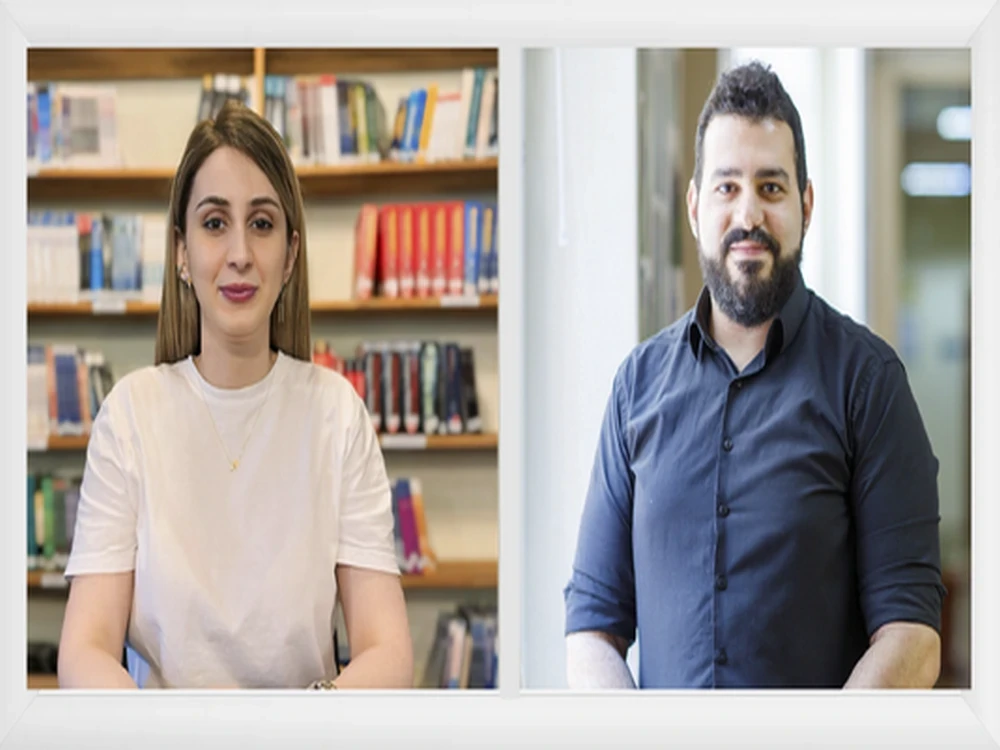
AMEE - The Status of the Specialist in Medical Education
AMEE - The Status of the Specialist in Medical Education

Two more representatives of TMA obtained the status of specialist in medical education.
Deputy to the Dean of the School of Medicine in the direction of relations with students Tinatin Akhvlediani and coordinator of international students Saif Rustum successfully completed four training courses organized by the Association for Medical Education in Europe (AMEE) and obtained the status of specialist in medical education.
Tbilisi Medical Academy continues to support the continuous professional development of staff in the direction of medical education methodology. Accordingly, the training courses ESME - "Essential Skills in Medical Education" offered by AMEE are a step forward in this direction. For TMA, it is most important for integration into the European educational space.
The training courses were organized by AMEE's regional representative office in Georgia.
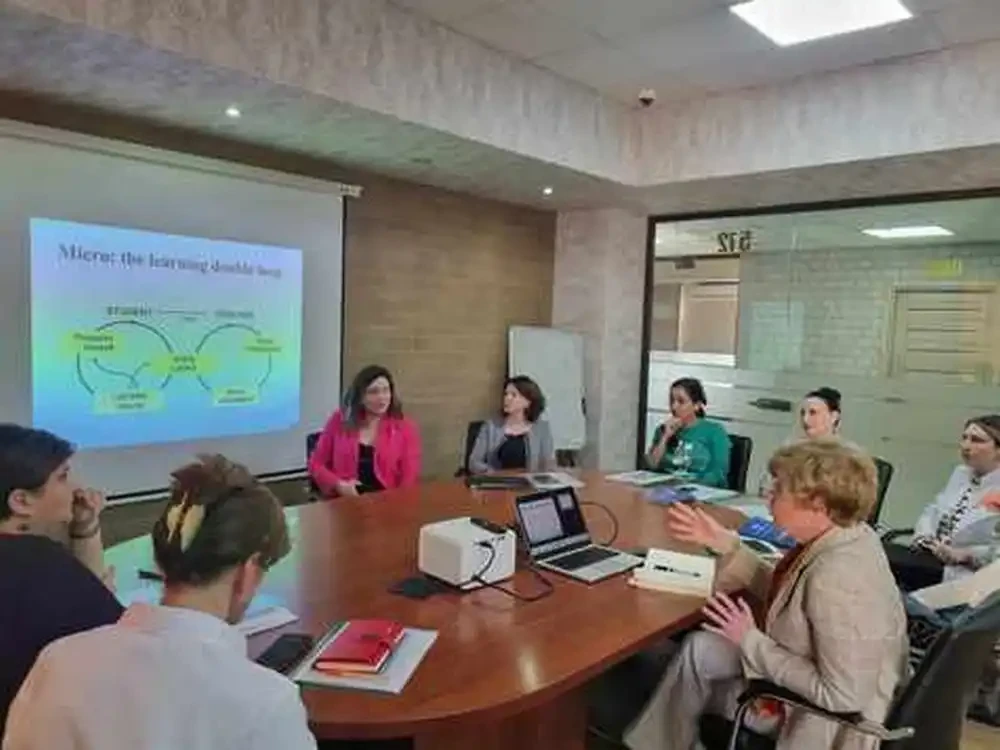
Trainings for Providers of Clinical Training Courses
Trainings for Providers of Clinical Training Courses

To improve the quality of teaching and assessment at the clinical stage, in the period of April-June, trainings were held for the teachers of clinical courses on the topic – teaching/learning activities and assessment in clinical courses.
In order to maximize the support of lecturers involved in clinical courses and to bring them closer to the learning environment, trainings were held in clinics.
The meetings were chaired by the head of the Center of Innovation in Medical Education, Professor Jossete Denekens, and the head of the educational program in the direction of clinical training - Nino Kekenadze.
Within the framework of the meeting, the clinicians got acquainted with the innovations already introduced in the educational program of the TMA, the concept of clinical reasoning, the principles of effective feedback, modern methods of assessment in clinical courses, some of which are already implemented as a pilot in the educational program of the TMA.
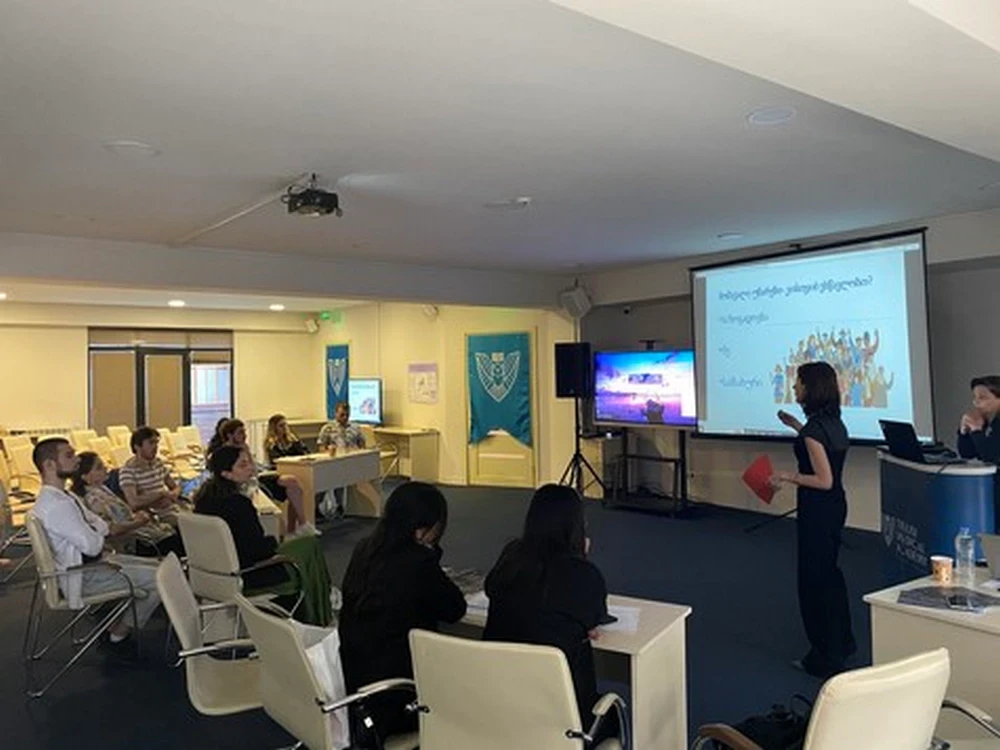
Tutoring Program
Tutoring Program

Another training was held for the new stream of students involved in the tutor training program at TMA. The two-day training was organized by the faculty development department of TMA and the developers of the peer tutoring program. The program was developed based on international experience.
International student coordinator Saif Rustum spoke to the students participating in the training about the importance of the tutor training program, and Maka Maglakelidze, the head of the Institutional Culture Development Department, presented the TMA mission to the participants in an interactive format and gave them the opportunity to express their opinions.
With the help of TMA faculty members - Tsisana Lomashvili, Ia Khakhutaishvili, Natalia Kotchlashvili, and Saba Iordanishvili, the tutors learned about the TMA educational program, active teaching methods, principles of academic integrity, how to effectively communicate with students, which techniques they can use to create a comfortable learning environment, how to give effective feedback, etc.
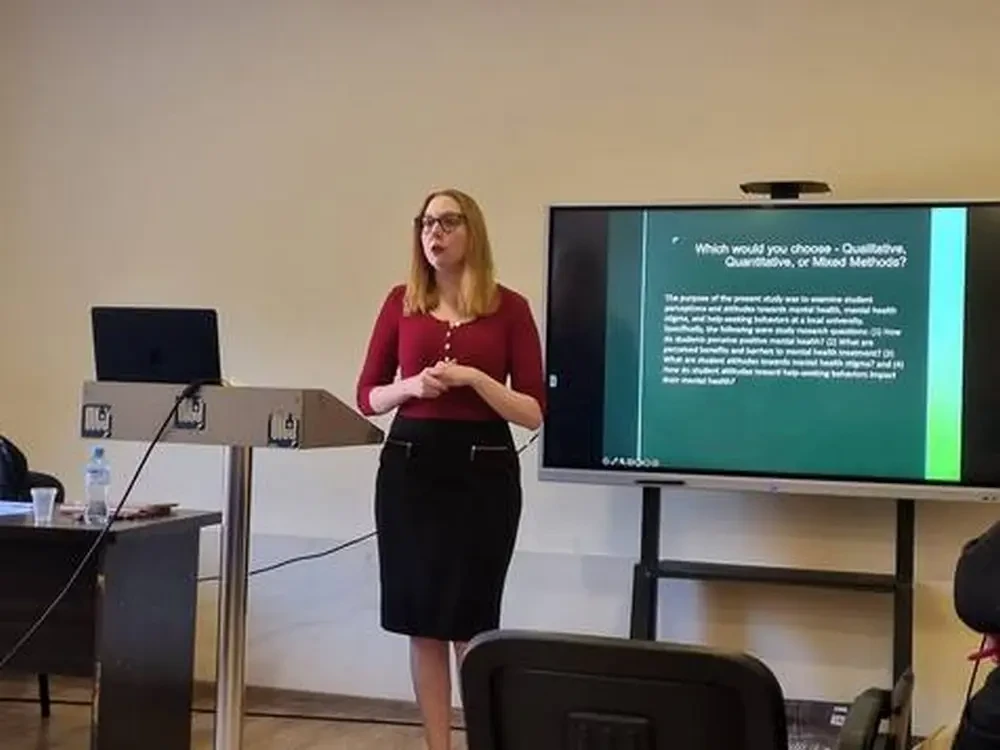
Research Skills Development
Research Skills Development

TMA’s Scientific Research and Doctorate Department and Faculty Development Department organized trainings for academic and invited lecturers. The training entitled " Research Skills Development" was led by Michelle Burbage, Head of Global Health at the University of Cincinnati (USA).
Seven days of training were held within the framework of the Fulbright Specialist program. During this week, TMA academics and invited staff were given the opportunity to familiarize themselves with the principles of data collection, research methodology, literature review, ethics, and research paper presentation.
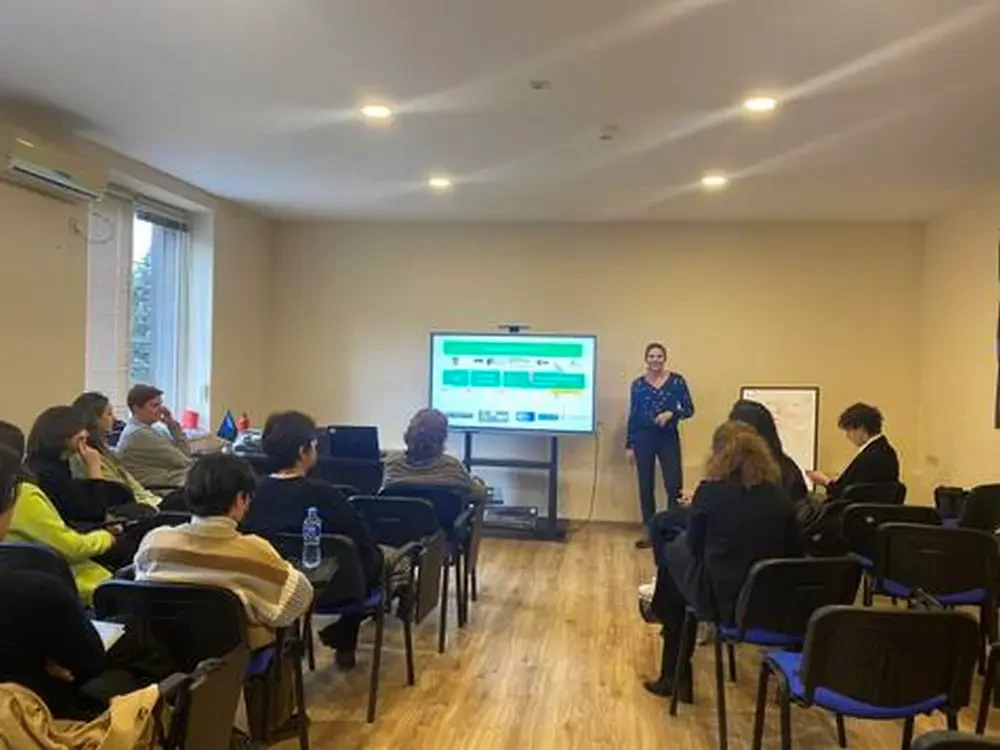
Professor of Sorbonne University in TMA
Professor of Sorbonne University in TMA

TMA hosted Mathilde Lescat, associate professor of Université Sorbonne Paris Nord
(France) and, member of the Board of Directors of the French Association of Microbiologists.The guest held working meetings with TMA faculty members and students. She introduced the peculiarities of teaching microbiology to the Georgian audience on the example of France and talked about the importance of educational games.
Mathilde Lescat shared her research experience with faculty members, with a particular focus on the study of factors that regulate Escherichia coli colonization at the level of the digestive tract.
Within the framework of the visit, a meeting was held with the head of the scientific-research and doctoral department, where the parties discussed the possibilities of further research cooperation.
In addition, Matilda Lescat conducted the educational game Bacteria Game for the students of the Academy.
The collaboration between TMA and Mathilde Lescat was launched at the AMEE-2022 conference in Lyon. Based on the experience gained within the cooperation, the abstract - Effect of "Bacteria Game" on Consolidation of Knowledge in Medical Bacteriology and antibiotic therapy from the Perspective of medical students" was presented at the AMEE 2023 conference in Glasgow (Great Britain).
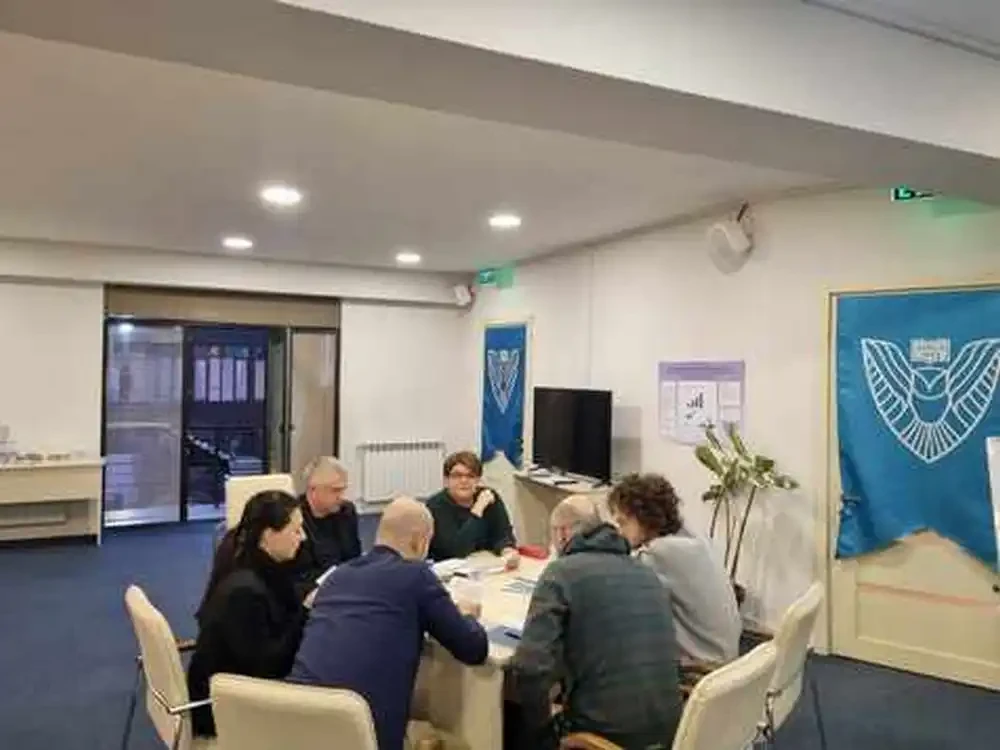
Training for new lecturers of TMA
Training for new lecturers of TMA

Orientation meetings were held for new lecturers of TMA. Training was held for the participants of the meeting on the topic: Basic Principles of Medical Education Methodology. In an interactive format, the lecturers got acquainted with the essence of Competency-Based Medical Education, student-oriented learning, and active learning methods. Also, they took part in the exercises, the purpose of which was to get acquainted with the rights and duties of the teacher involved in modern medical education.
Within the framework of the meeting, in order to familiarize the new lecturers with the mission, the head of the Institutional Culture Development Department of TMA, Maka Maglakelidze, conducted the meeting interactively, allowing the participants to express their opinions freely.
The participants of the meeting got acquainted with the directions of the strategic development of the Academy, the educational program, library resources, and the electronic management system. They also had the opportunity to visit the educational infrastructure of TMA, the clinical skills center, the anatomage, and the teaching-research laboratory.
After the meetings, participants were tasked with creating a self-reflection of the training.
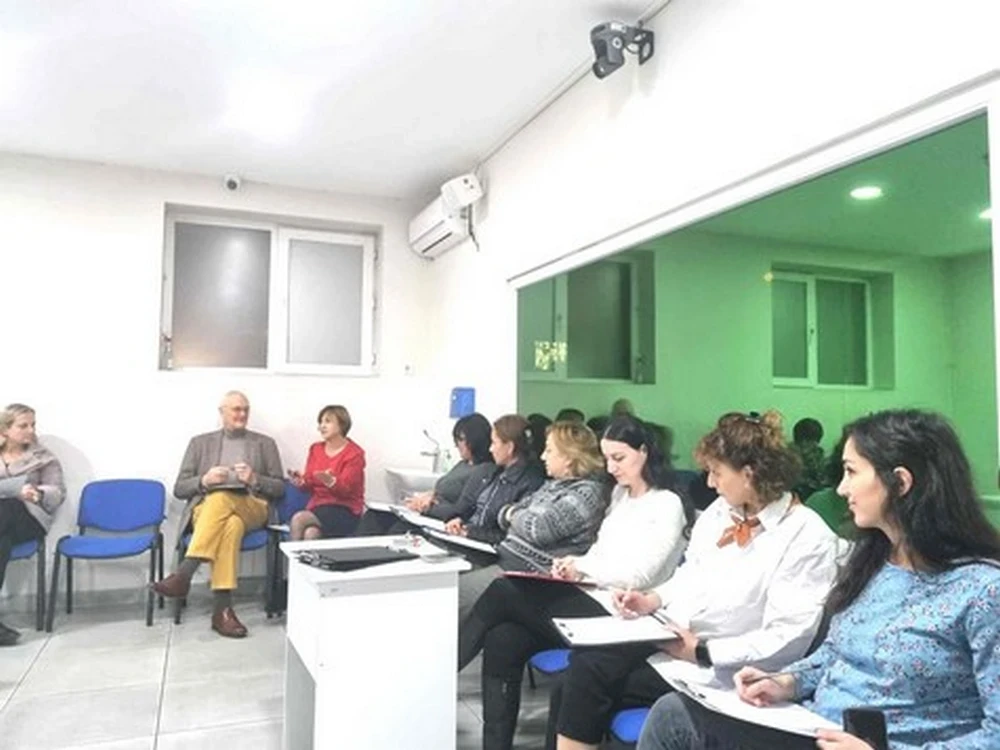
Meeting with Portfolio Mentors
Meeting with Portfolio Mentors

Another working meeting was held with the portfolio mentors organized by the faculty development department of the TMA.
During the meeting, the mentors discussed the challenges in the portfolio and shared their experiences in this direction. The mentors participated in an Objective Structured Teaching Exercise (OSTE) aimed at developing portfolio mentors' skills in providing effective feedback to students.
The mentors had the opportunity to observe the simulated individual meeting of the standardized student and the mentor within the mentioned exercise and express an opinion (debriefing) about the feedback given by the mentor within the mentioned simulation scenario. During the brainstorming/debriefing, the mentors used the effective feedback evaluation sheet developed by the Faculty Development Department.
A similar Objective Structured Teaching Exercise (OSTE) was also used in the training of clinical course providers by CIMED leaders, where trainees observed a simulated standardized student-clinician encounter and then provided feedback to a colleague via a pre-designed evaluation sheet. In order to be more similar to the work environment, the aforementioned OSTE was held in the clinical-skills center of the academy, where during the debriefing, the participants of the meeting also had the opportunity to watch the video recording of the simulation meeting to concentrate more on the details.
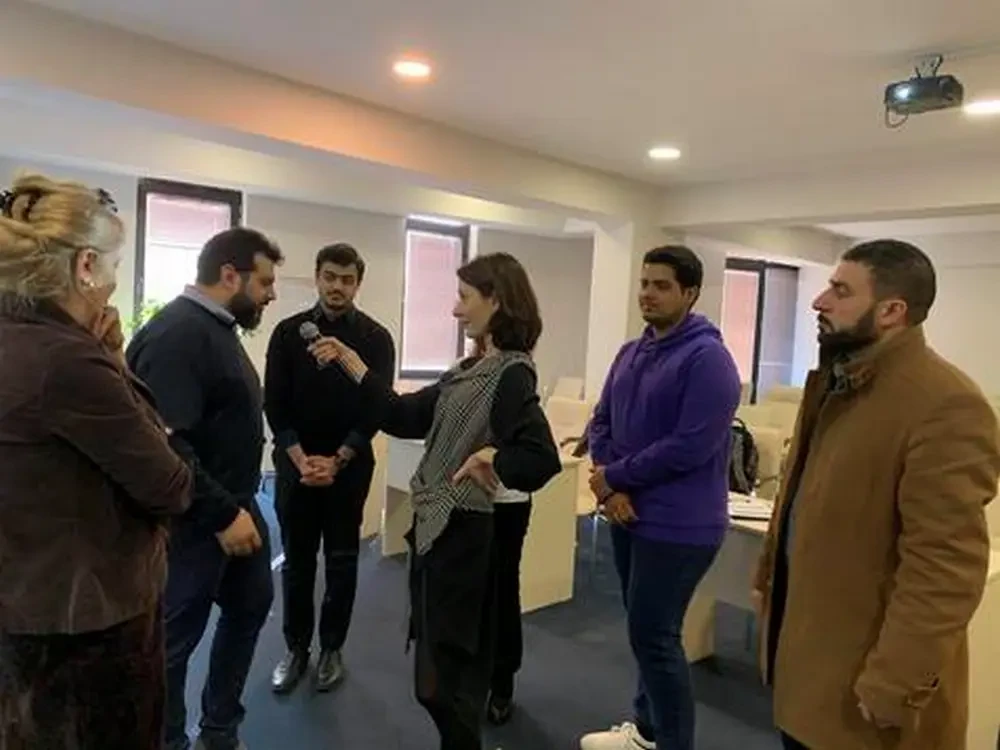
Training of Tutors
Training of Tutors

In TMA, trainings were held for students involved in the peer to peer tutoring program education program. The two-day training was organized by TMA's Faculty Development Department and the developers of the peer tutoring program. The program was developed based on international experience.
International student coordinator Saif Rustum spoke to the students participating in the training about the importance of the peer education program, and Maka Maglakelidze, the head of the Institutional Culture Development Department, presented the TMA mission to the participants in an interactive format and gave them the opportunity to express their opinions.
During the training, the tutors got acquainted with the educational program of TMA, active teaching methods, techniques of working in small groups, and principles of academic integrity.
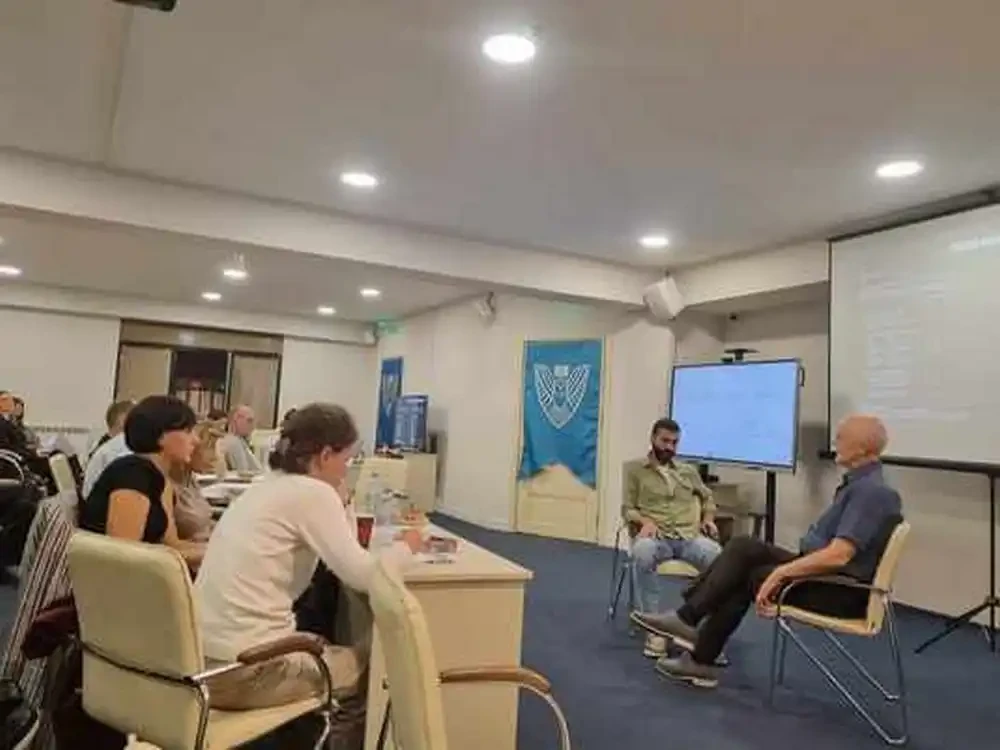
Training Week in TMA
Training Week in TMA

TMA hosted the heads of the Curriculum Innovations in Medical Education Department (CIMED) Professor Jossete Denekens and Professor Herman Van Rossum (Antwerp / Belgium). Within the framework of the working visit, the professors met with the representatives of the administration, and the heads of the program, received information about the innovations already introduced in the educational program, and outlined plans. CIMED leaders attended the Case-Based Clinical Reasoning (CBCR) session and gave feedback to the students and lecturers.
During the visit, training sessions were held for the tutors of the clinical reasoning session, where the cases to be presented to the students were discussed. Also, they discussed assessment methods. The training was also held for new teachers - "Basic Principles of Medical Education Methodology", where after the mini-lecture, the lecturers were divided into groups and jointly wrote out the learning outcomes - teaching method and assessment method according to the task received from the trainers. After the role-play "Student-Patient" (anamnesis gathering) the participants had the opportunity to give feedback to the "Student" and then listen to the opinion of the trainers.
The working visit week also included training for portfolio mentors, where after a mini-lecture by Josette Denekens - "Why reflection is important", the mentors divided into groups discussed the (anonymous) self-analysis of one of the students provided by the trainers and discussed what kind of feedback would be most effective in this case.
The last meeting of the week was devoted to the training "Entrusted Professional Activity" (EPA), where CIMED leaders introduced the theoretical aspects of EPA to the participants, examples of world experience, and then, together with the head of the program, Nino Kekenadze, presented the plan for the implementation of EPA in pilot mode to the participants. After the role-play "Student-Patient" (anamnesis collection) was conducted as part of the training, the participants had the opportunity to give feedback to the "Student" through a pre-designed evaluation sheet.
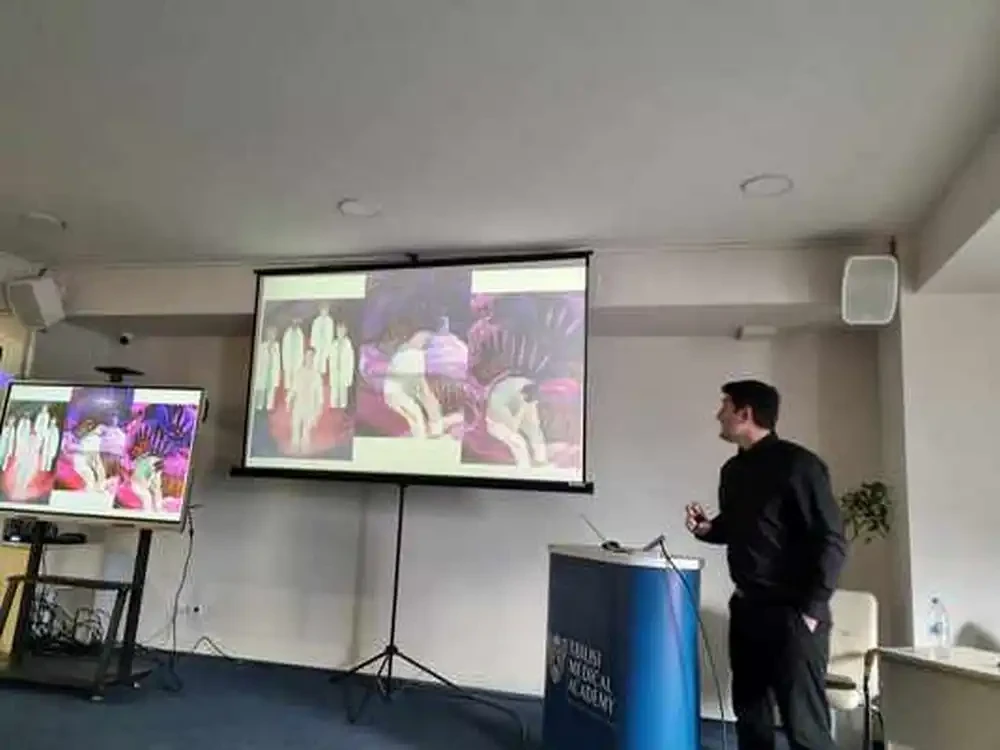
Sharing Experience
Sharing Experience

The academic staff of TMA participated in the conference organized by the International Association for Medical Education in Europe - AMEE 2023. In order to share the experience gained in the conference, a working meeting was held at TMA.
The head of the MD program Tsisana Lomashvili, the Head of the Quality Assurance Department Nino Sikharulidze, the deputy head of the Quality Assurance Department Bidzina Chachkhiani, Head of the Faculty Development Department Maka Zarnadze, and the lecturer of immunology Kakha Bregvadze, shared the experience gained at the scientific conferences with their colleagues and talked about the importance of TMA in international events of this type.
The meeting was attended by representatives of the Academy's administration, academics, and invited staff. Within the framework of the workshops, the participants had the opportunity to discuss and share news, experiences, challenges, and opportunities in terms of the development of medical education, the promotion of the professional development of teachers, and the development of further international relations.
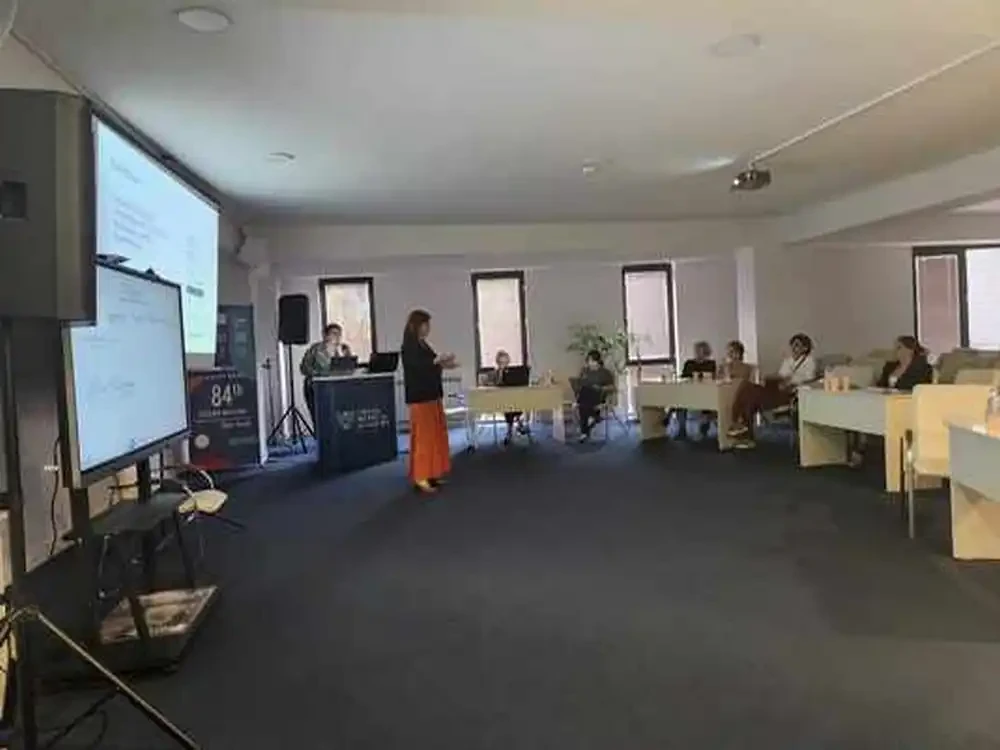
Trainings for new lecturers
Trainings for new lecturers

Tbilisi Medical Academy hosted orientation meetings for new lecturers. The training was held on the topic: introduction to the methodology of medical education, and basic principles of presentation organization.
Within the framework of the meeting, the new lecturers got acquainted with the history, mission, directions of strategic development, educational program, library resources, and electronic management system of the Academy. They also had the opportunity to visit the educational infrastructure of the TMA, the Clinical Skills Center, the Anatomage Table, and the Teaching-Research Laboratory.
At the end of the meeting, the Dean of the School of Medicine Lali Mekokishvili, and the heads of the program answered all the questions of the new lecturers.
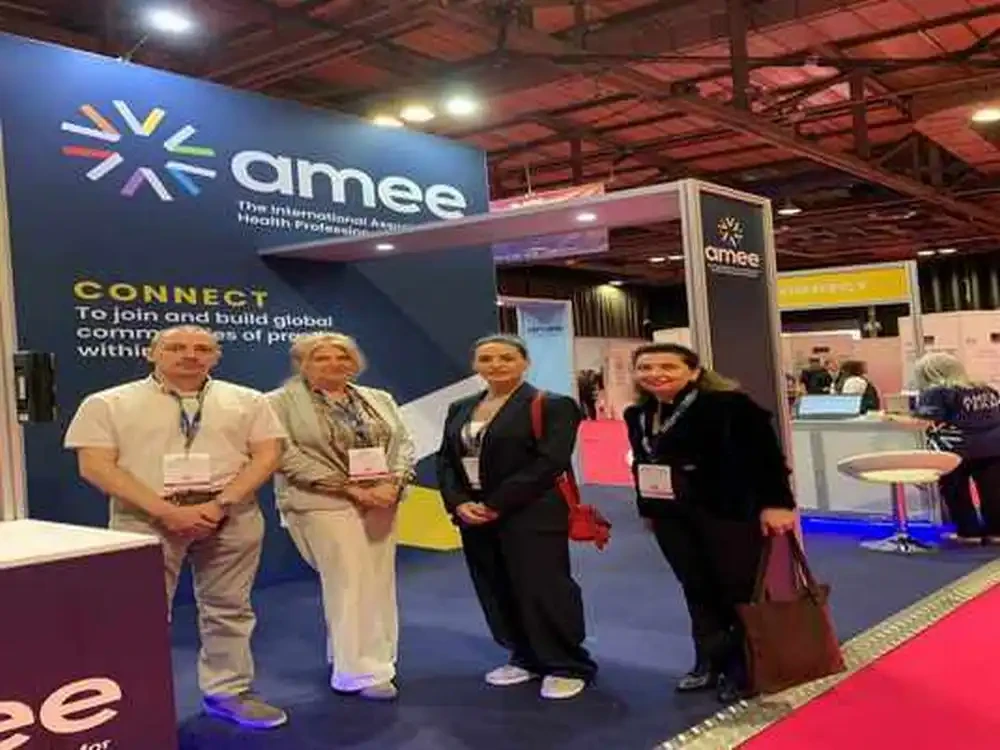
AMEE Annual Conference
AMEE Annual Conference

AMEE 2023 conference was hosted by Glasgow (Scotland). The 7th International Conference on Faculty Development in the Health Professions also took place in conjunction with AMEE 2023.
Tbilisi Medical Academy was a part of both conferences. Representatives of the Academy were at the conferences - Tsisana Lomashvili (Head of the MD program), Nino Sikharulidze (Head of the Quality Assurance Department) Bidzina Chachkhiani (Deputy Head of the Quality Assurance Department), Maka Zarnadze (Head of Faculty Development Department), Kakha Bregvadze (Programme Development Department).
Academy representatives had oral presentations and e-posters. Nino Sikharulidze and Maka Zarnadze had oral presentations. Kakha Bregvadze had e-poster.
Maka Zarnadze
Effect of "Bacteria Game" on consolidation of knowledge in medical bacteriology and antibiotic therapy from the perspective of medical students
Mathilde Lescat - Université Sorbonne Paris Nord (Paris, France);
Manana Loladze, Saif Rustum, Tsisana Lomashvili, Dea Goderdzishvili, Magda Tvildiani -
Petre Shotadze Tbilisi Medical Academy (Tbilisi, Georgia).
Nino Sikharulidze
Impact of COVID-19 and lockdown-related mental health issues on learning performance in medical education
Bidzina Chachkhiani, Salome khubulava - Petre Shotadze Tbilisi Medical Academy (Tbilisi, Georgia);
N. Katrien Hargreivs - Tbilisi State Medical University (Tbilisi, Georgia).
Kakha Bregvadze
The Faculty Mentors’ Perceptions Towards Portfolio in Undergraduate Medical Curriculum at Tbilisi Medical Academy in Georgia - Petre Shotadze Tbilisi Medical Academy (Tbilisi, Georgia).
The biggest event on the calendar of Medical Educators of the world each year is AMEE annual conference. Professionals and educators from around the world and from all healthcare sectors come together to hear and see new developments and techniques firsthand, discuss ideas - network and collaborate, get involved in hands-on workshops, and gain resources to help achieve excellence in their working environment.
Each year AMEE annual conference brings together professionals, educators, students, institutions, and organizations from a broad variety of healthcare sectors, to share, collaborate, and network. Addressing and showcasing the latest developments and practices in healthcare professions education and beyond, the annual AMEE conference is a chance to make connections, learn new approaches, and get involved in the development of our sector.
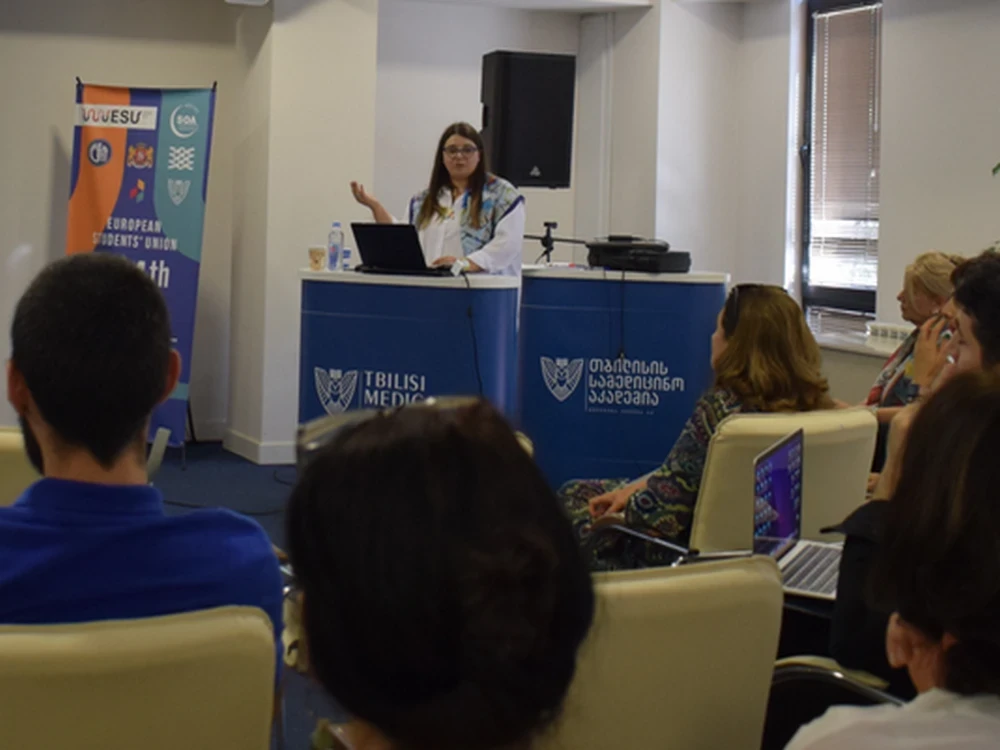
Educational Event
Educational Event

How do we increase students' motivation for independent learning? Tbilisi Medical Academy hosted an interactive meeting to share the innovations in the methodology of medical education. TMA lecturers gathered at an educational event to share their own experiences.
At the meeting, TMA lecturers - Manana Loladze, Ia Khakhutaishvili, Nanuka Tsiklauri, and Ia Khurtsilava reviewed the guidelines of the Association for Medical Education in Europe (AMEE) and the latest research published in the journal “Medical Teacher” in the direction of increasing student motivation and developing independent learning skills.
Speakers discussed the following topics: Motivation in Medical Education (AMEE Guide N115), Concept mapping: An aid to teaching and learning (journal “Medical Teacher”), Twelve tips for teaching neuroanatomy from the medical student's perspective (Journal “Medical Teacher”), Independent Learning and Study Skills (Practical Guide for Medical Teachers).
Along with sharing their international experience, attendees talked about how they try to increase students' motivation for independent learning within their teaching courses. The topic of the meeting was based on the results of the satisfaction survey of the staff involved in the implementation of the program and the student survey.
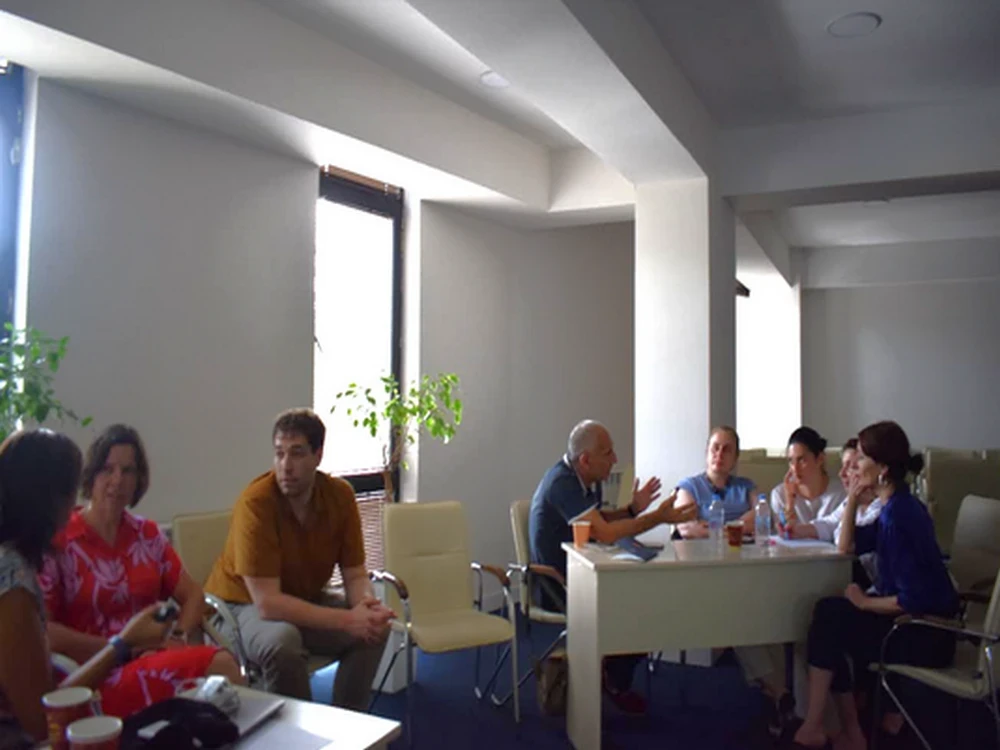
Delegation of Antwerp University at TMA
Delegation of Antwerp University at TMA

Within the framework of Erasmus+ Staff Mobility, Tbilisi Medical Academy (TMA) hosted a delegation from Antwerp University. Workshops and trainings were held for TMA academic and visiting staff on the following topics: Assessment in Medical Education, Workplace Based Assessment (WPBA), peer teaching, and training of trainers.
The meetings were chaired by Nelle Michel - Professor of the University of Antwerp, President of European Academy of Teachers in General Practice (EURACT), Board Member of the Educational Council at the Faculty of Medicine and Health Sciences at the University of Antwerp, Christine van den Bogerd, Communication Skills Trainer, and an Education Coordinator at the University of Antwerp, and Christoph Schotters - Coordinator of the Clinical Skills Center.
Within the framework of the training, the guests introduced the experience both from the University of Antwerp and from the international of teaching in the clinical environment, assessment methods, and feedback mechanisms to the TMA lecturers through presentations, group assignments, and role-plays. Also, in the framework of the meetings were discussed the importance of peer teaching, ways to train trainers, and the need to create a learning environment.
The working meetings held in TMA were preceded by the visit of representatives of the Academy Ia Avaliani, Nino Kekenadze, and Tamar Shotadze to Antwerp, during which the representatives of the Academy had the opportunity to observe the progress of the Objective Structured Clinical Examination (OSCE), the work of Belgian colleagues in the Clinical Skills Center and also at the clinical stage teaching.
TMA representatives also had meetings with the International Department of the University of Antwerp, where they discussed the possibilities of further cooperation between the universities.
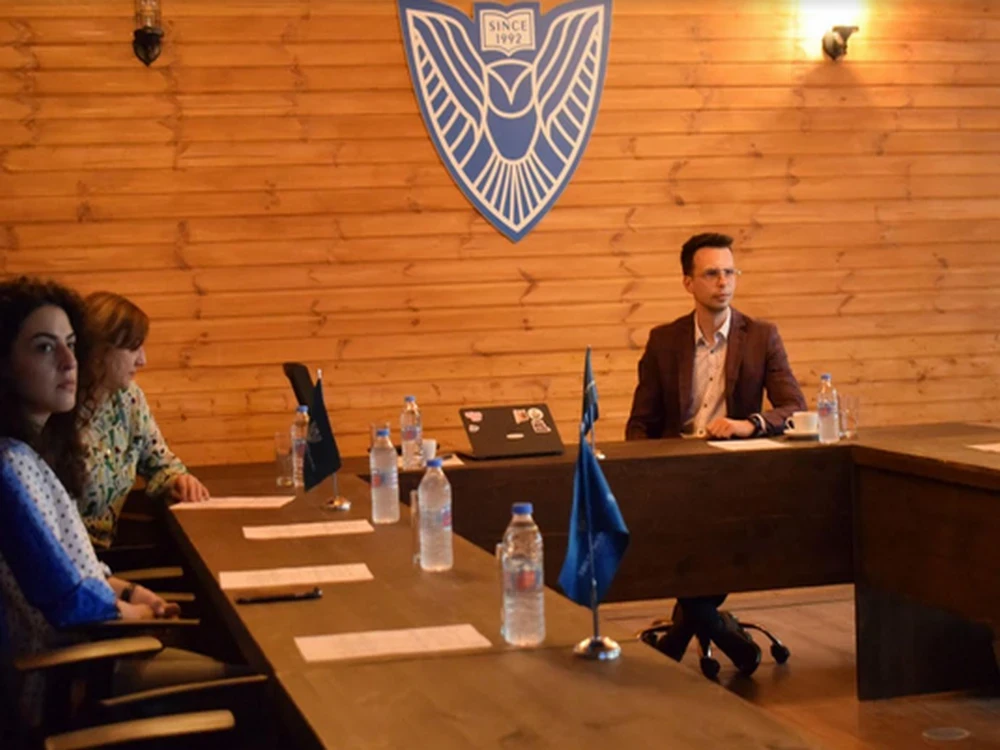
Delegation of Medical University of Lodz to TMA
Delegation of Medical University of Lodz to TMA

Within the framework of the Erasmus+ Staff Mobility program, Tbilisi Medical Academy (TMA) hosted a delegation from Medical University of Lodz (Poland). Representatives of Medical University of Lodz, Center of Medical Education Łukasz Adamus Karolina Jeziorek, Michał Bartczak the head of Department of Rehabilitation, of the Faculty of Medicine Maria Staniszewska were on a working visit to TMA.
The purpose of the visit was to exchange teaching practices and content regarding teaching medical and academic professionalism and communication skills to medical students. Also, getting to know the peculiarities of the stage of clinical training, especially rehabilitation training, and gaining experience of clinical work in an international environment. In addition, the workshops were focused on deepening cooperation between the universities.
Within the framework of the visit, the Polish guests met with the representatives of the TMA administration, talked about the activities promoting the development of the faculty at the University of Lodz and the TMA and the possibilities of further cooperation. In addition, the invited guests together with TMA lecturer Natalia Kotchlashvili conducted seminars for first and second year students on the topic “What is Medical Professionalism?”.
Workshops were also held with the lecturers implementing the rehabilitation training course, Teona Shavshishvili and Davit Gurgenidze. Within the framework of the workshop, the parties reviewed the features of clinical training, including rehabilitation, in Georgia and Poland.
Maria Staniszewska also attended seminars in rehabilitation, participated in patient counseling and gave a lecture to students on " Nonpharmacological methods of pain reduction”.
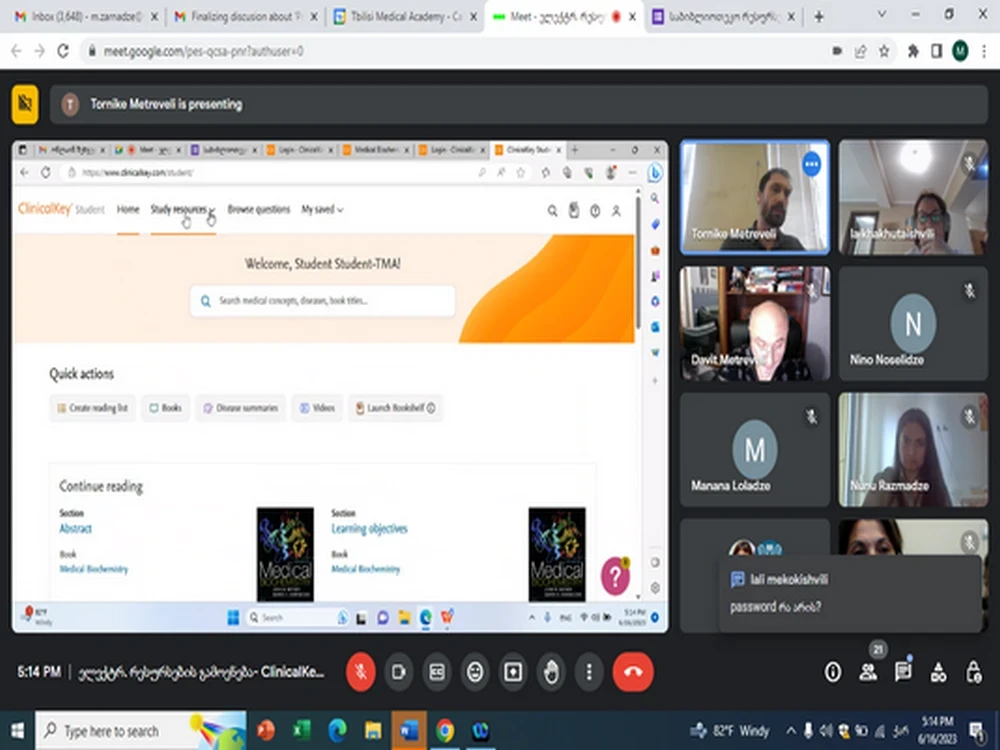
Training about Clinical Key Student
Training about Clinical Key Student

Online training was conducted for lecturers regarding the use of ClinicalKey Student. The meeting was led by Tornike Metreveli, the representative of the scientific research department of TMA.
The purpose of the training was to present the main aspects of the ClinicalKey Student resource created by Elsevier and its practical use to academic and invited staff.
Within the framework of the meeting, the participants had the opportunity to test the possibility of the electronic resource in accordance with their study course.
After the meeting, participants were sent instructions for using the ClinicalKey Student platform.
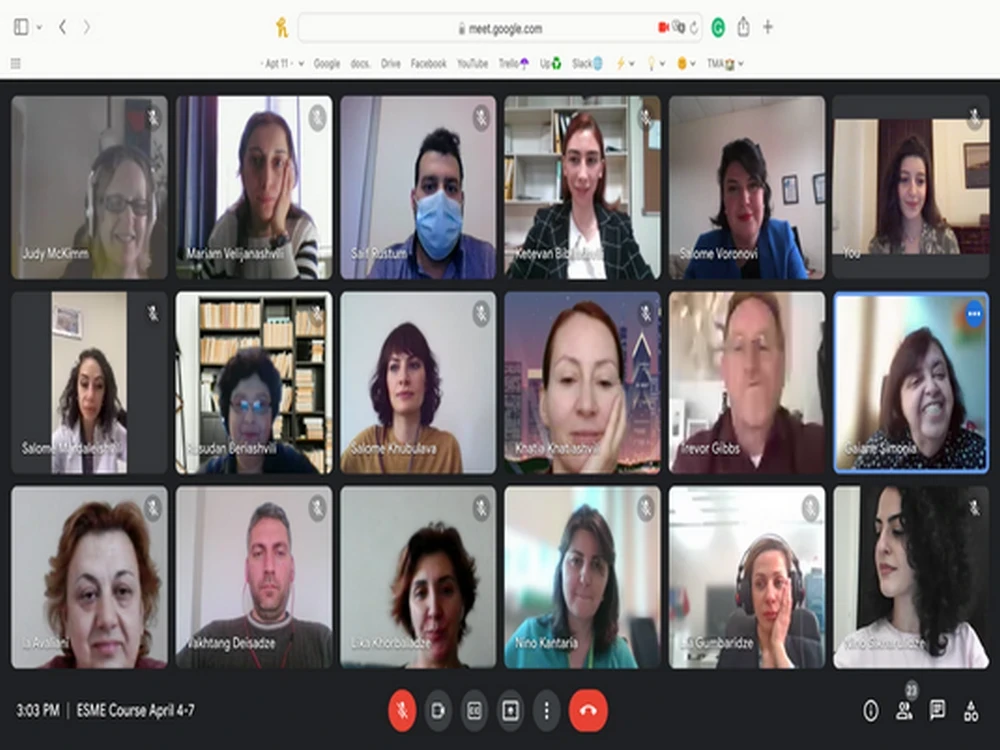
AMEE - The Status of the Specialist in Medical Education
AMEE - The Status of the Specialist in Medical Education

Tbilisi Medical Academy (TMA) continues to support the continuous professional development of staff in the direction of medical education methodology. Three more representatives of TMA, the head of the Quality Assurance Department Nino Sikharulidze, a member of the Curriculum Committee, Assistant Professor of the Department of Anatomy and Histology Salome Khubulava, and a member of the Faculty Development Department Dea Goderdzishvili successfully completed four training courses organized by the Association for Medical Education in Europe (AMEE) and obtained the status of a medical education specialist.
The ESME - "Essential Skills in Medical Education" training courses offered by AMEE are a step forward in this direction. And for TMA, it is important for integration in the European educational space.
"The training courses were organized by AMEE's regional representative office in Georgia.
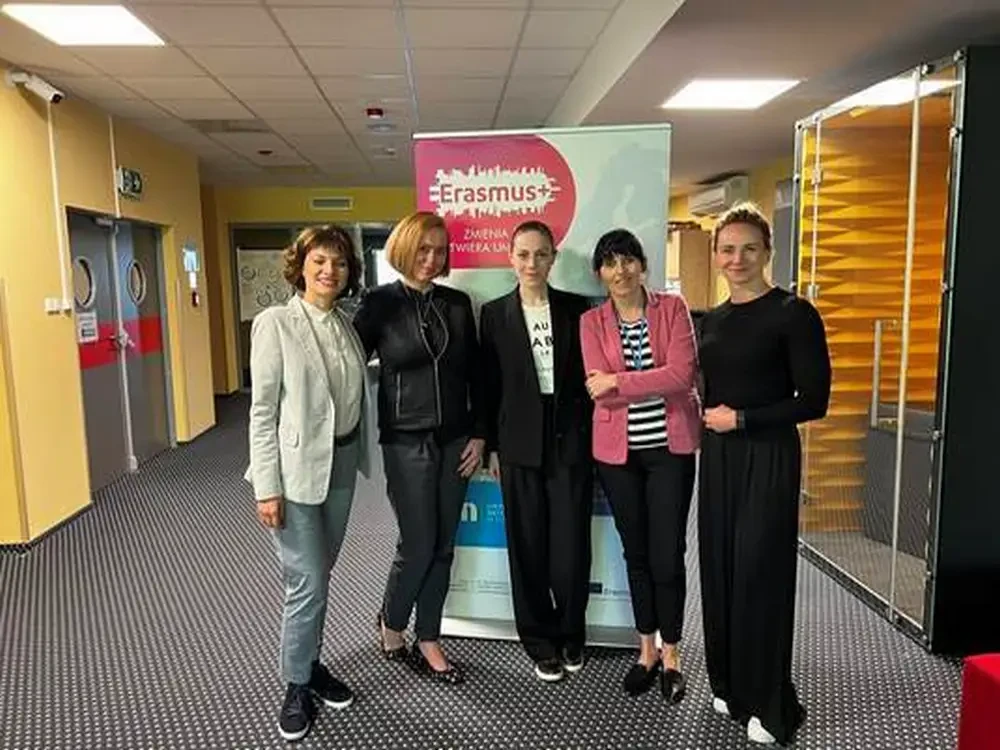
Erasmus+ Staff Mobility
Erasmus+ Staff Mobility

Within frames of Erasmus+ Staff Mobility Programme, members of TMA staff, Natalia Kotchlashvili (International Affairs Department) and Salome Khubulava (Department of Histology, Cytology and Embryology) visited Lodz Medical University, in order to enhance current cooperation. TMA staff members had an opportunities to visit and actively participate in the activities of Medical Simulations Centre and Department for Histology, Cytology and Embryology.
Throughout the visit, meetings were organised with the managers of International Department, Centre for Medical Education, Scientific-Research Department and Doctorate School, where parties discussed potential areas of prospective cooperation and established grounds for joint activities.
In result, parties agreed to organising student mobility programmes in the nearest future in terms of both study and clinical internship opportunities. Further cooperation opportunities will involve joint scientific, research and transdisciplinary activities.
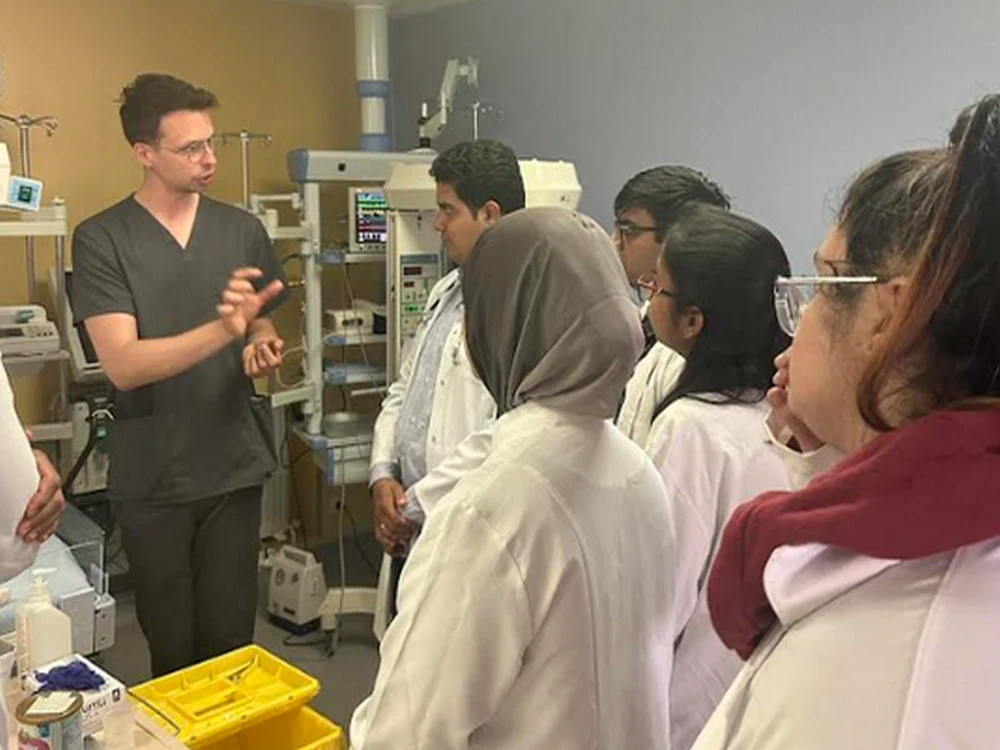
Polish Pediatrician's visit at TMA
Polish Pediatrician's visit at TMA

Within the Erasmus+ Staff Mobility program, TMA hosted Jakub Nowicki, a pediatrician of the Faculty of Medicine and the Department of Neonatal Pathology and Pathology of the Bone and Joint System from Lodz Medical University (Poland).
The purpose of the working visit was to get acquainted with the peculiarities of clinical teaching, especially the pediatric stage, and to gain experience in clinical work in an international environment.
Jakub Nowicki met with the representatives of the TMA administration and the lecturers implementing the pediatric training course. Within the framework of the workshop, the parties reviewed the features of clinical education (especially pediatrics) in Georgia and Poland.
The guest also attended seminars in pediatrics, participated in the consultation of a pediatric patient, and learned about the peculiarities of pediatric practice in Georgia.
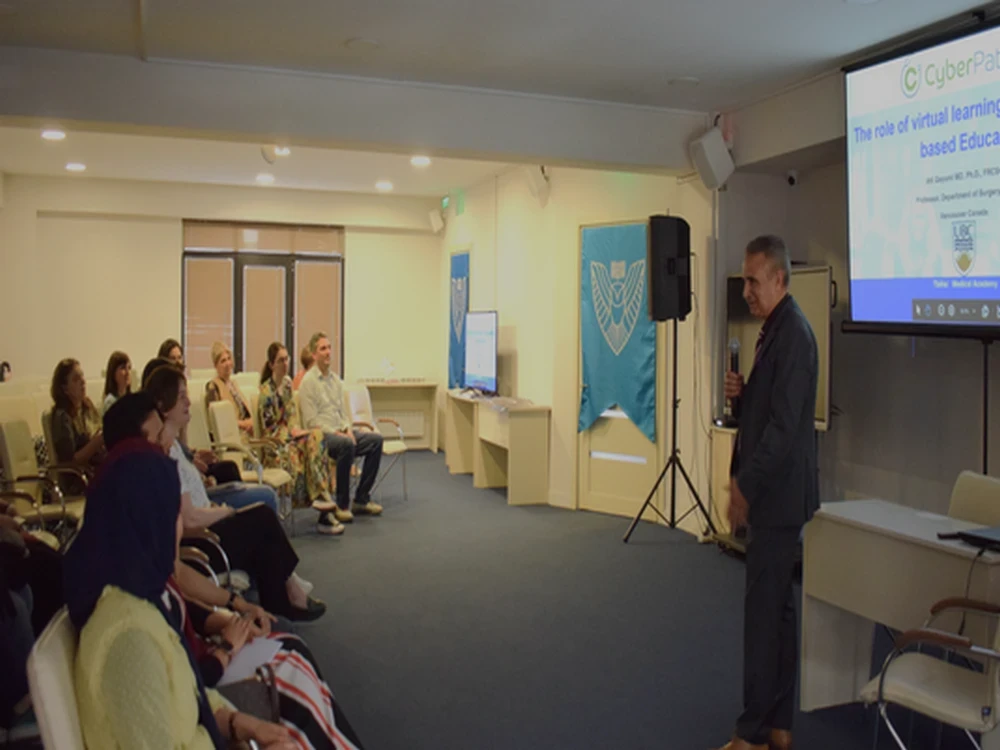
CyberPatient Founder’s visit to TMA
CyberPatient Founder’s visit to TMA

Since 2021, Tbilisi Medical Academy cooperates with the company CyberPatient in the field of simulation learning. Within the framework of this partnership, in May 2023, Tbilisi Medical Academy hosted Dr. Karim Qayumi, the founder of the simulation platform CyberPatient. Professor of Surgery of British Columbia University and an expert of medical education, Professor Qayumi shared his knowledge and experience on simulation learning to TMA faculty and students. During an interactive meeting Professor Karim Qayumi shared insights on "The importance of simulation learning for competency based education".
The simulation platform CyberPatient is an effective possibility for mastering of diagnostical, clinical and treatment skills. By review of more than 100 simulation cases of difference medical fields students can practically apply their theoretical knowledge.
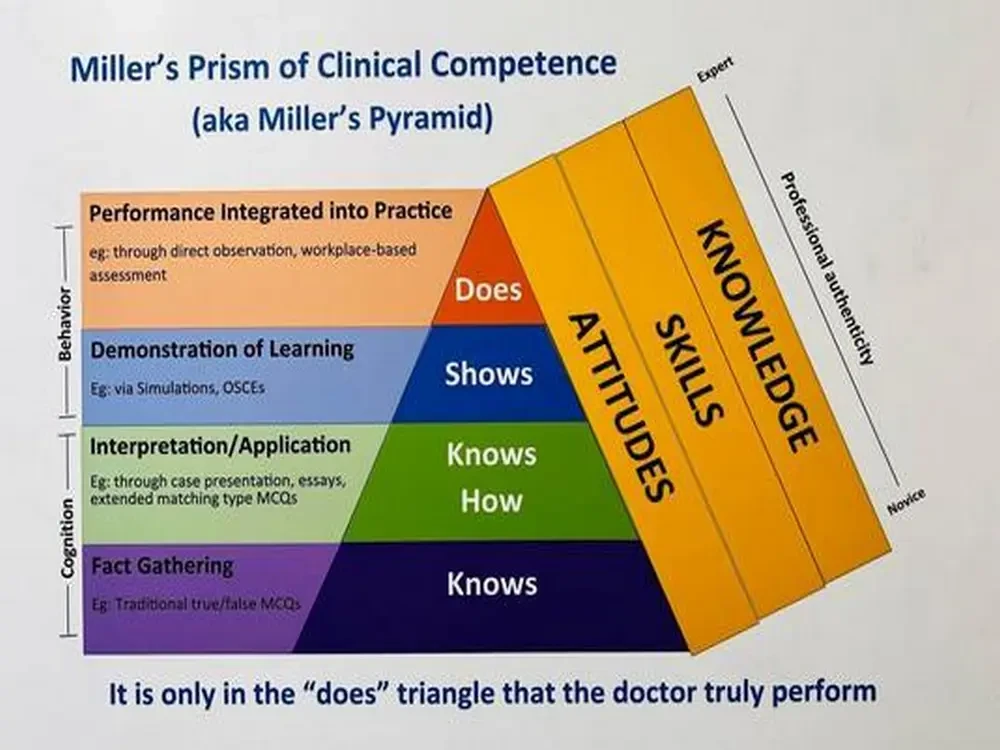
Training for Teachers
Training for Teachers

TMA Faculty Development Department organized a week of training for teachers which was held at the Academy. The representative of the Scientific Research Department, Saba Iordanishvili, shared with the audience the methodical recommendation of TSA on academic integrity. The presentation also covered such an important issue as adherence to the principles of academic integrity by students in their portfolios. Within the framework of the training, Student Relations Coordinator Saif Rustum made a presentation about the opportunities of the Turnitin program.
As part of the training week, TMA Vice Rector in research, Ekaterine Kldiashvili spoke to the audience about the methodology of scientific communication. Reviewed the basic principles of organizing and evaluating student scientific work (presentation, essay, report, project). Maka Zarnadze, the head of the Faculty Development Department, introduced the audience to the basic principles of assessment in medical education. Meanwhile, the head of the examination center, Vakho Deisadze, presented international recommendations on the creation of the MCQ standard test.
The goal of teacher training is to promote the professionalization of academic and invited staff in the direction of teaching-learning, assessment methods, and development of scientific-research skills. Also, promoting the formation of a qualified and experienced team of academic and visiting staff, who share the vision of the Academy in the direction of teaching and research, the institutional culture of the Academy, and accordingly, take care of improving the quality of teaching.
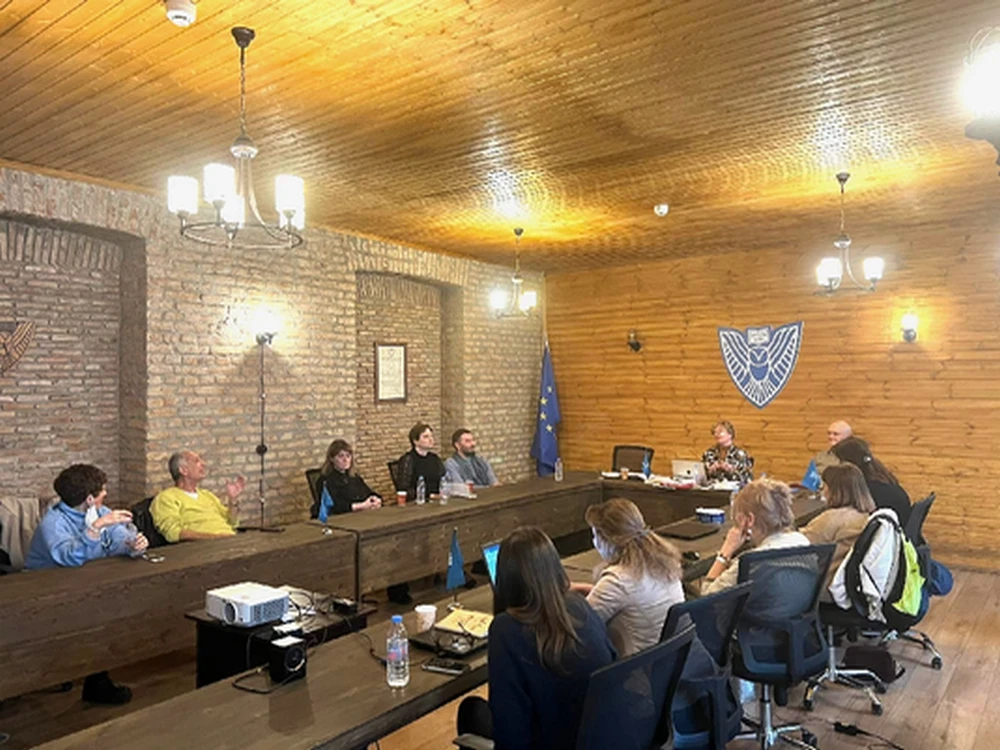
CIMED Leaders at TMA
CIMED Leaders at TMA

TMA hosted the heads of the Center of Innovation in Medical Education (CIMED) Professor Jossete Denekens and Professor Herman Van Rossum (Antwerp / Belgium). Within the framework of the visit, working meetings were held for three weeks with the participation of administrative, academic staff, and guest personnel. The results of innovative projects implemented in pilot mode and the ways of their further implementation in the program were discussed at the meetings. A map of innovations was created to reflect the implemented changes, as well as for teachers and students to get to know each other better.
The heads of the center met with students and heard their opinion about innovations and the educational process in general.
Workshops were held for the mentors of the portfolio, where the mentors shared their experiences and the heads of the center, talked about existing challenges, divided into small work groups, discussed several interesting cases accumulated within the portfolio, listened to a lecture prepared by the heads of the center about the importance of self-reflection in medical practice.
The heads of the center met with the teachers implementing the clinical training courses, heard from them information about the existing challenges, and together they identified ways to improve the teaching process at the clinical stage.
Trainings were held for the academic and guest staff of the TMA - on teaching and assessment methods in the working environment (WPBA (Workplace-based assessment), Mini-CEX (Mini Clinical Evaluation Exercise) - evaluation of a mini-clinical exercise, TBL (Team-Based Learning) - based on teamwork Teaching and developing a line of clinical reasoning in the program.
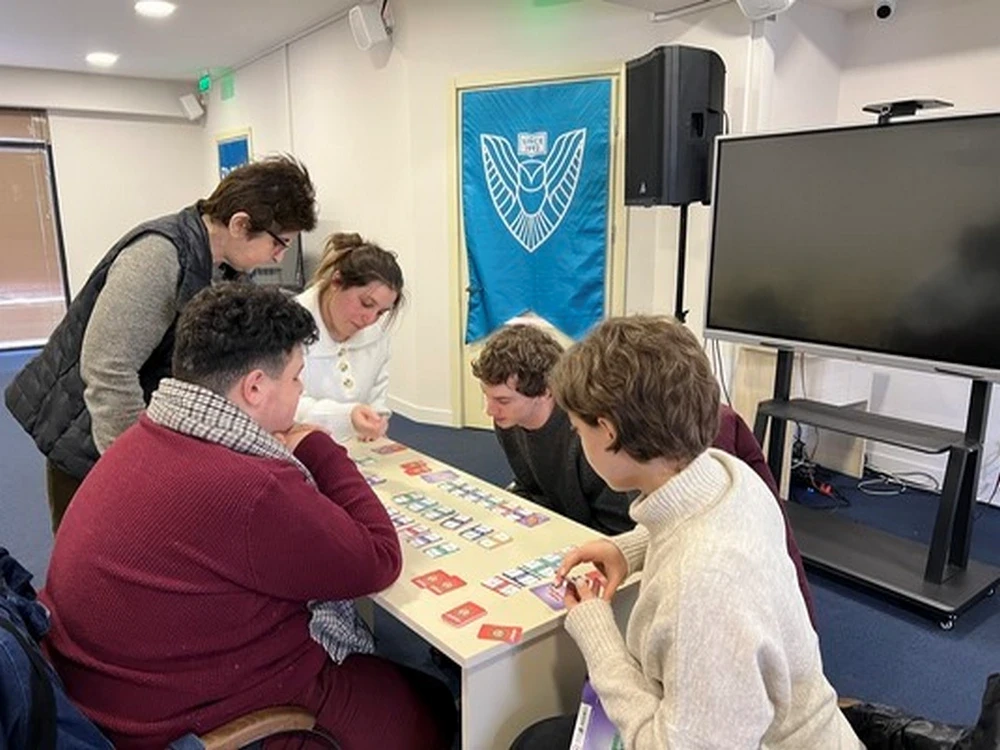
Educational Game - Bacteria Game
Educational Game - Bacteria Game

An innovative educational game Bacteria Game was held as a pilot at TMA. Students of the third, fourth, and fifth semesters and professors of the academy participated in the game.
Bacteria Game is an innovative educational game developed at the Sorbonne University in Paris with the support of the French Association of Microbiologists.
The principle of the game is simple - the players must connect funny pictures of clinically important bacteria with their corresponding characteristics (morphological features, virulence, source of infection, target organs, appropriate antibiotic, natural and acquired resistance to antibiotics) and at the same time, by the same principle, identify the opponent's bacteria. French colleagues believe that such an educational game will allow students to consolidate/organize knowledge about bacteria and appropriate antibiotic therapy to prevent the irrational use of antibiotics in the future, which is one of the main reasons for the increase in the number of antibiotic-resistant bacteria, one of the global health problems.
TMA students and teachers participating in the game also find the game fun and help organize knowledge, discover individual educational needs, and receive feedback.
Extensive articles on the educational game are available at the following links:
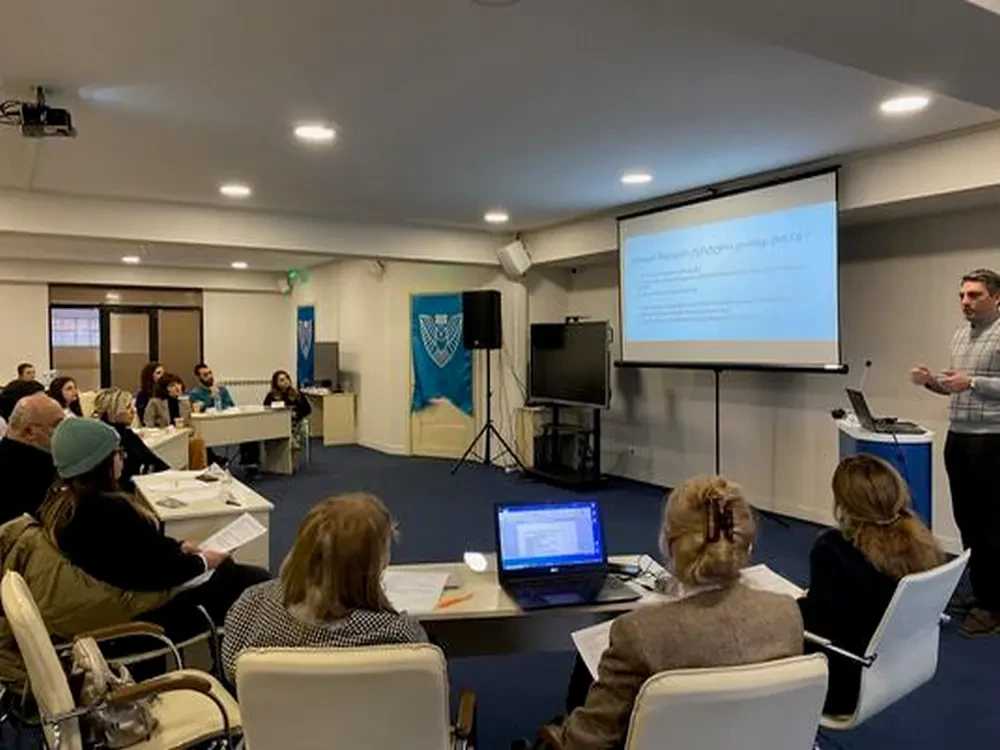
Training for Academic and Invited staff of TMA
Training for Academic and Invited staff of TMA

TMA hosted training for academic and invited staff of TMA. The topic of the training was the organization of clinical cases for Objective Structured Cinical Examination (OSCE).
The training was prepared based on the international experience gained within the Erasmus + SAFEMED (Simulation in Undergraduate Medical Education for Improvement of Safety and Quality of Patient Care) project and was led by representatives of the TMA academic staff involved in the project, Manana Kutkhashvili and Tsisana Lomashvili.
Within the framework of the training, the participants learned the basic principles of clinical case organization for an Objective Structured Clinical Examination. During the process, the participants were divided into groups and created bot
h clinical case scenarios for standardized patients and student evaluation forms in working groups. In addition, the training series covered how to create a standard MCQ (Multiple Choice Question). The training was conducted by the head of the TMA examination center Vakhtang Deisadze and the participants of the meeting were introduced to the recommendations developed based on international experience for creating a standard questionnaire and the importance of a unified vision in the TMA about the standard MCQ test.
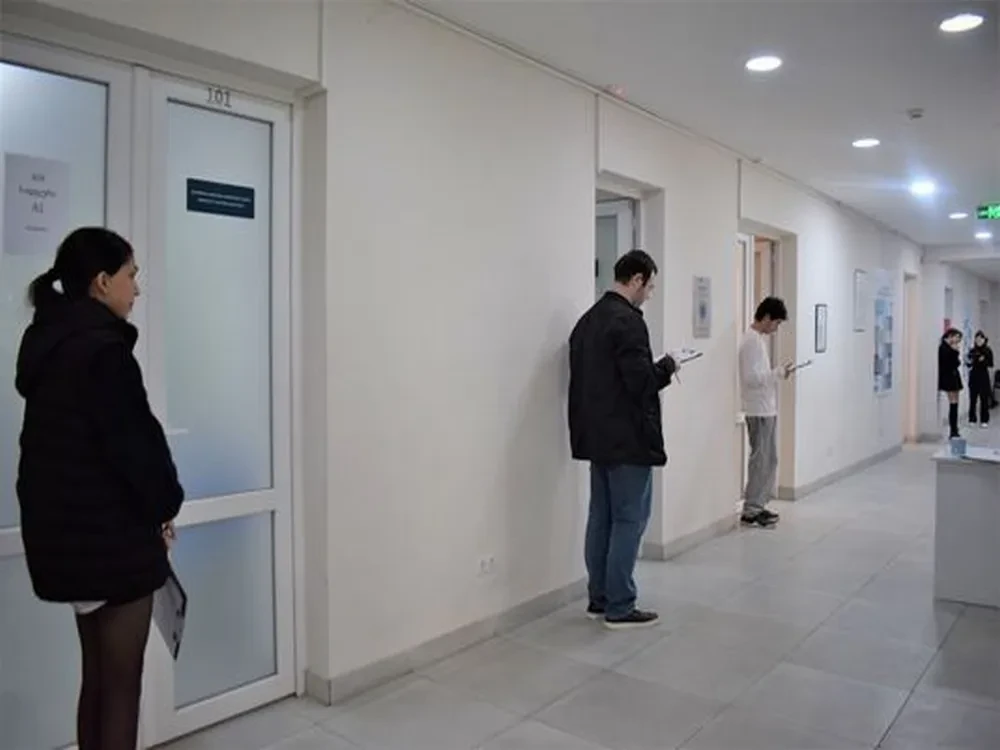
Structured Oral Examination – SOE
Structured Oral Examination – SOE

With the initiation and support of the Center of Innovation in Medical Education (CIMED), a Structured Oral Examination (SOE) was administered to first-semester students at TMA. Before the exams, trainings and workshops were held for teachers and examiners. The purpose of the exam was to assess the student's ability to verbalize the knowledge acquired within the anatomy, physiology, and histology training courses and team-based learning (TBL) sessions.
The Structured Oral Exam included three stations:
• At each station, the student met by an examiner from one of the courses (anatomy, histology, physiology);
• The student's delay at each station was 15 minutes;
• Students' assessment was based on previously developed criteria.
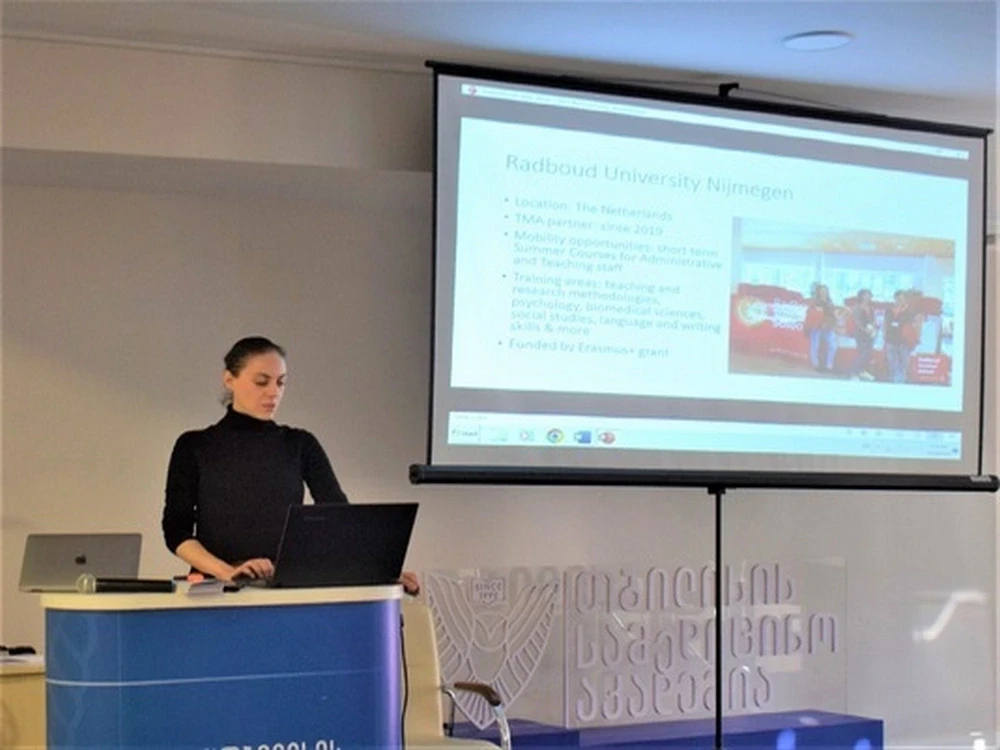
Sharing the experience gained at international conferences
Sharing the experience gained at international conferences

TMA hosted the working meetings to share the experience gained in international conferences and summer schools.
Head of Educational Program Tsisana Lomashvili, Vice-Rector in Research Ekaterine Kldiashvili, Manager of Continues Professional Development Maka Zarnadze, Head of Quality Assurance Department Nino Sikharulidze, Specialist in Medical Education and Research Dea Goderdzishvili and Head of Institutional Culture Department Maka Maglakelidze presented to colleagues from the Association for Medical Education in Europe (AMEE) and The experience gained at scientific conferences organized by the Association of Medical Schools in Europe (AMSE) was shared.
International projects coordinator Khatuna Khatiashvili, curator of students' scientific activities Saba Iordanishvili, and exam center coordinator Vakho Deisadze spoke about the experience gained at the summer school in the Netherlands at Radboud University.
Natalia Kotchlashvili, the coordinator of current projects, shared with the audience the history of cooperation with Radboud University within the framework of Erasmus project, staff mobility program, and plans.
Representatives of the Academy's administration, academic, and invited staff participated in the meeting. Within the framework of the meetings, the participants had the opportunity to discuss and share news, experiences, challenges, and opportunities in terms of the development of medical education, the promotion of the professional development of teachers, and the development of further international relations.
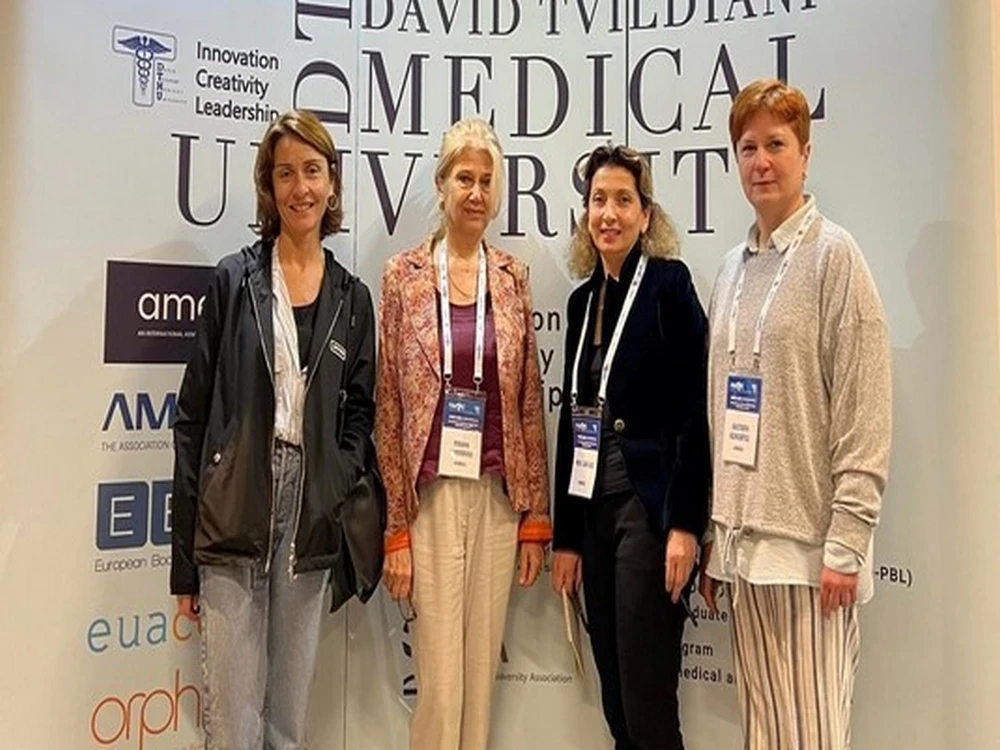
TMA at the AMSE Annual Conference
TMA at the AMSE Annual Conference

Georgia hosted the annual conference of the Association of Medical Schools in Europe (AMSE). The event was attended by European and international institutions important for the development of the field, including World Federation for Medical Education (WFME), European University Association - Council for Doctoral Education (EUA-CDE), the Organization for Ph.D. Education in Biomedicine and Health Sciences in the European System (ORPHEUS) and International Federation of Medical Students’ Associations (IFMSA). Tbilisi Medical Academy was represented among the participants at the conference. TMA faculty members presented three topics:
- Arts as an effective learning tool of medical education– Maka Zarnadze, Associate Professor, Manager of Continues Professional Development;
- Using a clinical reasoning exercise as the start of a course in the research line improves motivation in research of last year students- Ekaterine Kldiashvili, Vice-Rector in Research;
- Implementation of PSI Curriculum at preclinical level in Integrated modules – Tsisana Lomashvili, Head of One-step Educational Program.
Among the speakers were internationally recognized experts and leaders in the field of medical education: David Gordon - President of the World Federation of Medical Education, the University of Manchester Emeritus Professor, (Great Britain); Harm Peters - President of the Association of European Medical Schools, Charité - Professor of Universitätsmedizin, (Germany), Alexander Hasgall - Head of Doctoral Education Council of the European University Association (EUA), Robin Stevenson - Editor-in-Chief of European CME Journal and Emeritus Professor of Medicine, University of Glasgow, (UK), Janusz Janczhukovic - Professor of University of Lodz (Poland), Nebojsa Lalic - Professor of University of Belgrade, (Serbia), Cris Scotter - Human Resources for Health expert for the World Health Organization.
Speakers from Ukraine, Hungary, Lithuania and representatives of more than ten institutions from Georgia also participated in the conference.
The conference was hosted by David Tvildiani Medical University.
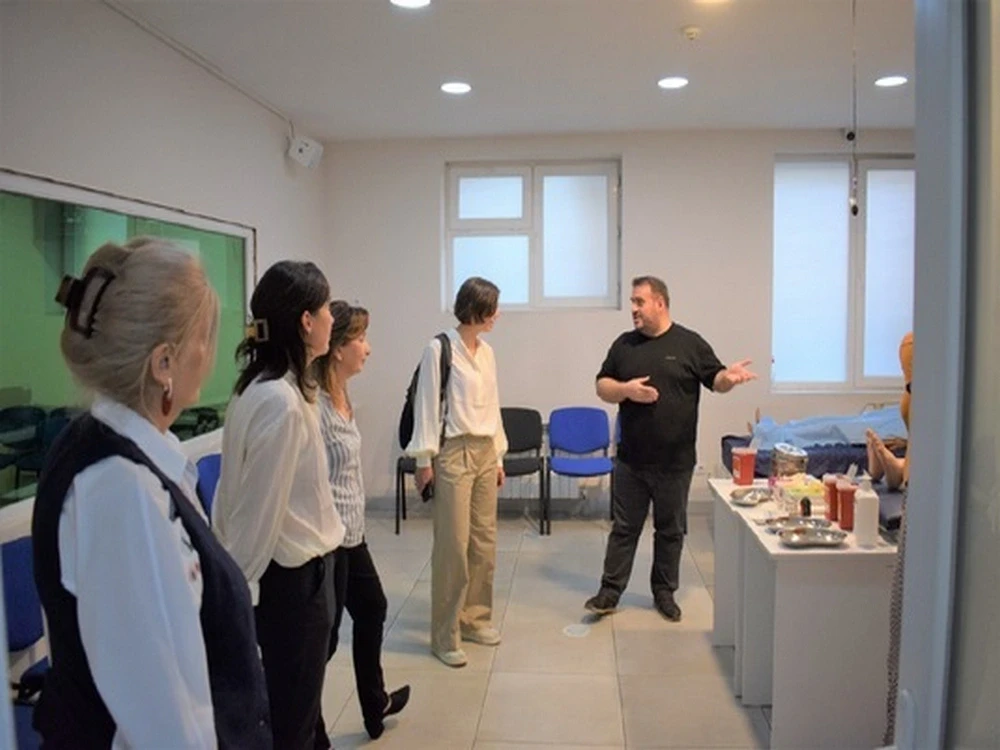
Visit of Belgian colleagues to TMA
Visit of Belgian colleagues to TMA

Tbilisi Medical Academy, within the framework of Erasmus staff mobility program, hosted Belgian colleagues. TMA was visited by Nele Michels - the president of THE European Academy of Teachers in General Practice/Family Medicine (EURACT), Professor at the Centre for General Practice & at the Skills Lab, Director of the staff group of General Practitioners trainers (University of Antwerp), as well as Kristin Van den Bogerd - psychologist & co-coordinator communication skills lab at the University of Antwerp, and Katrien Bombeke - Professor, GP & coordinator of communication skills lab at UA. As part of the work visit, clinical and basic subject educators received training on the following topics: How to teach and assess communication skills, how to teach consultation skills, and how to train Simulated Patient (SP).
"Such training will help to improve communication skills among students during teaching, such as delivering bad news to a patient, motivational interview, and communication with patients with psychiatric problems. At the workshops, they discussed specific communication techniques in detail. An important part was also devoted to the methods of assessment of the above-mentioned skills. In addition, the part of selection, training, teaching methods and expected results of simulation patients, recognition of various didactic aspects of simulation patient training and work with them should be mentioned separately" - Khatuna Khatiashvili, International Projects Coordinator, TMA affiliate, associate professor in the direction of behavioral sciences.
In addition, TMA academics and visiting teachers shared their experience in teaching communication skills, assessment, and examples of involvement in a simulation patient education program with their Belgian colleagues. Georgian and Belgian colleagues discussed the results and statistical characteristics of the Objectively Structured Clinical Exam (OSCE) held in the summer in TMA.
The guests also had working meetings with the representatives of the Academy's administration to continue the further collaboration within the framework of Erasmus and to strengthen the cooperation of family doctors (GP network).
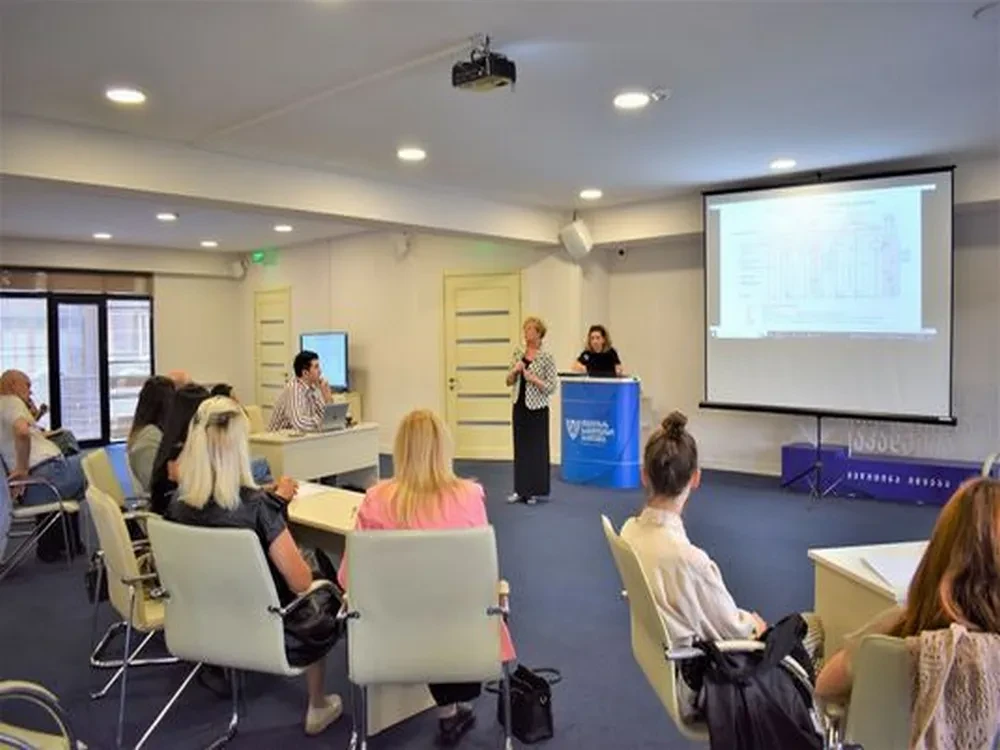
CIMED’s training week at TMA
CIMED’s training week at TMA

TMA had the pleasure to host the heads of the Center of Innovation in Medical Education (CIMED) Professor Joke Denekens and Professor Herman Van Rossum (Antwerp / Belgium).
Within the five-day working visit, meetings were held with the administration of TMA, academic and invited teachers. The teachers presented integrated cases and related integrated assignments, discussed examples of student-centered learning within their courses, organized feedback and team-based learning (TBL), and opportunities for further portfolio development.
During the working visit, training was also held for teachers on the topics - "Implementation of a patient centered, student-oriented, integrated program", " TBL (Team-Based Learning) Line development in the program", "The role of a mentor in the portfolio", "Teaching and assessment methods in the first-semester curriculum", "Maximizing the capabilities of the Anatomage Table, use within the framework of various training courses" and etc.
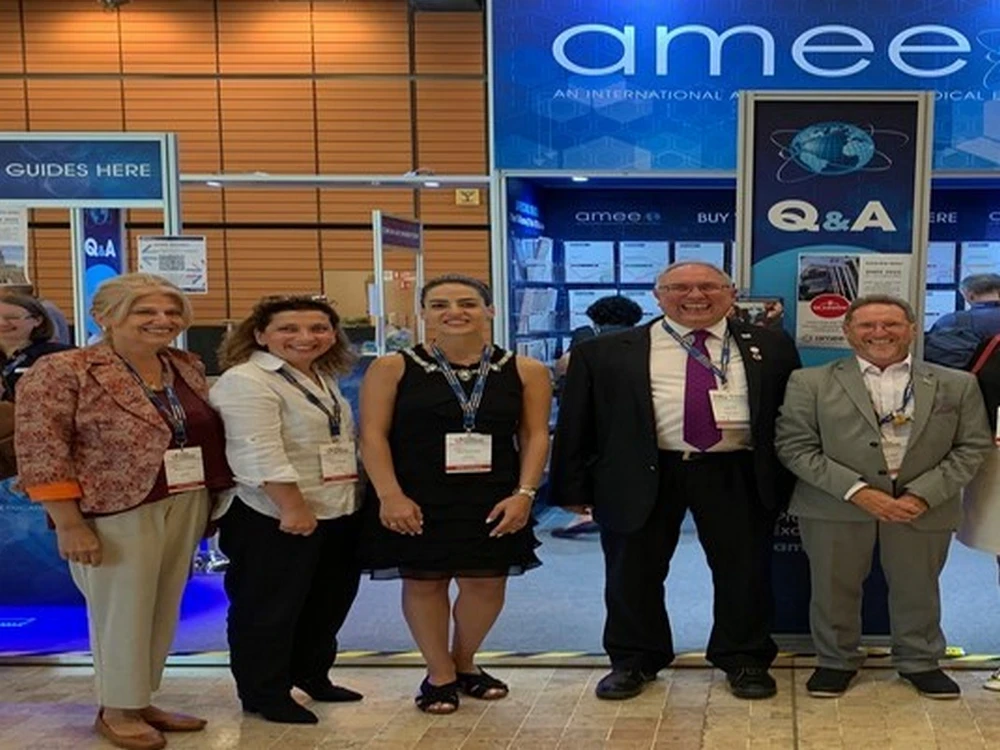
TMA presented two topics at the AMEE Annual Conference
TMA presented two topics at the AMEE Annual Conference

Lyon (France) hosted the Annual Conference of the Association for Medical Education in Europe (AMEE), where TMA proudly appeared with two presentations.
TMA Vice Rector in Research - Dr. Ekaterine Kldiashvili and medical education expert Dea Goderdzishvili delivered an oral presentation "Virtual Patient Simulators as a Pilot of eHealth Introduction in Medical Curricula”, while the Manager of Continuous Professional Development and a member of the Curriculum Committee, Maka Zarnadze presented an e-Poster around the topic - "The impact of the Self-Reflection on the Identification Learning needs of the Medical Students during preclinical years"
Within the framework of the conference, attending members of TMA staff - Head of the Educational Program - Tsisana Lomashvili and the Head of the Quality Assurance Department Nino Sikharulidze, participated within various thematic workshops and meetings. In addition, members of TMA had opportunities to get acquainted with the most up-to-date opinions from the field experts and engage in discussions with colleagues from around the globe.
The AMEE conference serves as the most significant annual event for everyone, involved in medical education. This year, more than 90 medical schools from all over the world participated in the conference.
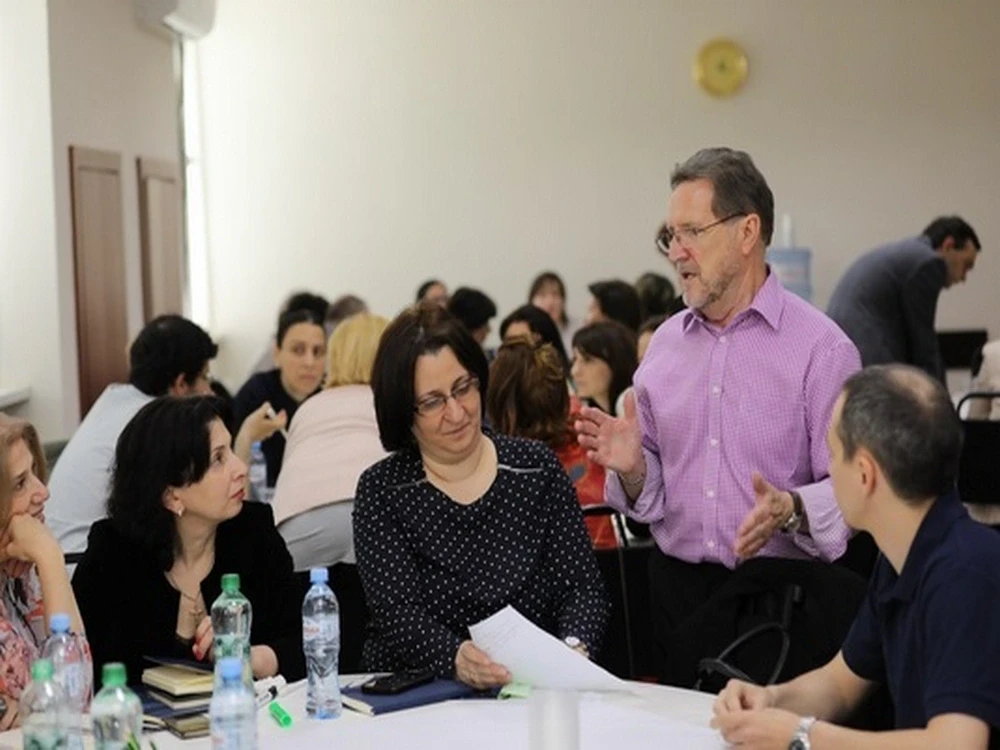
TMA faculty Members has gained the status of a Specialist in Medical Education
TMA faculty Members has gained the status of a Specialist in Medical Education

TMA continues to support the continued professional development of its staff. In the field of medical education, the training courses offered by The Association for Medical Education in Europe (AMEE) are an important step in this direction.
TMA Faculty Members Tsisana Lomashvili (Head of Educational Program), Ia Khakhutaishvili (Curriculum Committee Member), and Maka Zarnadze (Curriculum Committee Member) completed four training courses "Essential Skills in Medical Education'' organized by AMEE and gained the status of a Specialist in Medical Education. This is important for TMA to integrate into the European Educational Space.
“The training courses were organized by the AMEE regional representation in Georgia and were led by AMEE President Trevor Gibbs. These courses allowed us to get acquainted with the innovations of medical education methodology in the format of active and quite busy workshops. In addition to the mandatory training activity, the trainees were asked to complete a post-training assignment (training reflection) to describe what knowledge we had acquired during the training and how to apply it in practice. In the course of the training, we also conducted two studies on medical education methodology - “The impact of the preclinical online Flipped Classroom (FC) on the critical thinking, a group working and independent learning abilities from student’s perspective” and “The impact of the Self-Reflection on the identification learning needs of the Medical Students during preclinical years”. One study was presented at the AMEE 2021 Glasgow Conference as an oral presentation and the other at the AMEE 2022 Lyon Conference. The involvement of the academy in this training is important because at this time we learn about the innovations in medical education methodology. We share the acquired knowledge and experience with colleagues and jointly try to introduce modern standards of teaching, learning, and assessment in TMA”- Maka Zarnadze”.
To gain the status of a medical education specialist, six more TMA staff are currently involved in AMEE training courses.
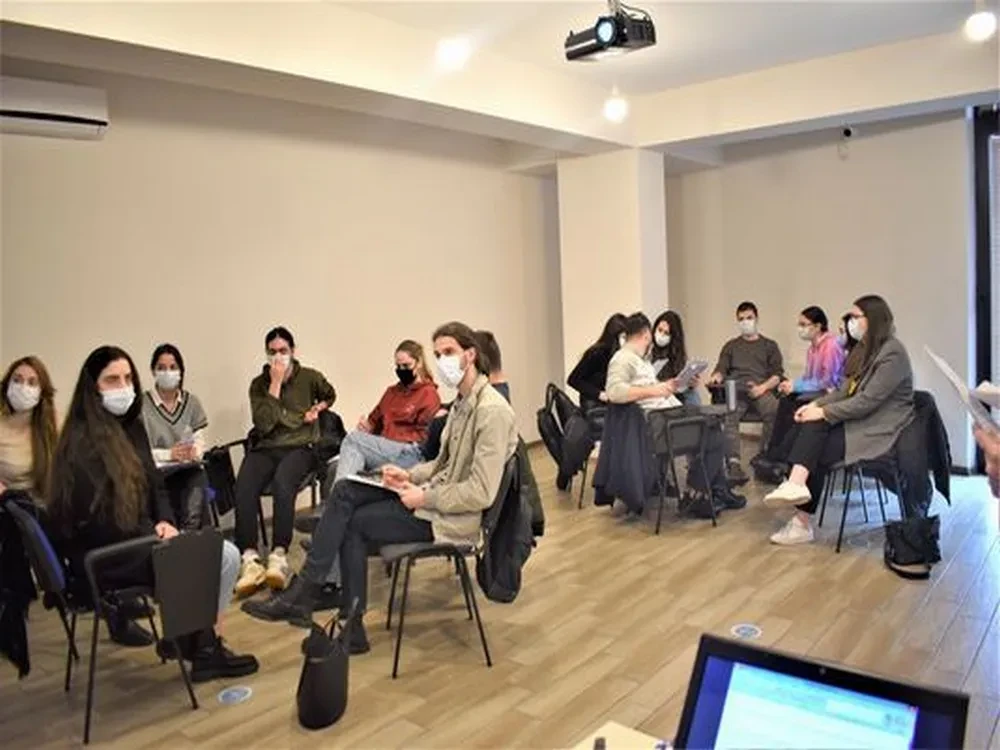
The Team-Based Learning (TBL) session
The Team-Based Learning (TBL) session

The Team-Based Learning (TBL) session was held for students at the final stage of the integration week. The session aimed to develop students' skills of independent work, teamwork, communication, and critical thinking, and to teach the principles of evidence-based medicine.
"TBLS is one of the ways to show the TMA students the importance of teamwork. Medicine is without frontiers/borders, inexhaustible, and rapidly evolving., so it is necessary not only to have various specialists at the same medical establishments but also to enable them to work closely together to achieve the best possible results for the patient, including the best results" - Salome Buliskeria, lecturer at TMA.
One week before the session, the lectures introduced the students to the purpose of the TBL session, and the learning outcomes, divided them into groups, and provided literature. During the session, students worked in groups on a patient's case and a relevant assignment. The assignment required the integration of knowledge gained by the students within the module (anatomy, histology, physiology) and the solution of a clinical problem.
"TBL accustoms us to teamwork, students work together on integrated assignments, which in the future will help us provide effective and complete service to the patient. Right now we are going through the endocrine system, studying various diseases including diabetes. Direct communication with the real patient helped us to better understand the topic. We have discussed a diabetes case and presented posters around this topic "- Iako Barabadze, a 2nd-year medical student.
Mentors assessed both the students' integrated homework as well as their interpersonal skills.
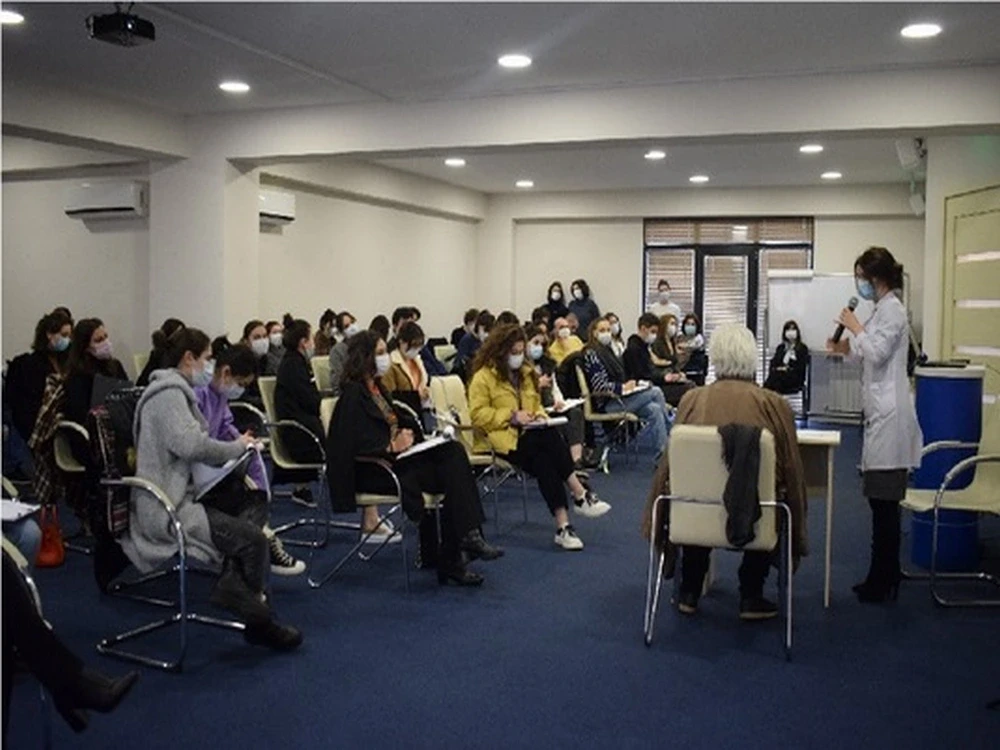
Integration Week at TMA
Integration Week at TMA

As part of the integration week, TMA students had a meeting with real patients. This encounter served to put students in touch with real patients already at the preclinical stage of teaching and enabled them to use the knowledge and skills acquired during the various training courses to better understand patients’ problems.
"This kind of events are interesting for us as future doctors, because proper communication between doctor and patient is one of the important aspects. Today we have seen a good example of how to have a dialogue with the patient. We are now studying diabetes and the endocrine system, and direct communication with the patient helped us a lot in deepening our theoretical knowledge." - Sandro Sagliani, a medical student of the 2nd year
Students had the opportunity to observe the interaction between the patients with diabetes and their doctor, to ask them questions, and to discuss this topic.
"I love relationships with young people, and communication with the future doctors was very important to me. They listened carefully and asked interesting questions. I tried to give them thorough answers. I think this practical experience will help students to deepen their professional knowledge, so I will gladly take part in similar activities at other times as well. It has a positive effect on me when the questions are varied, you look at yourself from the side, and this is an interesting and useful process "- Patient Asmat Guliashvili, 67 years old.
At the end of the meeting, the students were divided into groups and were given one week to work on the cases of the diabetic patients provided by the teachers and were asked to present the posters afterwards.
The final stage of the integration week is the Team-Based Learning (TBL) session, where students are required to work on an integrated assignment.
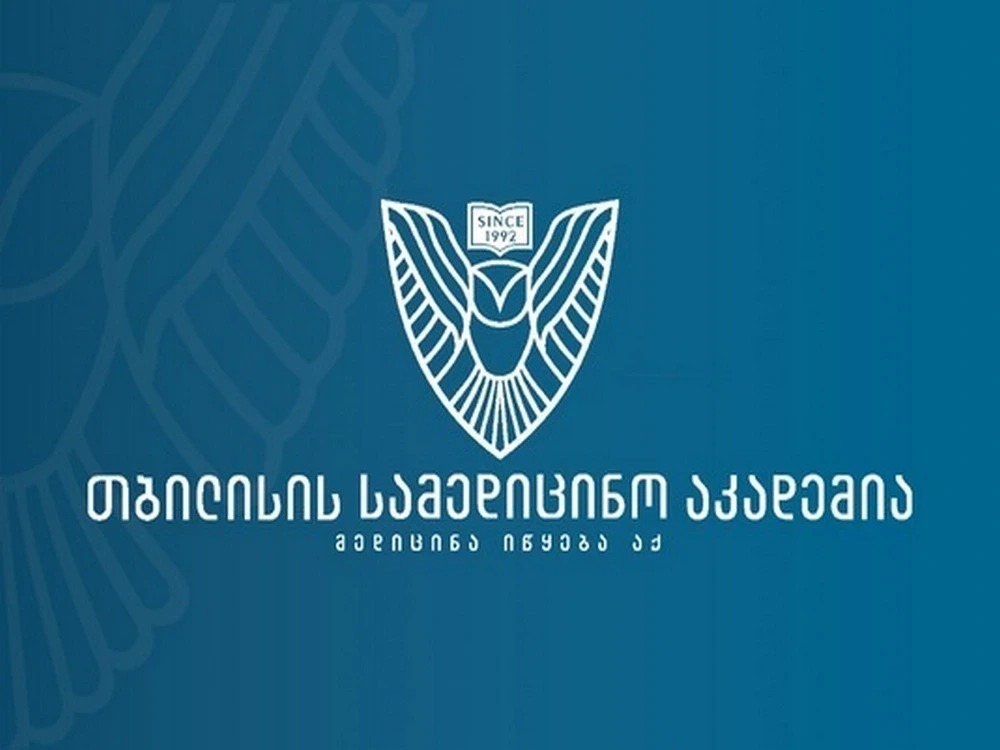
Create integrated cases and assignments
Create integrated cases and assignments

Medical Education Innovation Center of TMA organized online training on the topic of creative integrated cases and assignments.
The meeting was held by Prof. Joke Denekens and Prof. Herman Van Rosem (Antwerp, Belgium). The training aimed to harmonize the learning process within the integrated modules. The trainers made presentations in the following areas - student and patient-centered program, and how to create an integrated assignment.
The online meeting was attended by academic staff who are implementing integrated modules and invited teachers who had the opportunity to work as a team on integrated assignments and receive feedback from Belgian colleagues.

Portfolio mentor's three-day online training
Portfolio mentor's three-day online training

Petre Shotadze Tbilisi Medical Academy (TMA) held a portfolio mentor's three-day online training. The training was held by the heads of the Medical Education Innovation Center of TMA, Joke Denekens (Prof. In Medical Education) and Herman Van Rosem (Prof. In Medical Education) (Antwerp, Belgium).
Within the frames of the training, through mini-lectures, workshops, and discussions the participants got introduced to the portfolio concept, developed at the academy, the structure of student assignments within the portfolio, assessment, principles of effective feedback, and the portfolio mentor rights and responsibilities.
The portfolio is an innovative method of teaching and assessment in the educational programs of the Academy. The self-reflection learning activities and personal development plan (PDP) implemented within the portfolio enable students to engage in an active learning process for both professional and personal development and to achieve the competencies defined by the educational program that is directly related to professionalism (Including lifelong learning).
Students are assisted by mentors in completing assignments provided through the portfolio system.
TMA School of Medicine took the first steps towards the introduction of the portfolio method during the 2020-2021 academic year, and four mentors were involved in the process. Fifteen potential mentors are currently being trained.
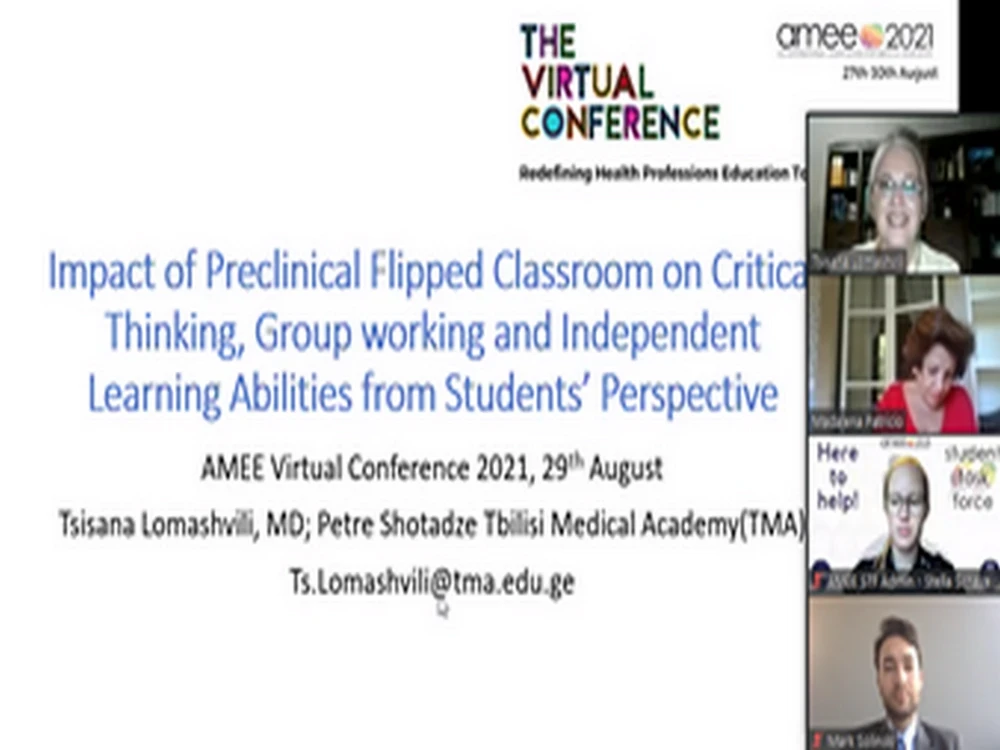
AMEE
AMEE

On August 27-30, 2021, Petre Shotadze Tbilisi Medical Academy (TMA) participated in a virtual conference organized by the International Association for Medical Education (AMEE). TMA presentation was made by Tsisana Lomashvili, Head of MD Programs. She presented on the topic of “Impact of Preclinical Flipped Classroom on Critical Thinking, Group working and Independent Learning Abilities from Students’ Perspective”. Co-authors: Tsisana Lomashvili, MD, Petre Shotadze Tbilisi Medical Academy (TMA), Ia Khakhutaishvili, MD, PhD, (TMA); Tinatin Chikovani, MD, PhD, Tbilisi State Medical University (TSMU), Leila Akhvlediani, MD, PhD, BAU International University Batumi (BAU), Levan Metreveli, MD, PhD, (BAU).
The research shared by Tsisana Lomashvili was conducted within the scope of the RESME course training at the AMEE International Networking Center (Tbilisi), led by Professor David Tailor. Three Georgian institutions collaborated in the study: Tbilisi Medical Academy (TMA), Tbilisi State Medical University (TSMU) and International University Batumi (BAU).
TMA joined the AMEE International Conference in 2016 with the status of an attendee, whereas in 2017 it already presented a poster-presentation on the introduction of an Objective Structured Practical Exam (OSPE) in the curriculum.
The Association for Medical Education in Europe (AMEE) is a worldwide organization with members in 90 countries on five continents.
The AMEE conference is the leading annual event for all stakeholders in medical and healthcare education. The 2021 AMEE Conference was attended by experts in the field of medical education and healthcare, who shared their experiences through plenary sessions, symposia, seminars and workshops.

How to create a standardized MCQ test
How to create a standardized MCQ test

On March 2 and 5, was held an online training/workshop for the academic and visiting teaching staff of TMA, around the topic - 'How to create a standardized MCQ test'.
During the training members of the teaching staff were introduced to the different types of MCQ questions and recommendations for designing standardized MCQ tests, based on the most up-to-date international experience.
Attendees carried out practical exercises to create various types of standardized MCQ questions.
Throughout the training were discussed the conditions for determining the validity and reliability of quiz assignments and final examination questions.

Training, TURNITIN Program
Training, TURNITIN Program

The TURNITIN program is an important and integral component for developing academic honesty; this tool is also an effective method for expanding skills like critical thinking and reasoning.
The partnership between Tbilisi Medical Academy and TURNITIN has started in 2020. In the scope of mentioned partnership, an online training will be conducted regarding the use of the program on 22nd of January at 17:30 Tbilisi Time.
The training will be conducted using the Zoom platform. In order to attend the training, please follow the link
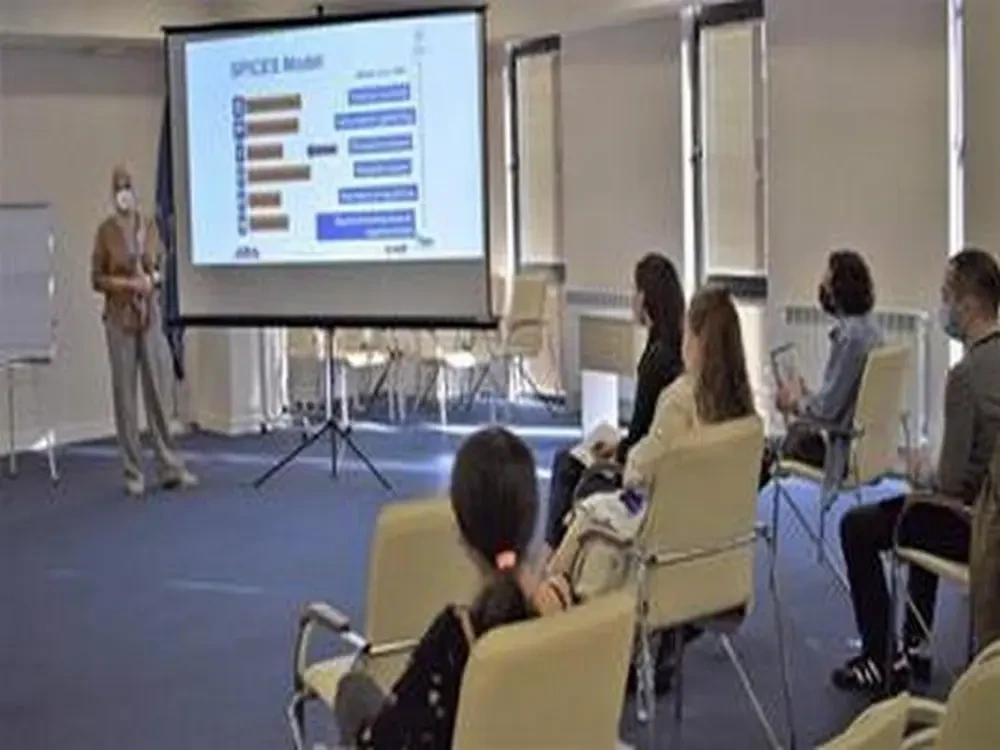
''Flipped Classroom''
''Flipped Classroom''

Training around the concept of ''Flipped Classroom'' was held for the academic and invited teaching staff of TMA. During the training, participants were introduced to the importance of collaborative and interactive teaching methods and the ways of Flipped Classroom implementation within basic subjects.
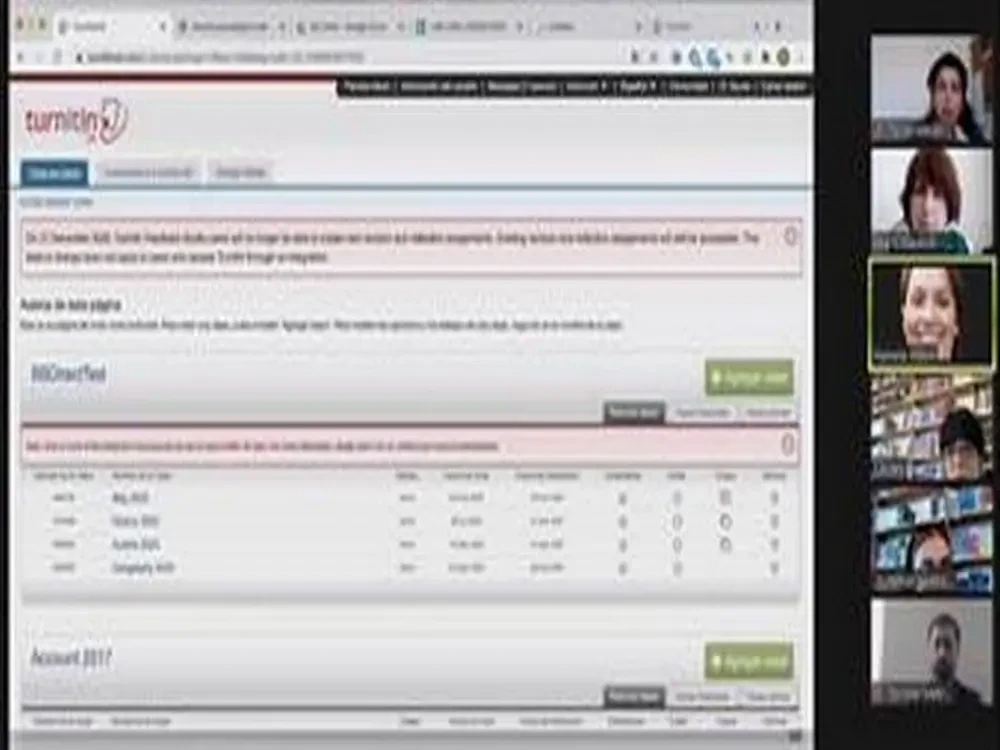
Turnitin Training at TMA
Turnitin Training at TMA

The training on practical usage of the Turnitin software has been organized for the Petre Shotadze Tbilisi Medical Academy staff members. This software is an important component of the development of the academic honesty culture at the institutional level. Furthermore, it is an effective tool for critical thinking and reasoning skills development.
Training has been performed by Pamela Atzori, Ph.D., the Professional and Educational Services Consultant of the company Turnitin.

Josette Denekens working visit at TMA
Josette Denekens working visit at TMA

From February 3rd to 7th, Petre Shotadze Tbilisi Medical Academy held lectures and working meetings for its academic and administrative staff on the planning of the educational program and learning outcomes, as well as appropriate assessment methods, program integration, feedback, and interprofessional education. Above mentioned meetings were held by Josette Denekens – Emeritus professor in General Practice, Head of the Department of General Practice, former Vice Rector at the University of Antwerp, Belgium.

TMA's Training for Lecturers
TMA's Training for Lecturers

On November 13-15 and 20-22, Training: “Modern Methods of Teaching and Assessment, Essential Principles of Student Oriented Teaching and Student Motivation” was held at Tbilisi Medical Academy. The training was intended for for invited and academic lecturers.
During the training trainees were informed about the challenges to current medical education and got acquainted with modern method of teaching, that will be implemented in TMA’s study process.
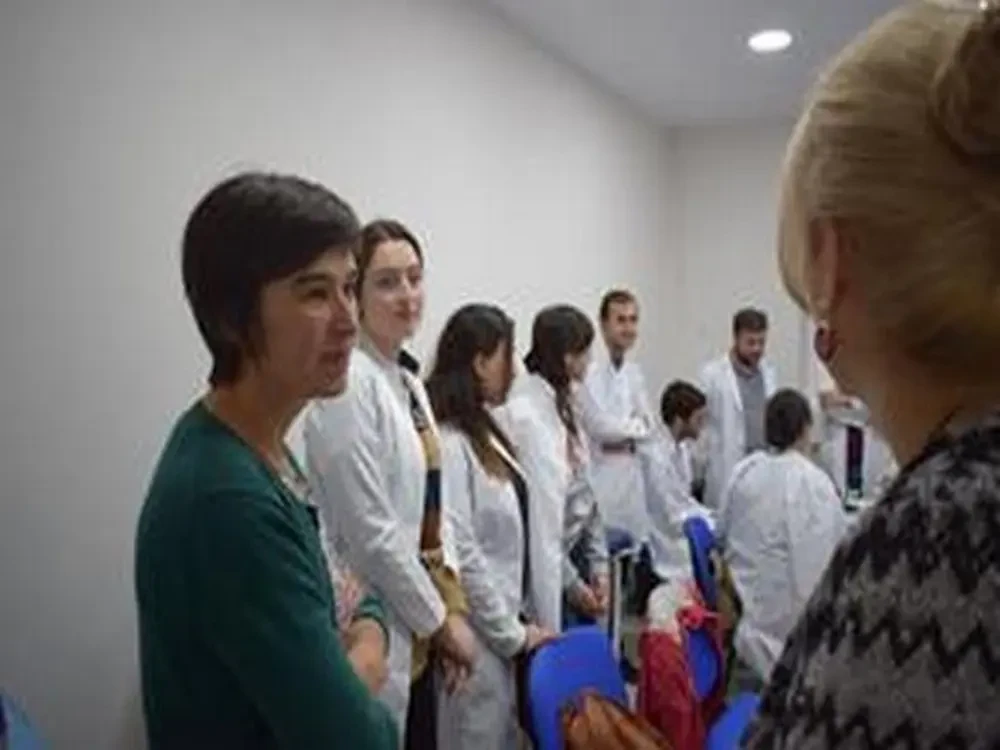
Professor, Nele Michels visit at TMA
Professor, Nele Michels visit at TMA

Professor Nele Michels, Head of Clinical Skills Center at Antwerp University, visited Tbilisi Medical Academy. During her working visit Prof. Nele Michels held meetings with academic and administrative staff. She visited TMA’s renewed Clinical Skills and Objectively Structured Exam Center and got acquainted with innovations in Medical Education program and Doctoral program “Medical Science”. Additionally, important issues, such as the Erasmus+ cooperation for staff and student mobility between the TMA and Antwerp University were discussed during the visit.
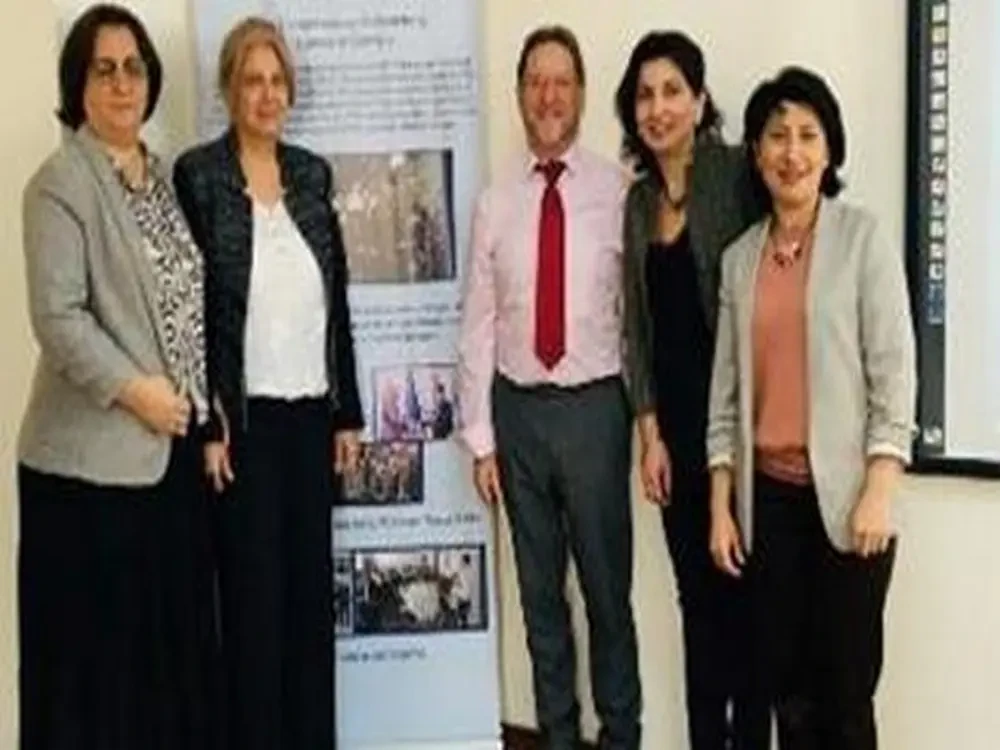
TMA staff attended AMEE’s training
TMA staff attended AMEE’s training

October 21-25, representatives of Petre Shotadze Tbilisi Medical Academy attended the training of AMEE (The Association for Medical Education in Europe) “ESMEA – Essential Skills in Medical Education Assessment”. The training was conducted by President of AMEE, WFME (World Federation for Medical Education consultant in field of Medical Education), Professor, Trevor Gibbs.
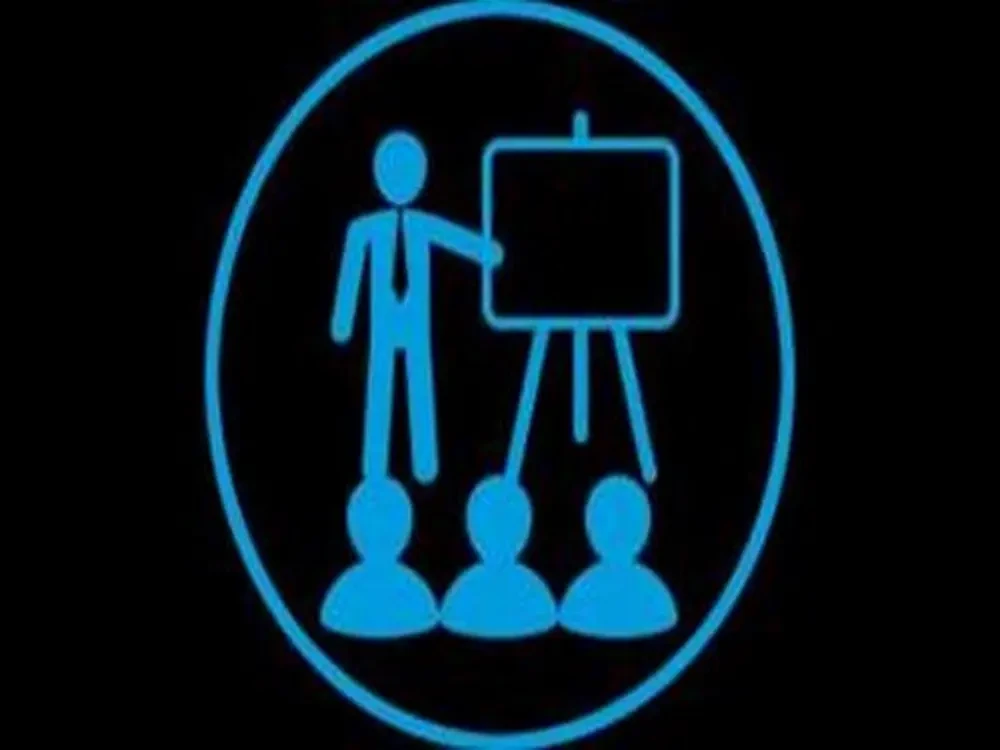
Training for New Staff Adaptation
Training for New Staff Adaptation

On 17-20 September, TMA academic staff conducted training: “TMA new staff adaptation and provision of continuing professional development”. Training participants were new lecturers, who will be teaching in 2019/2020 academic year.
Training aims and objectives were as follows:
- Raising awareness Strategic Priorities of Academy and getting acquainted with study process regulations;
- Getting acquainted with the existing innovations in medical education methodology;
- Coordinating mutual cooperation between disciplines and departments.
Every meeting of the training was aimed not only at informing and adapting of new staff, but also assisted them in analyzing and implementation of the exiting new methodologies of medical education in the study process.
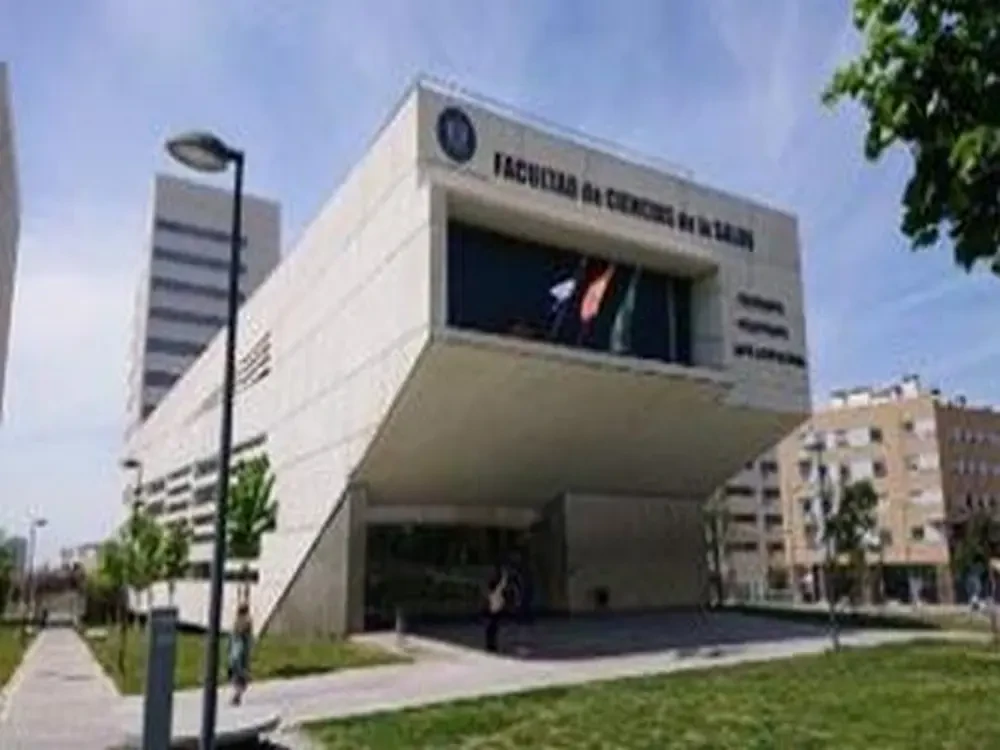
international training on personal development
international training on personal development

Natalie Khotchlashvili, coordinator of Erasmus+ programs at Tbilisi Medical Academy, on May 6-10 in Spain, took a part in an international training on personal development „– Ahora – Share your skills“. AtDuring the training, participants discussed a number of issues, and also shared their experience in the field of student and staff mobility, as well as of cooperation and development of institutions. The training also made a significant contribution to the establishment of partnership between TMA and European Universities.
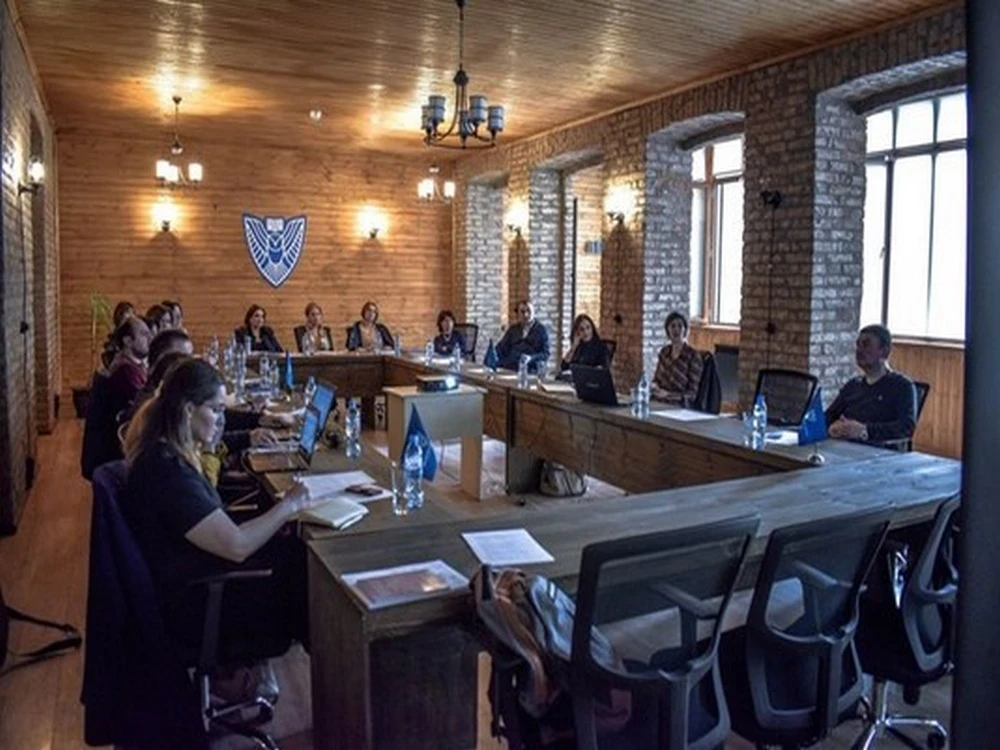
Professor Nele Michels visit at TMA
Professor Nele Michels visit at TMA

On 12-14 March head of clinical skill center in Antwerp University, Professor Nele Michels visited TMA and conducted curriculum development meetings and trainings about assessment methodology in medical education.
